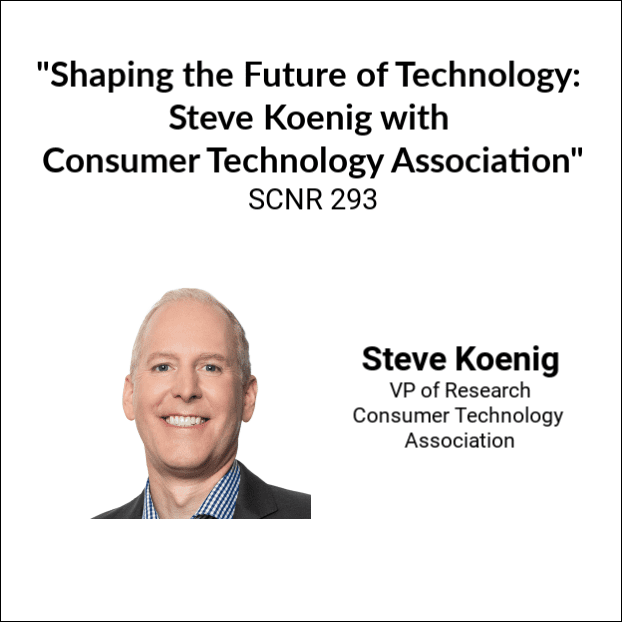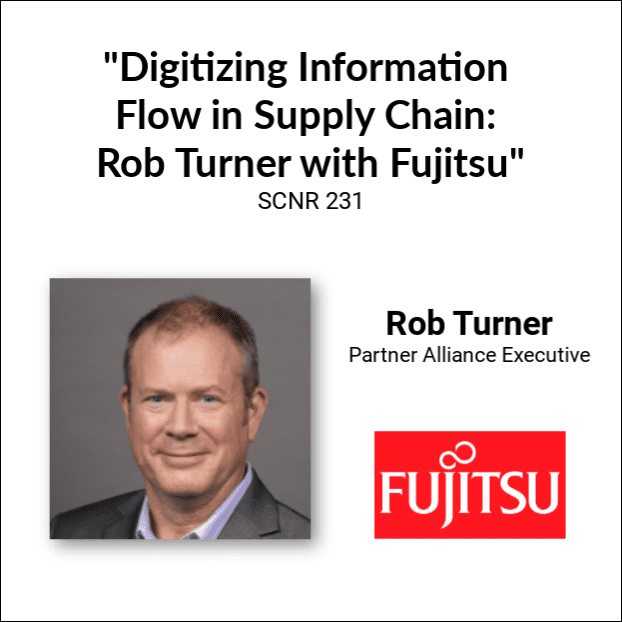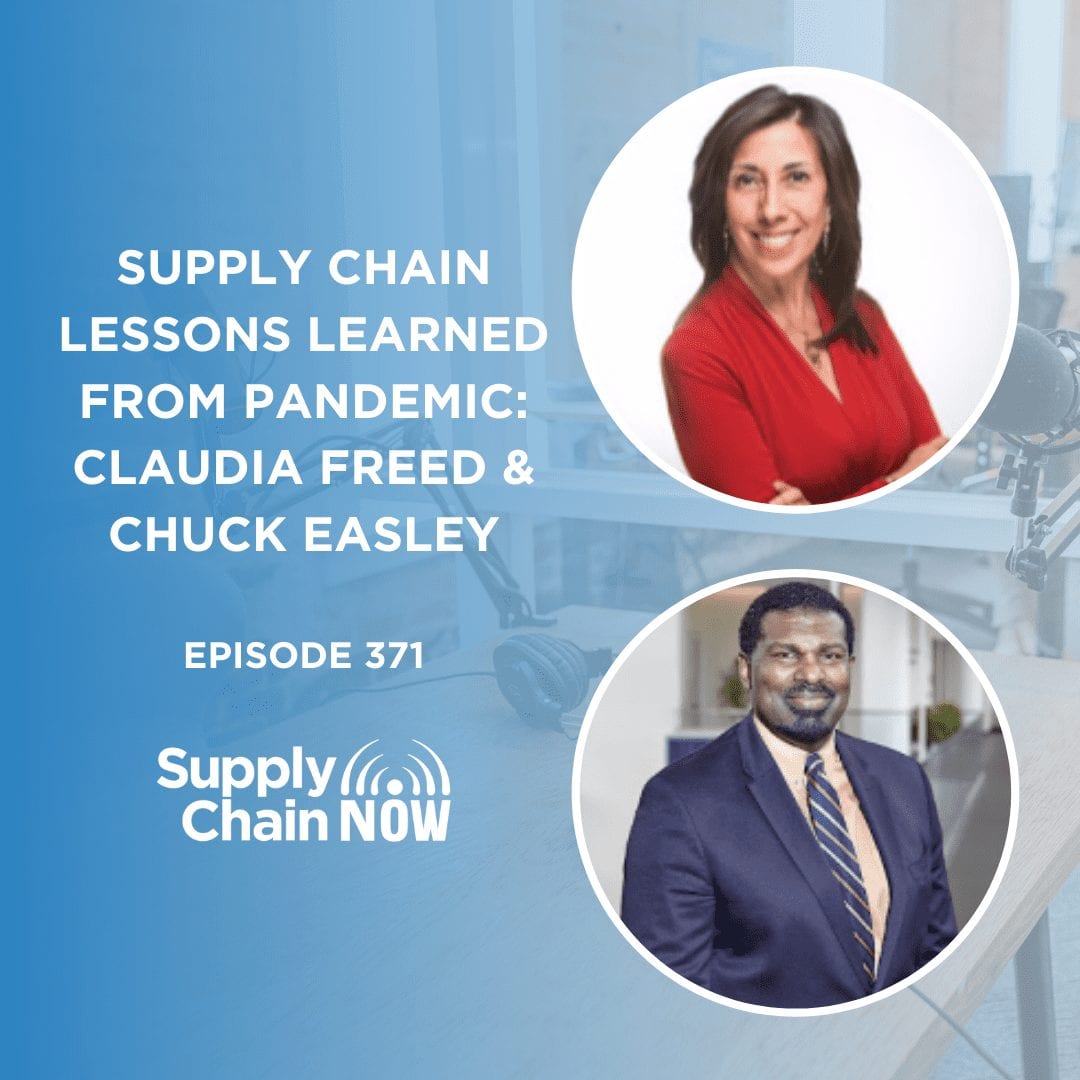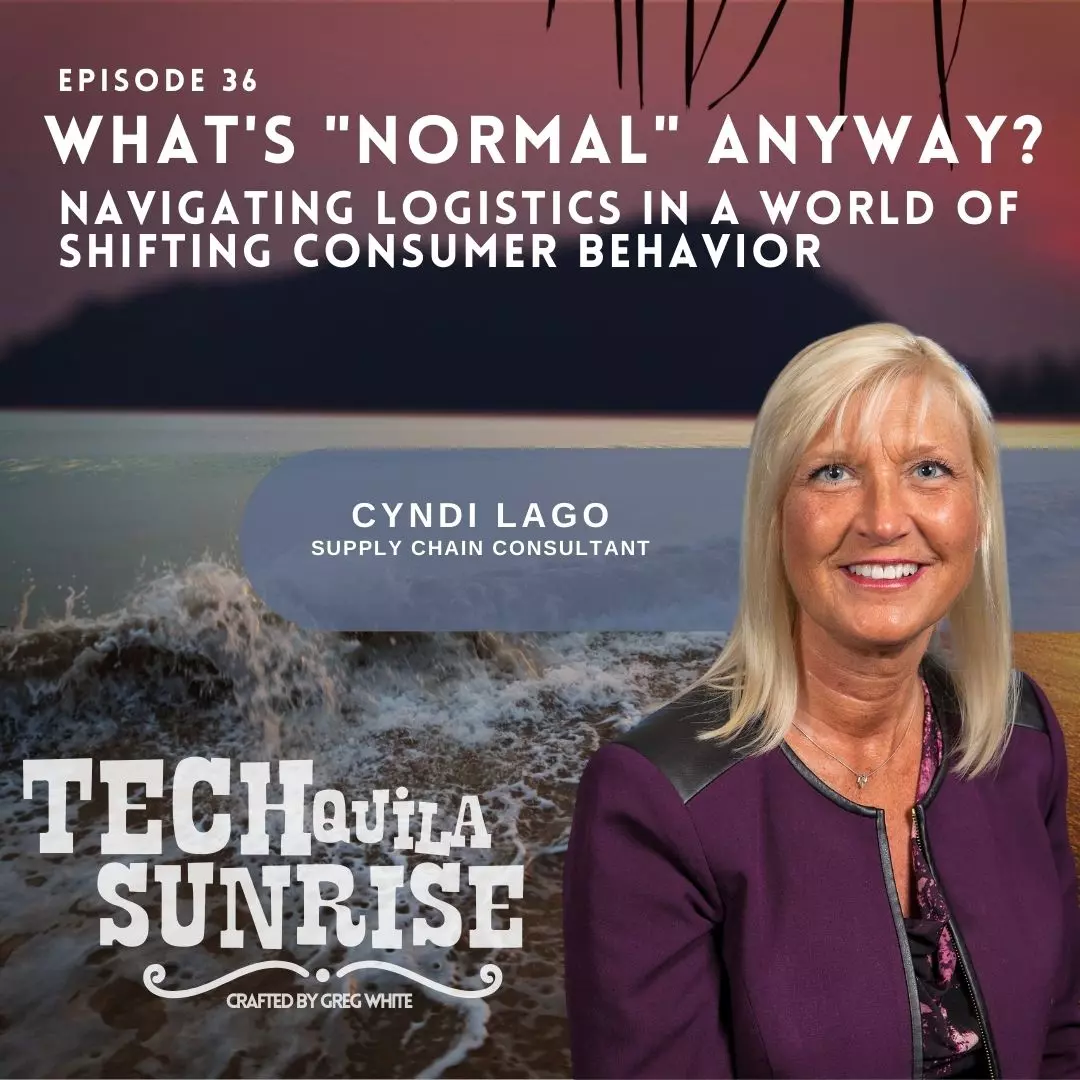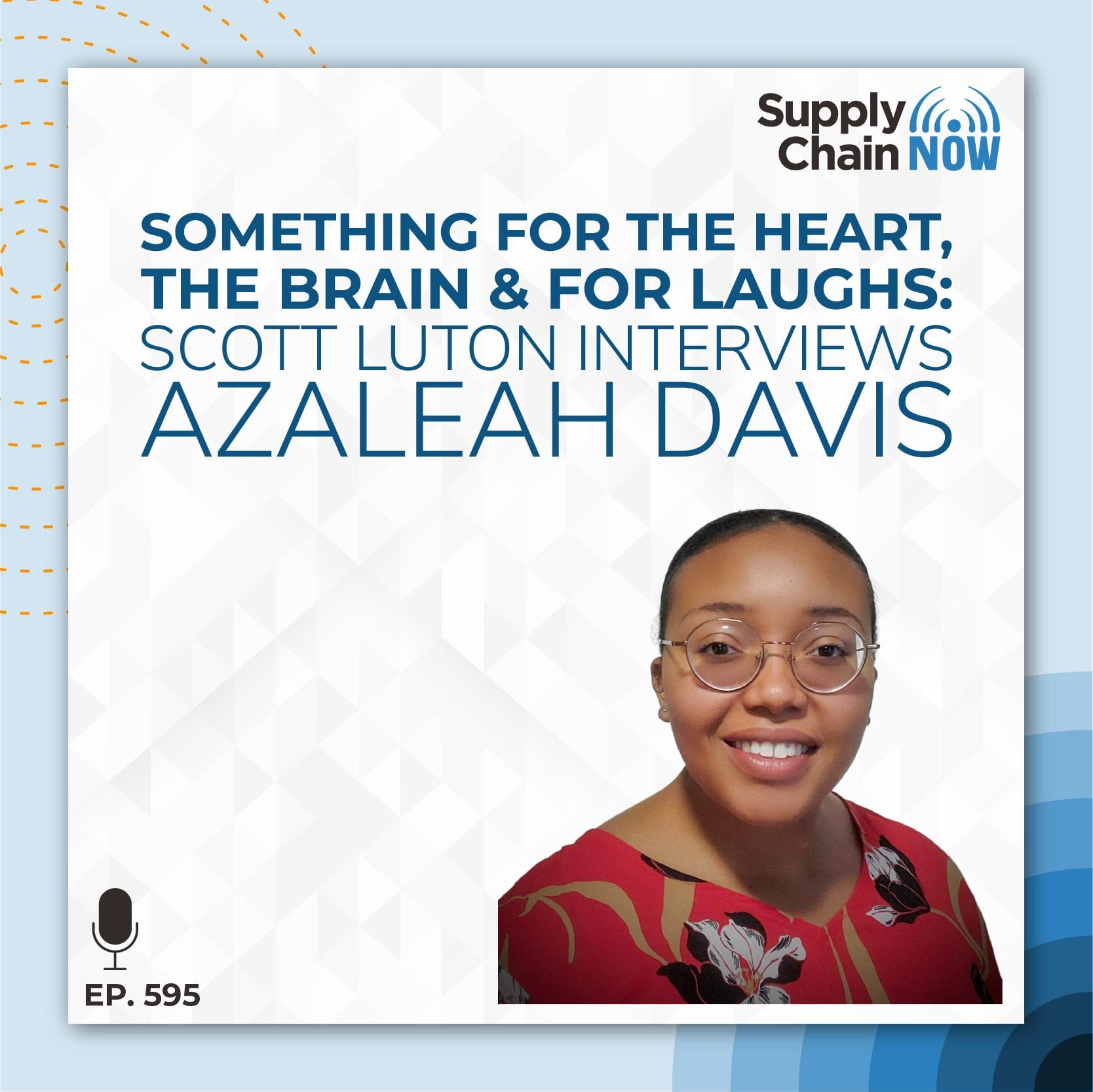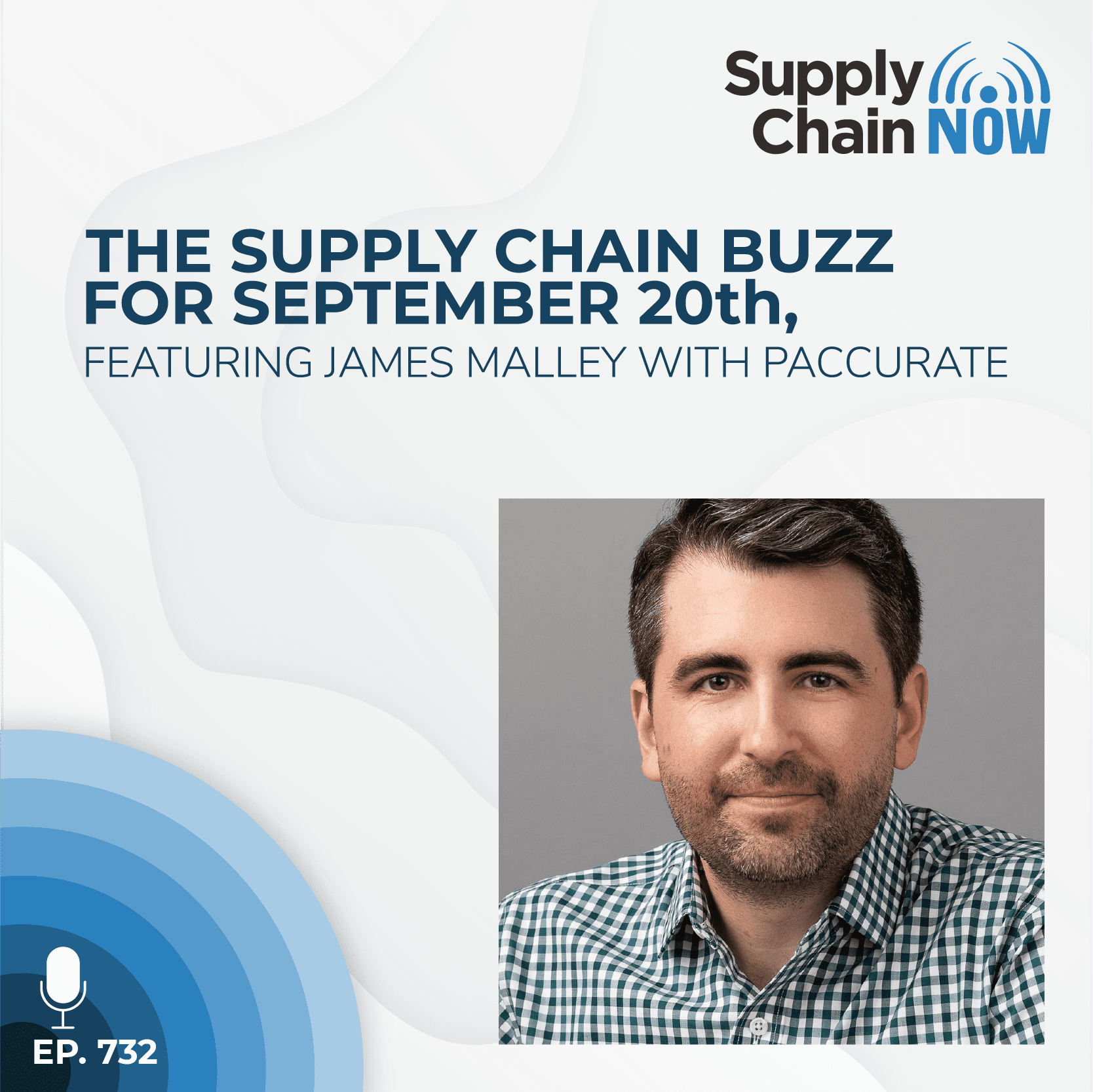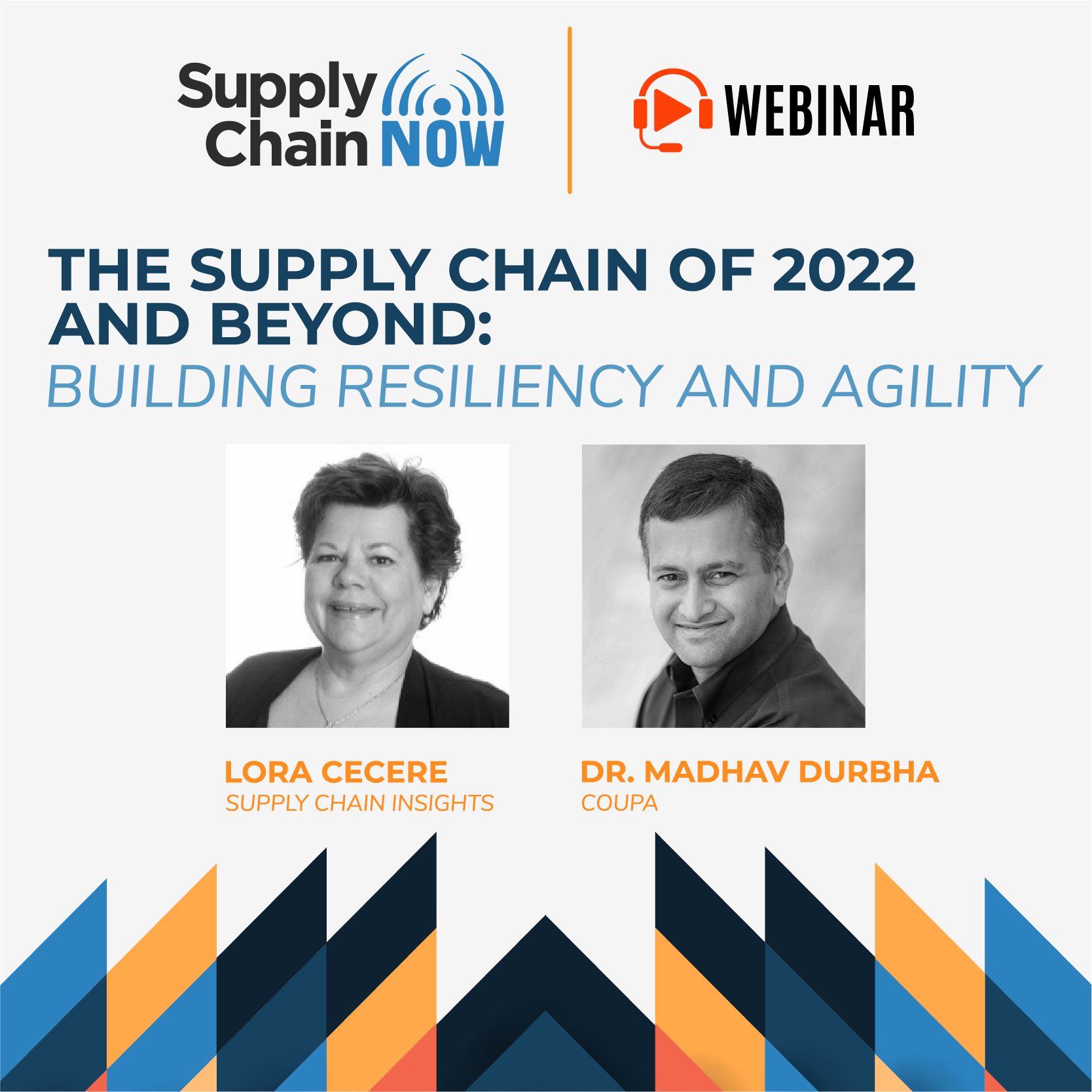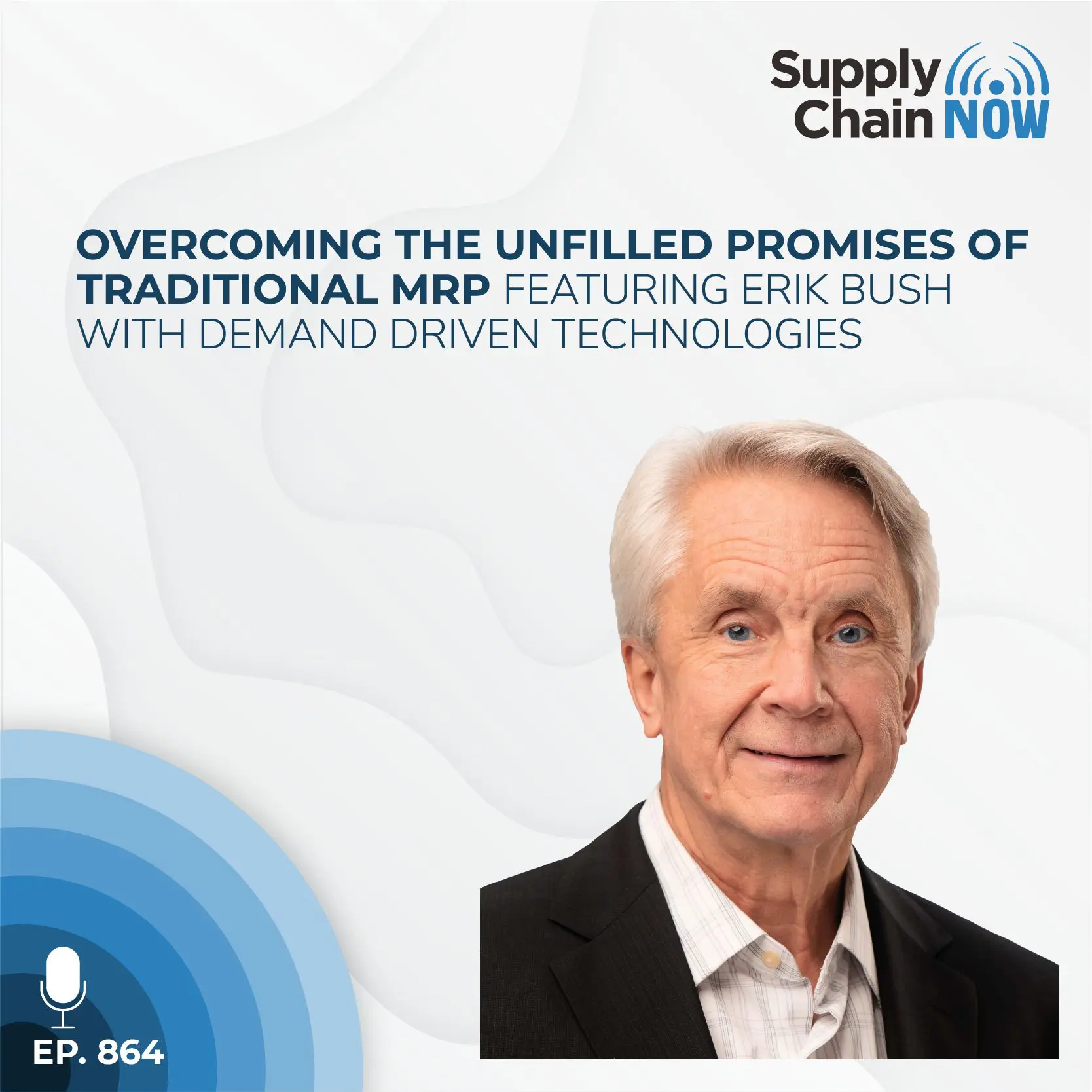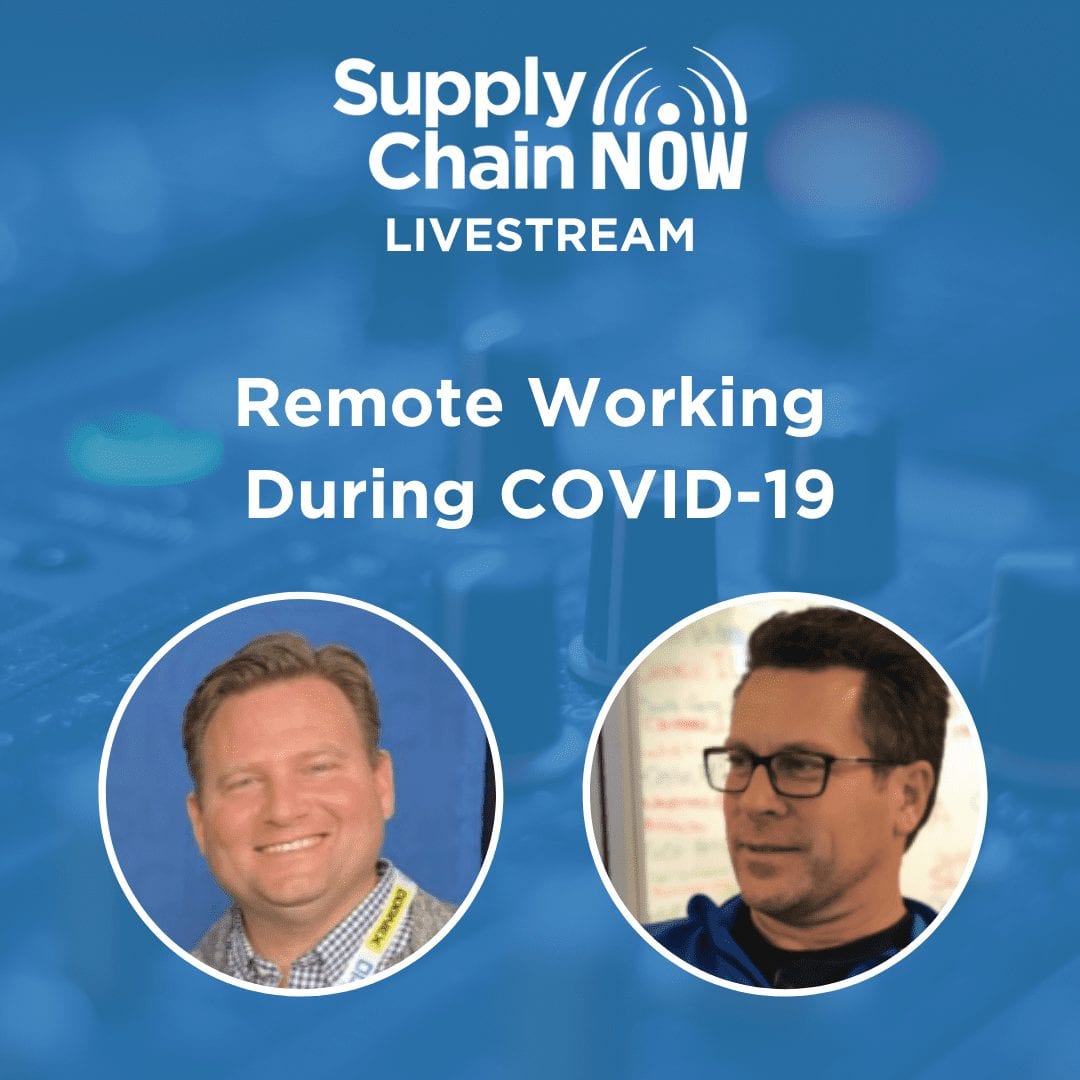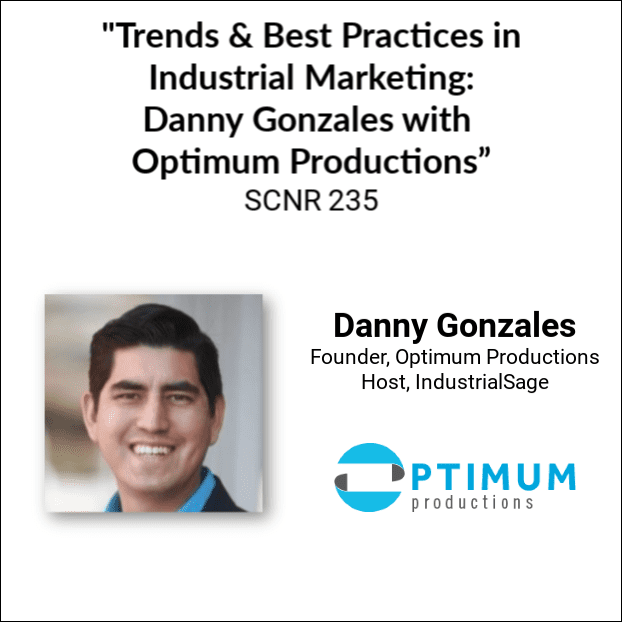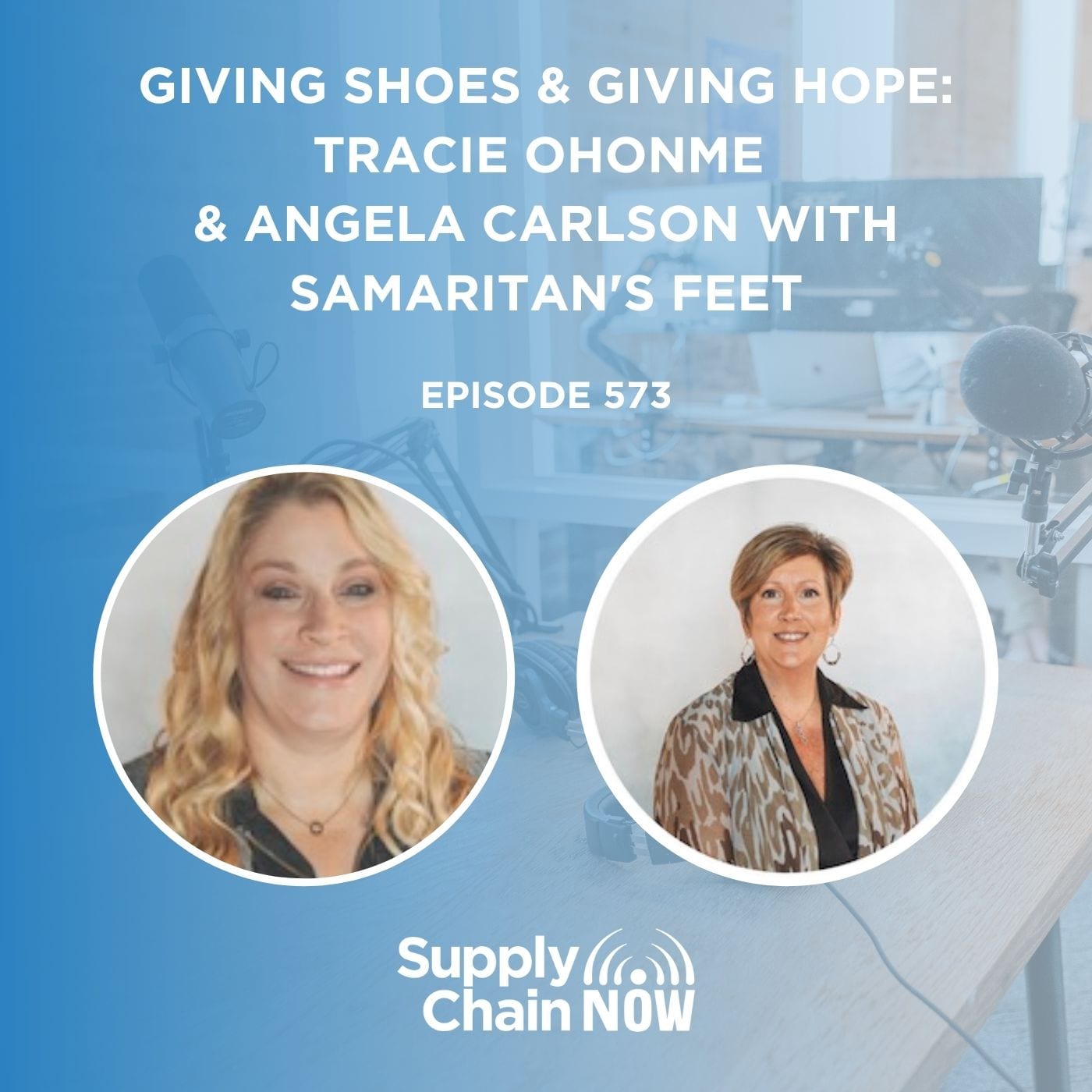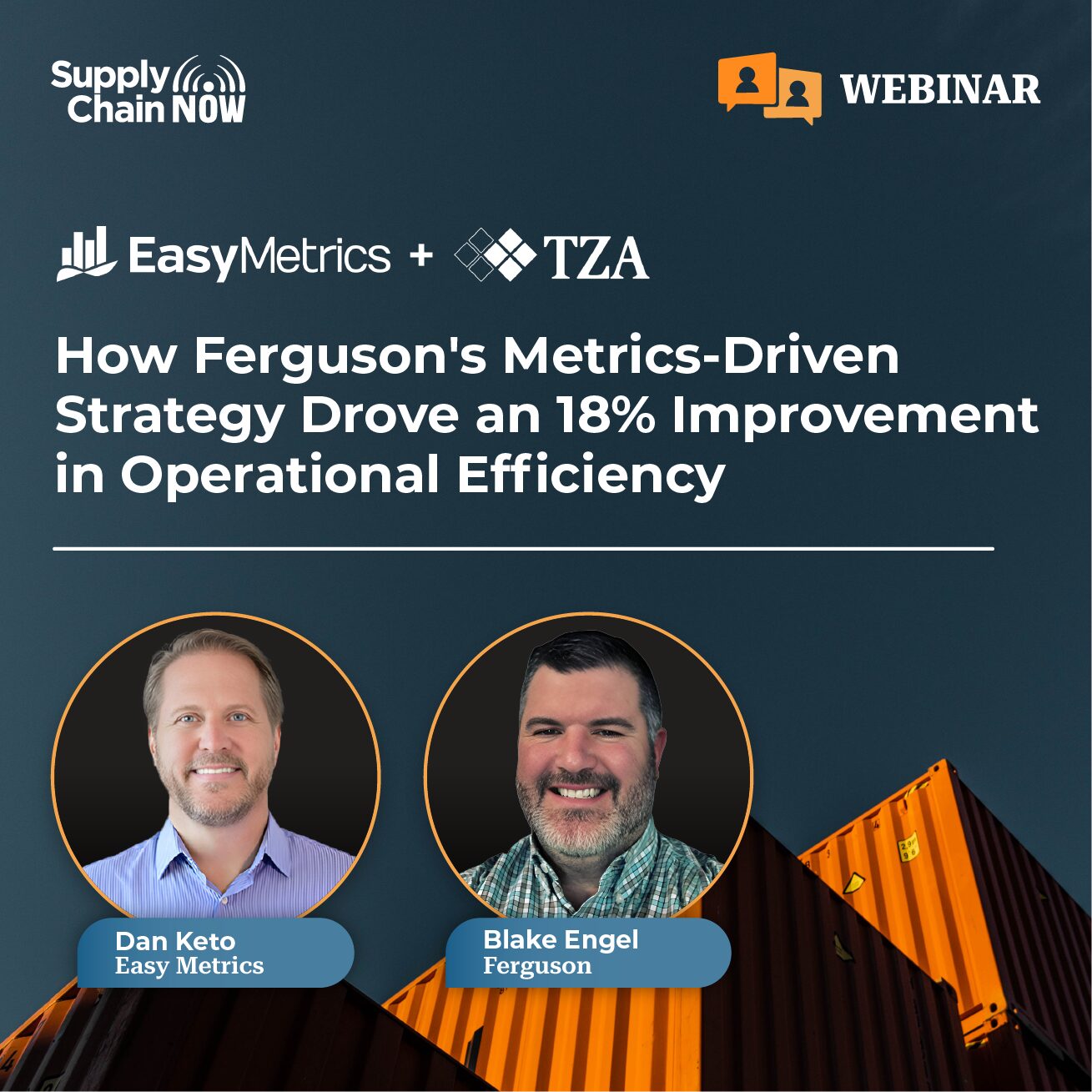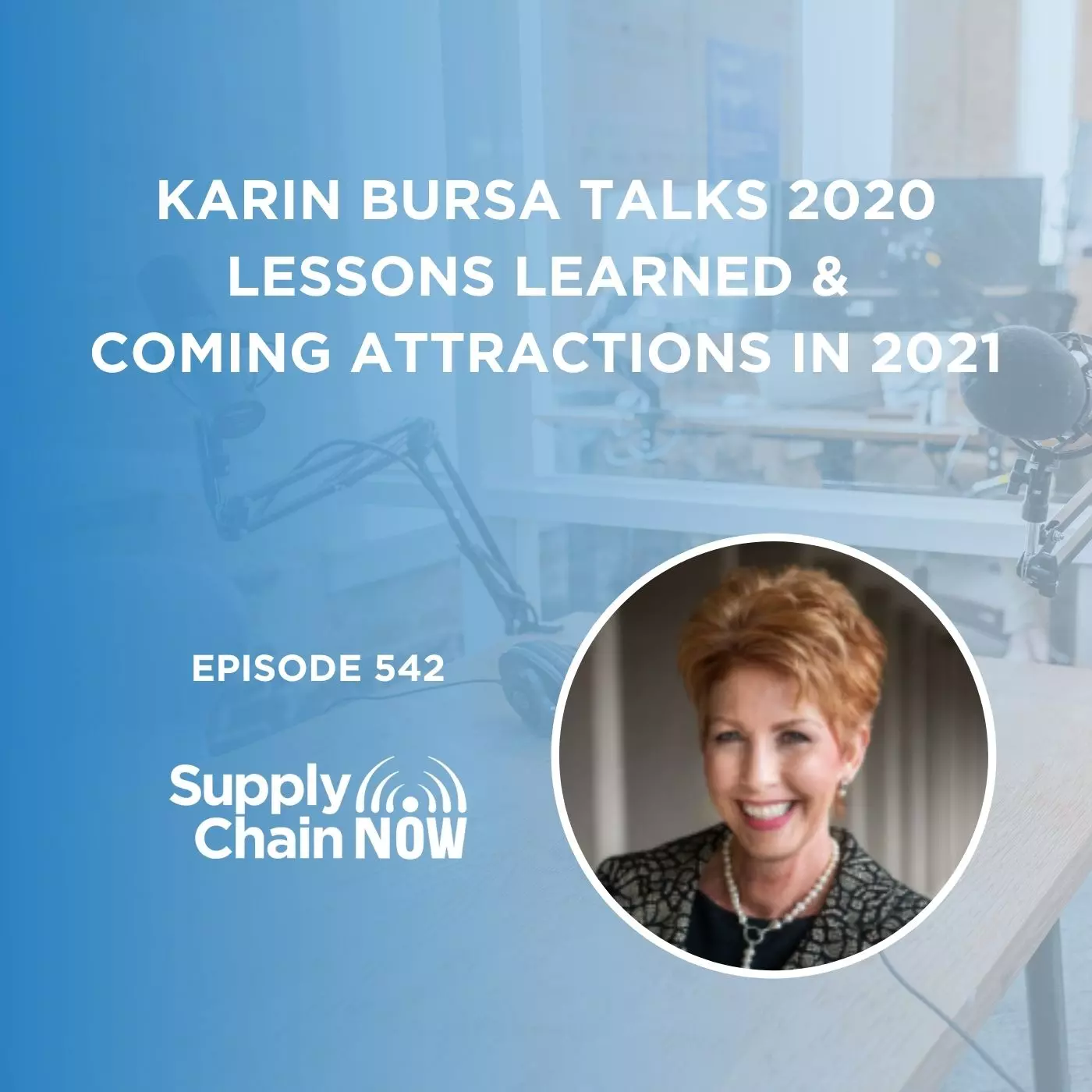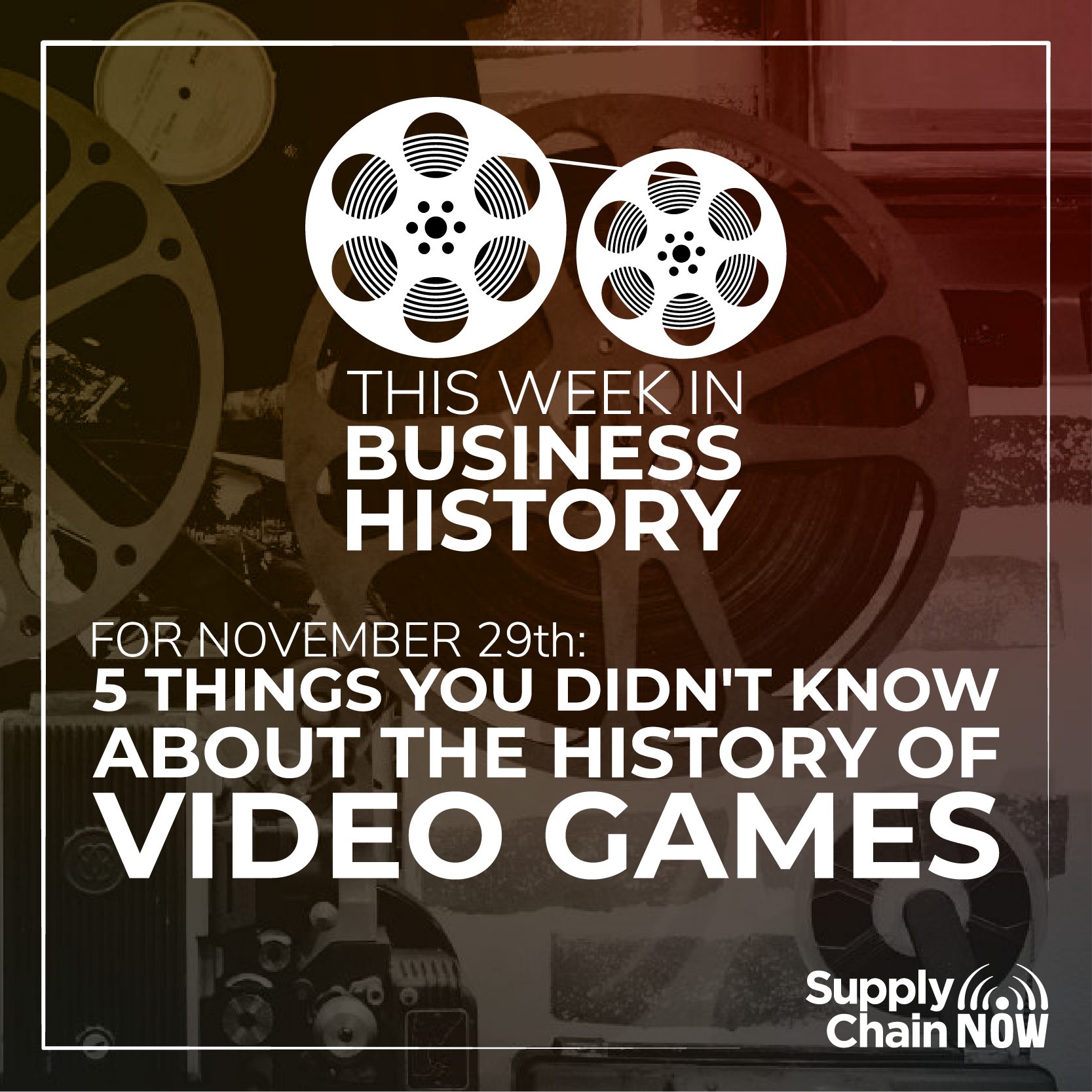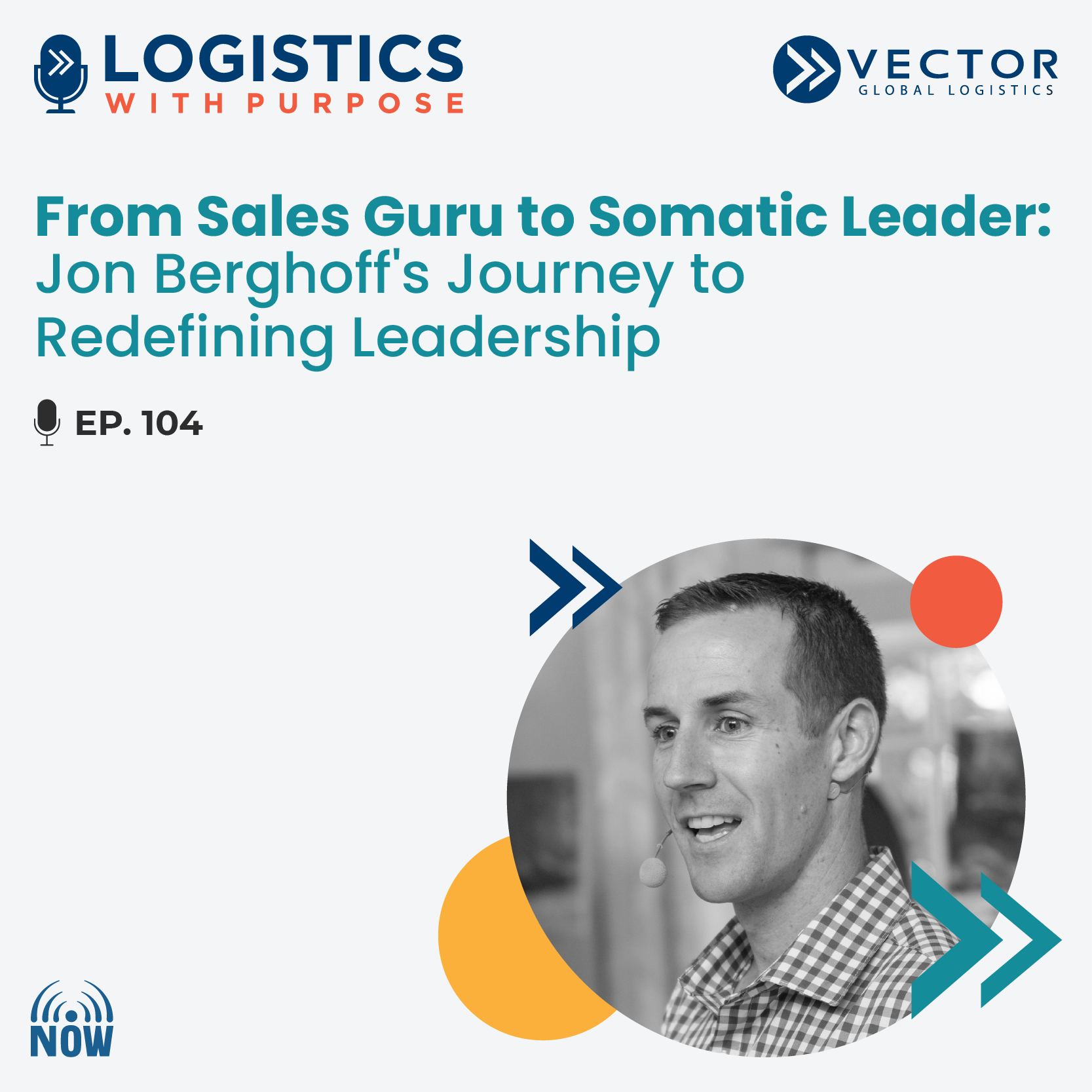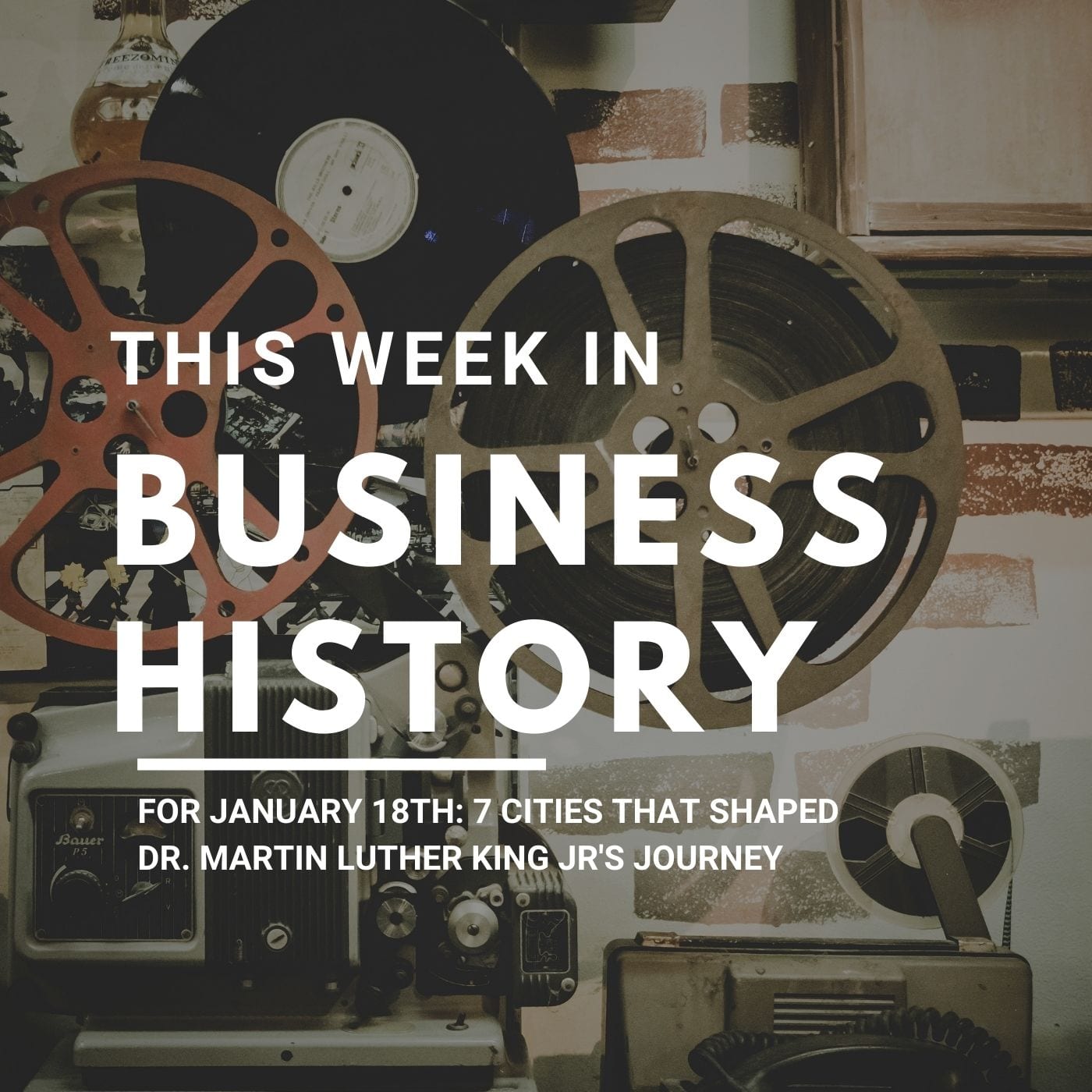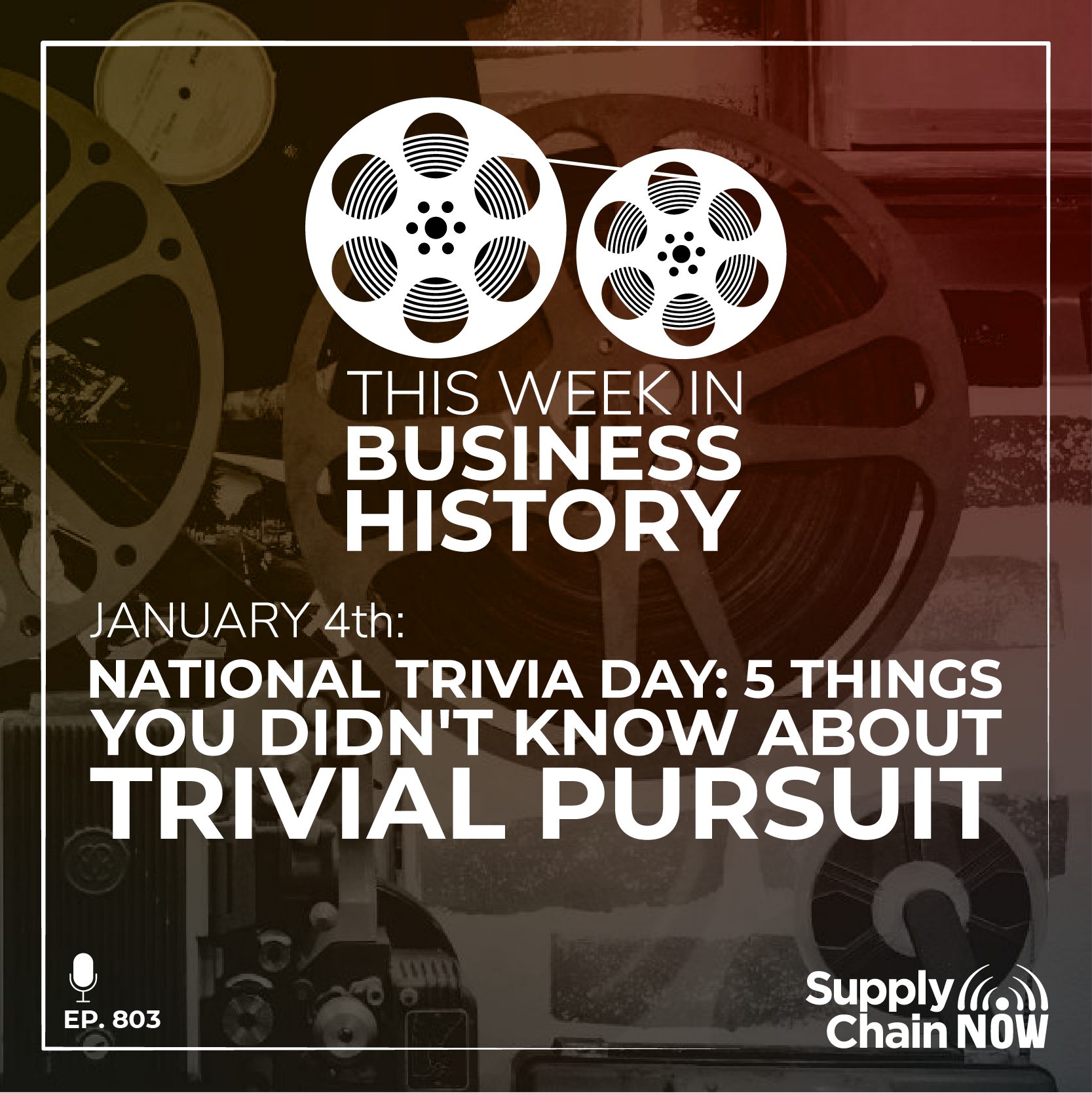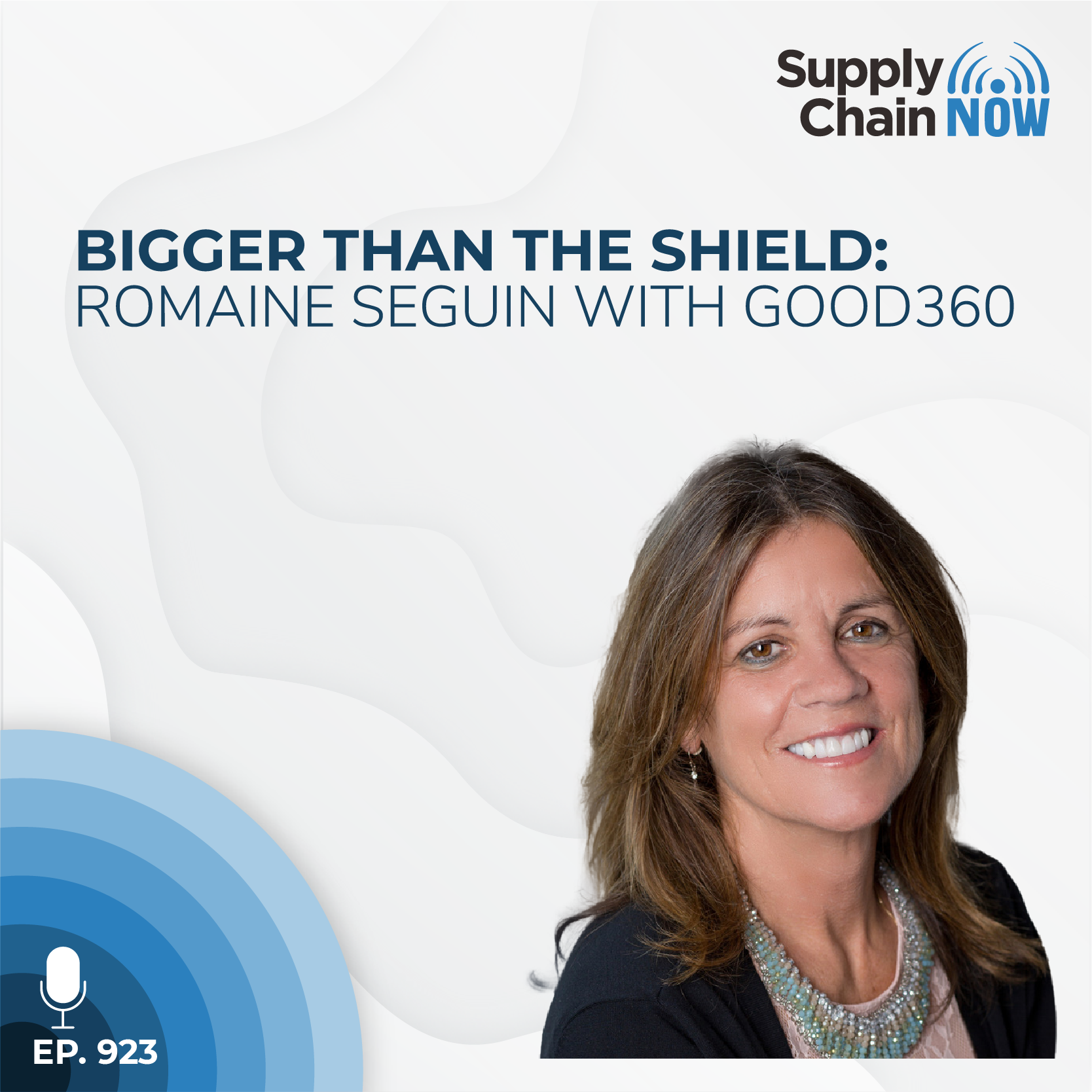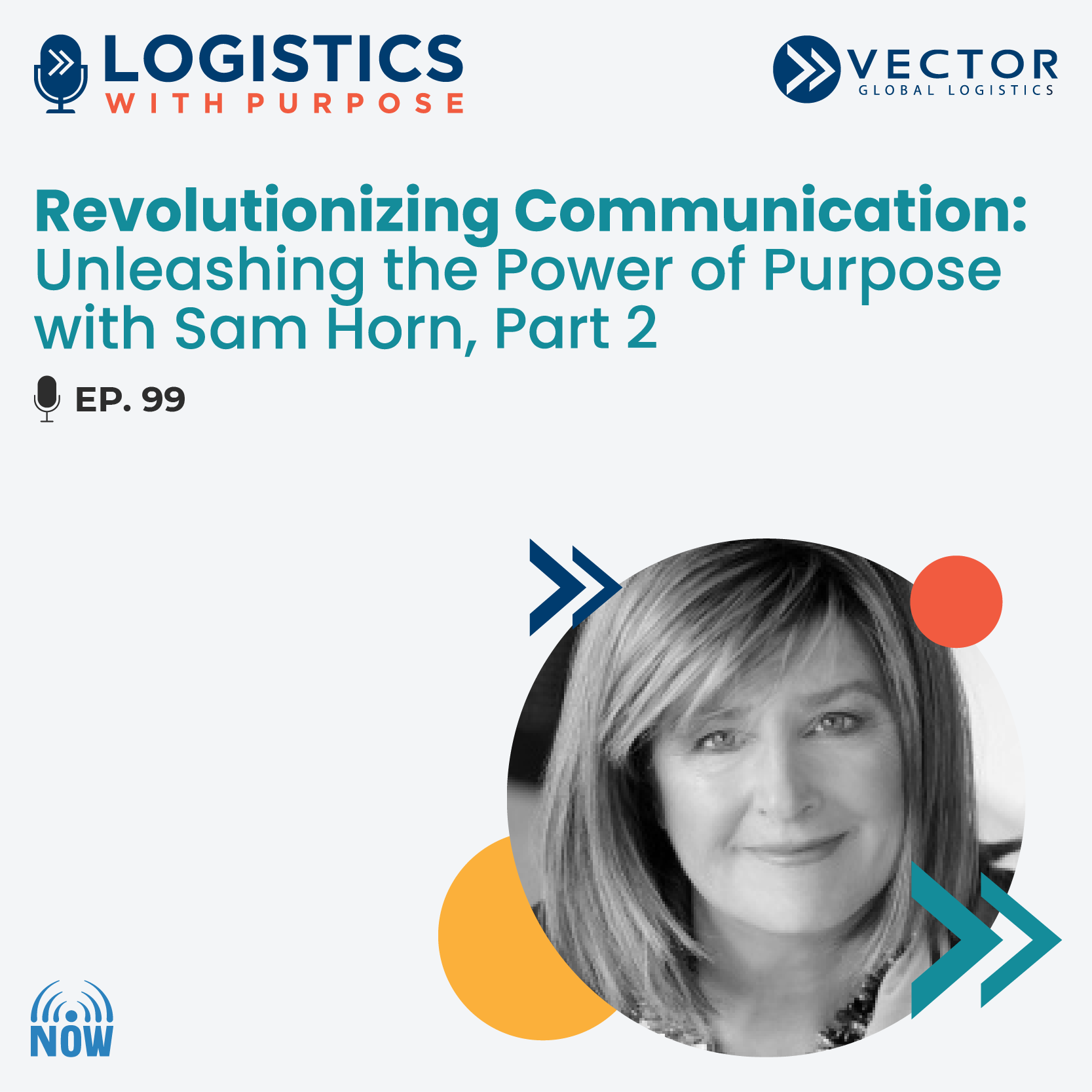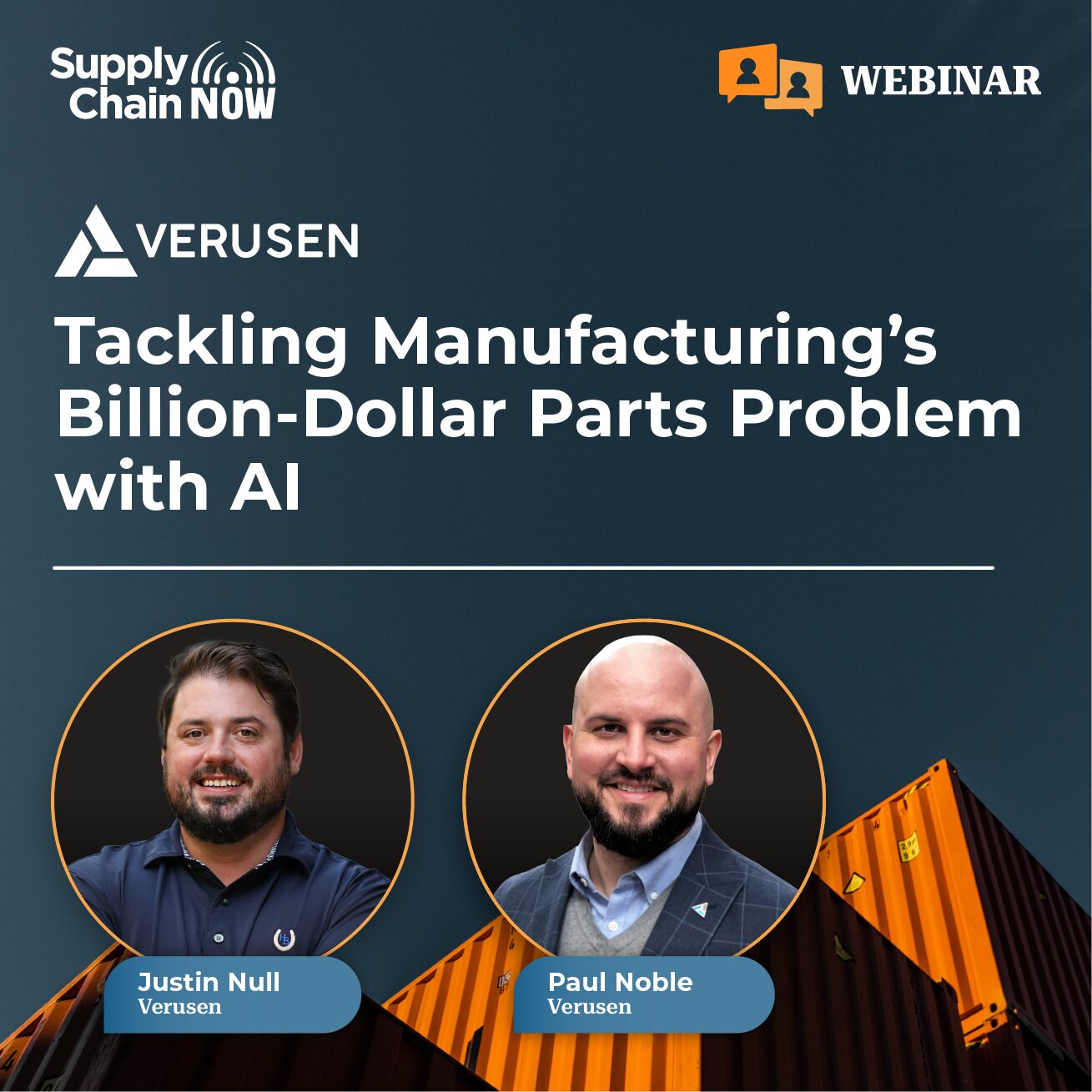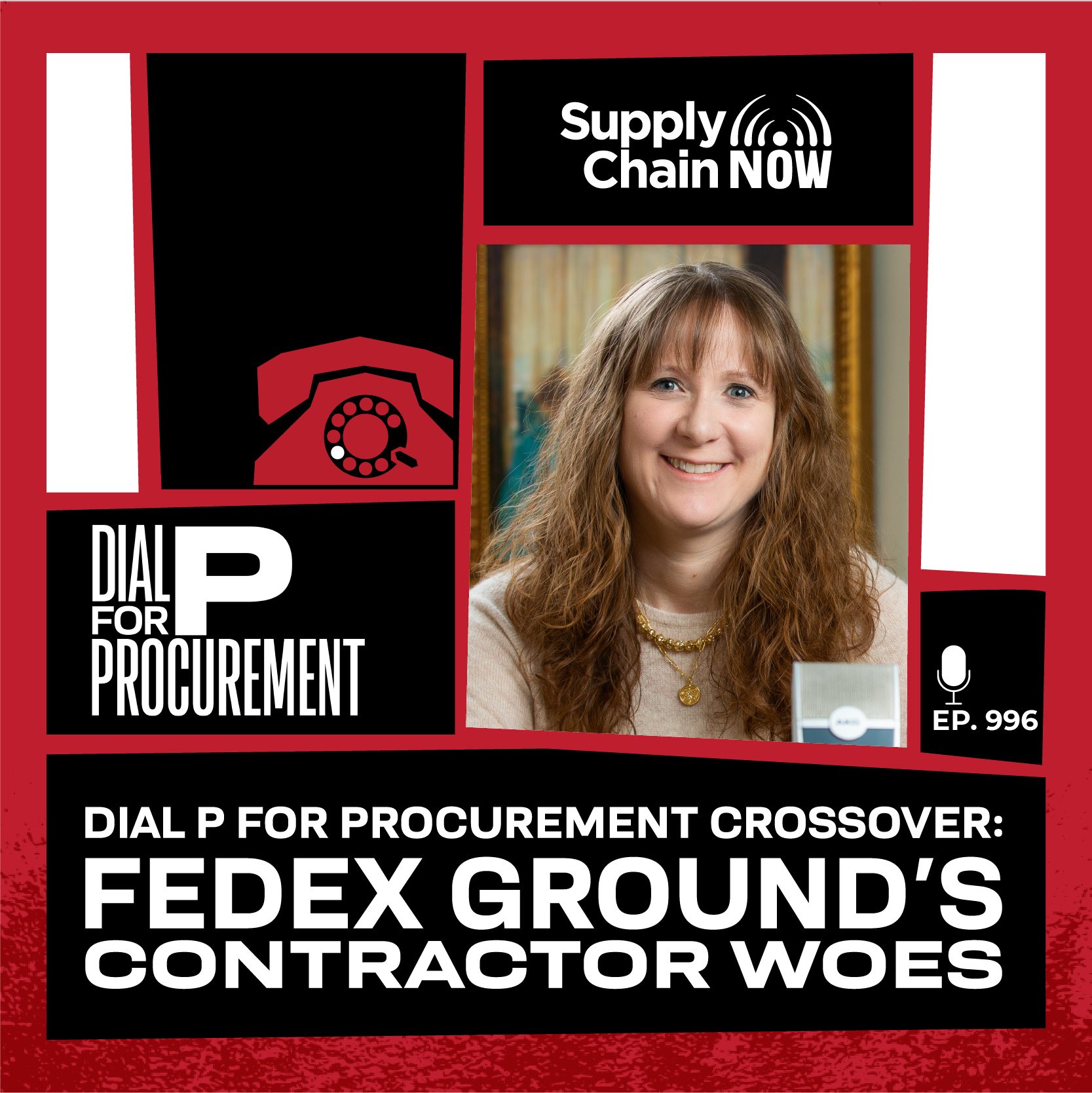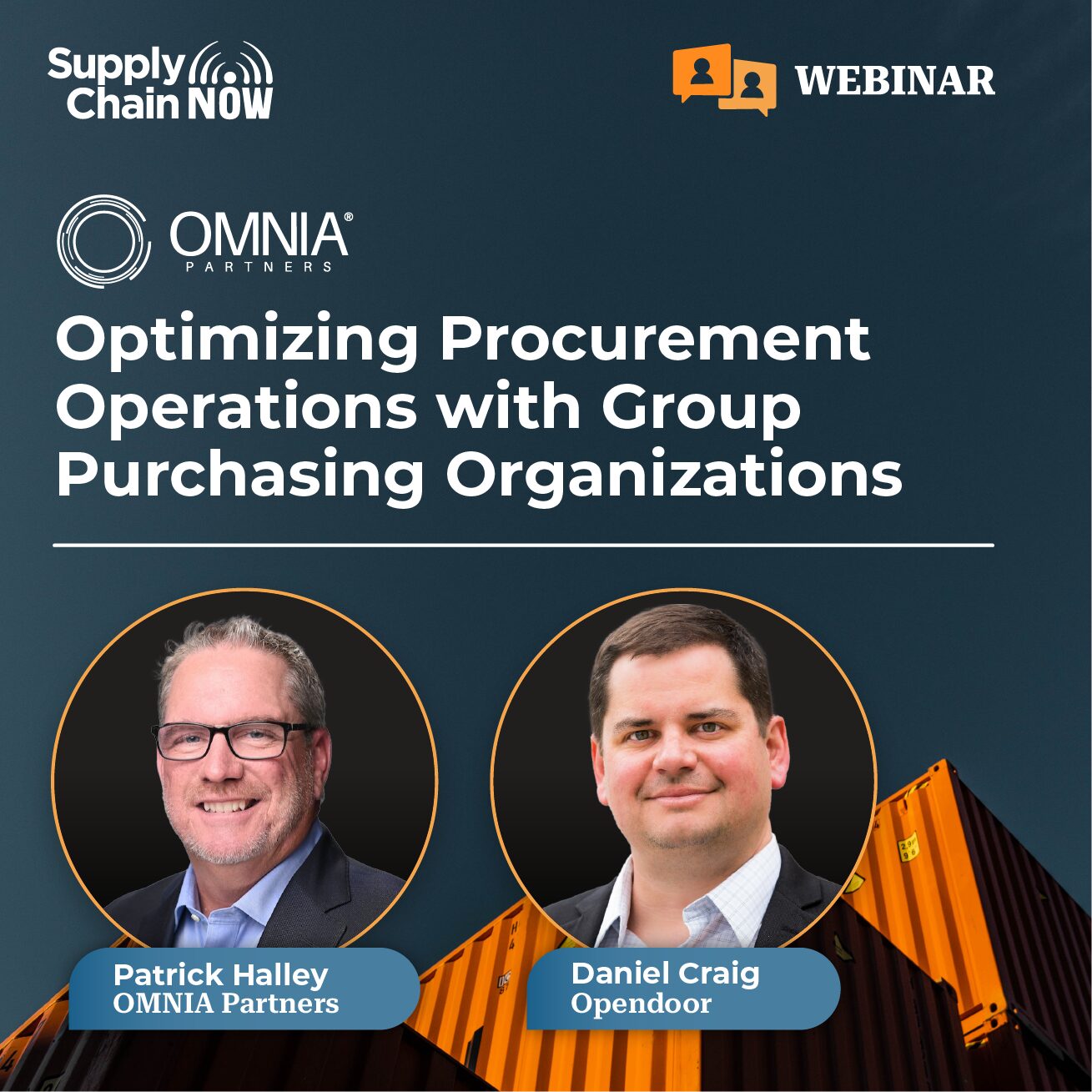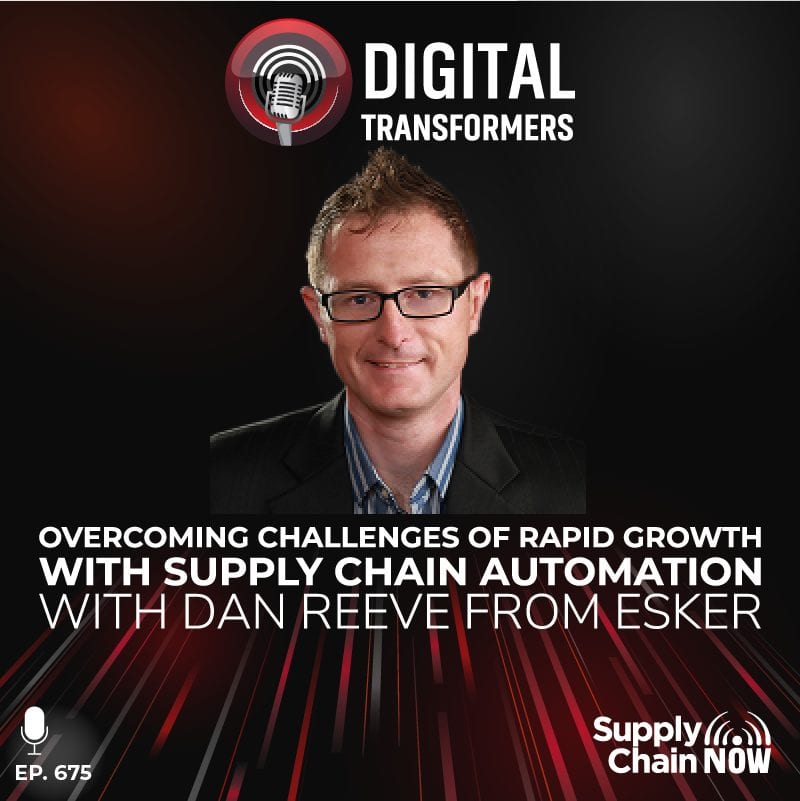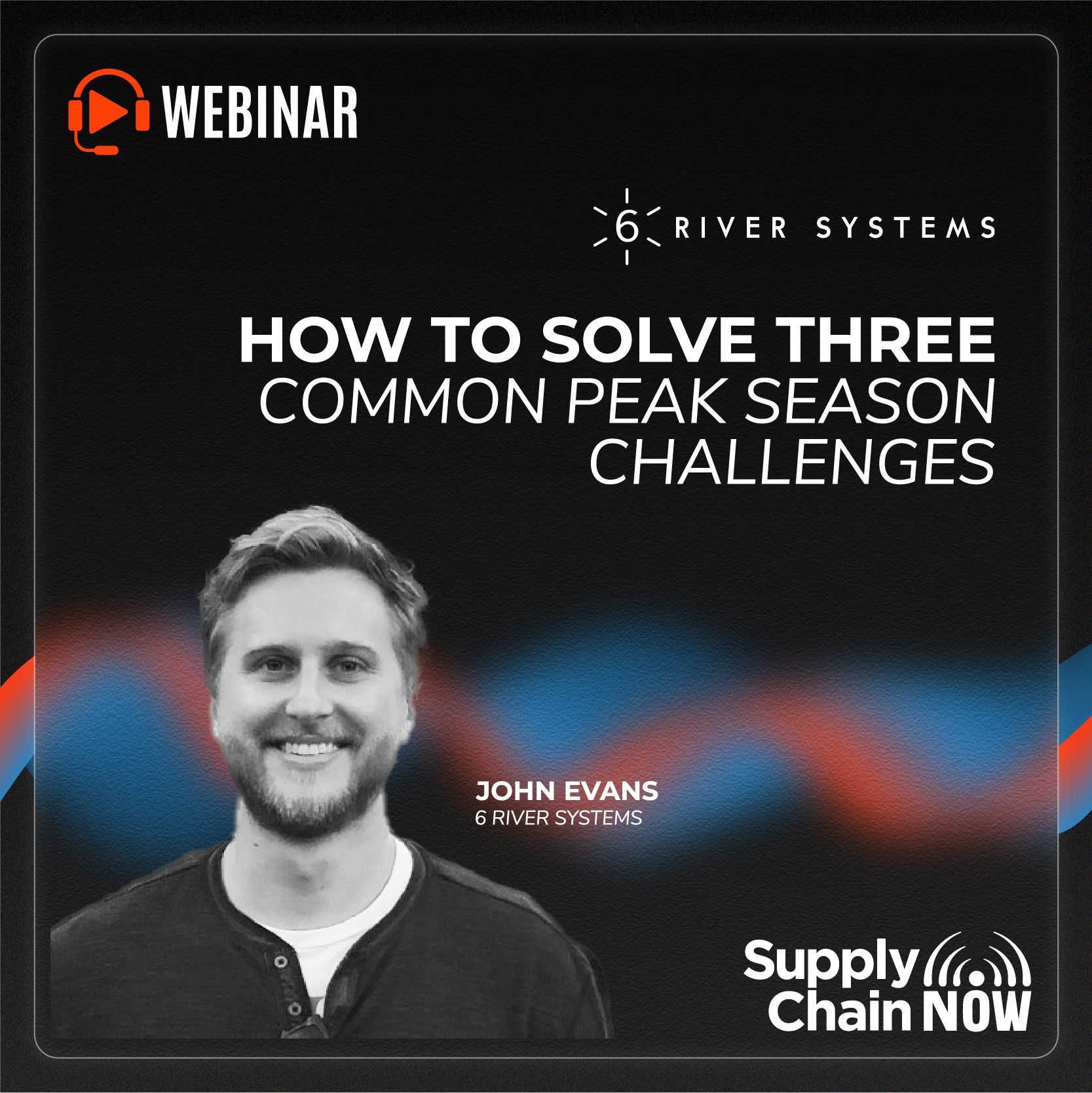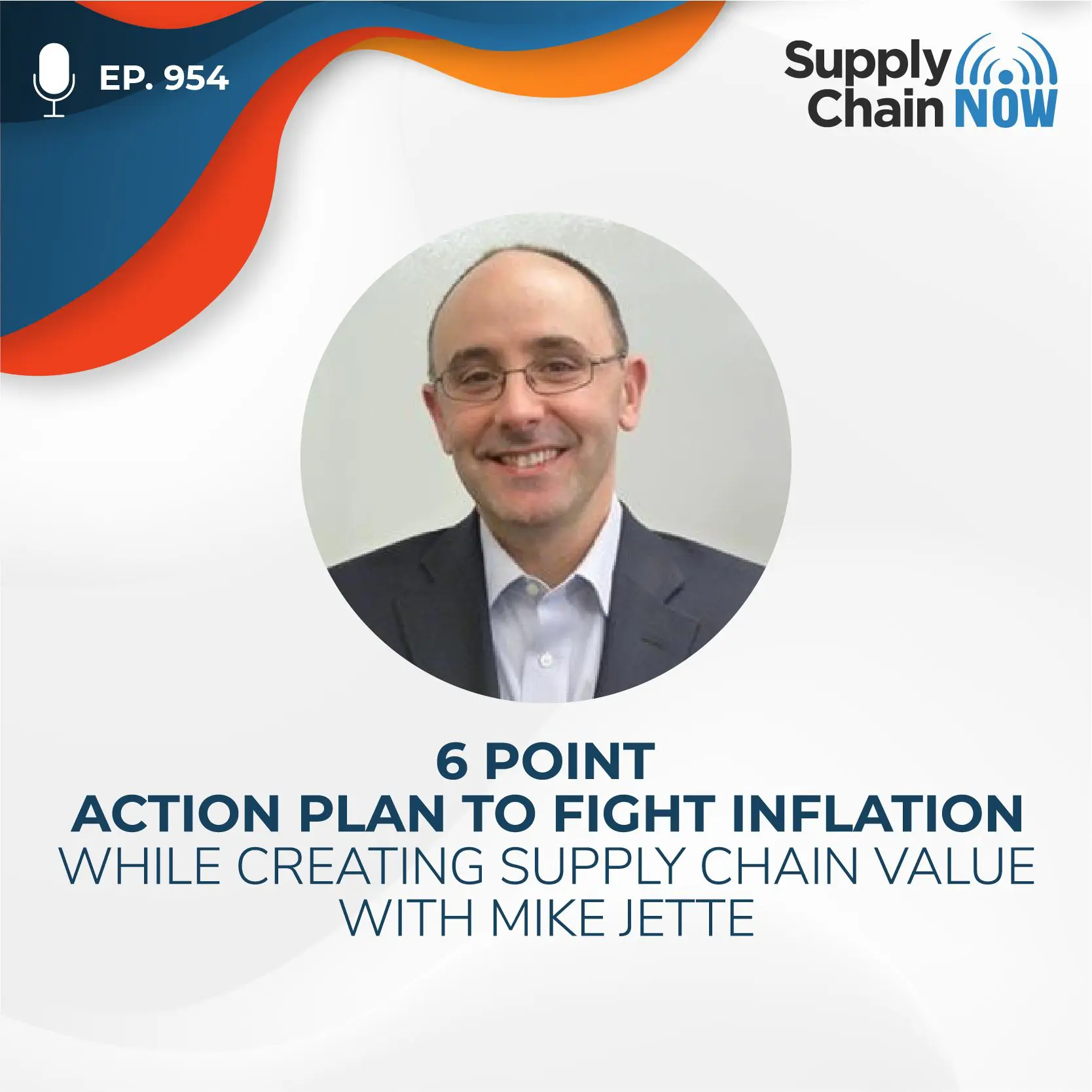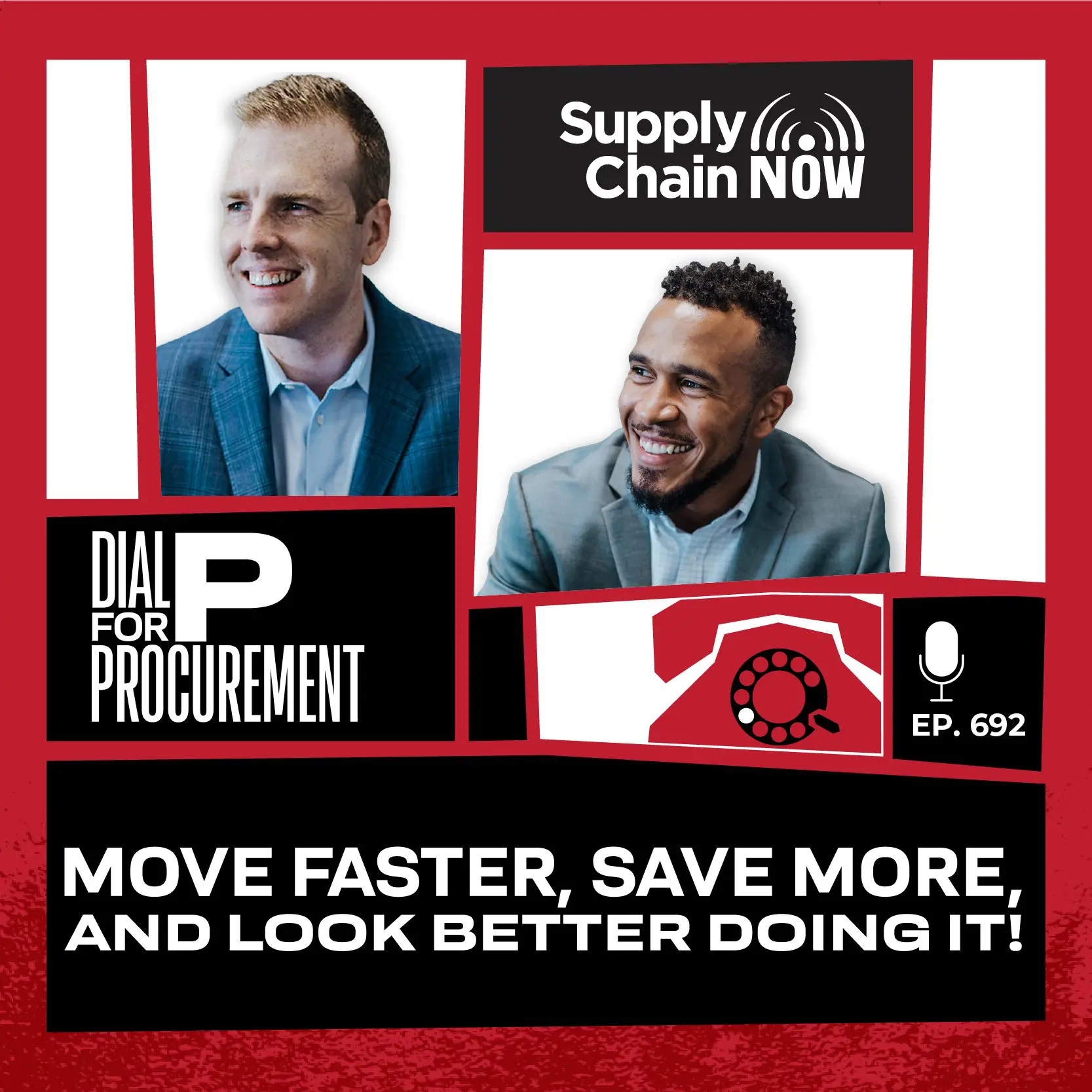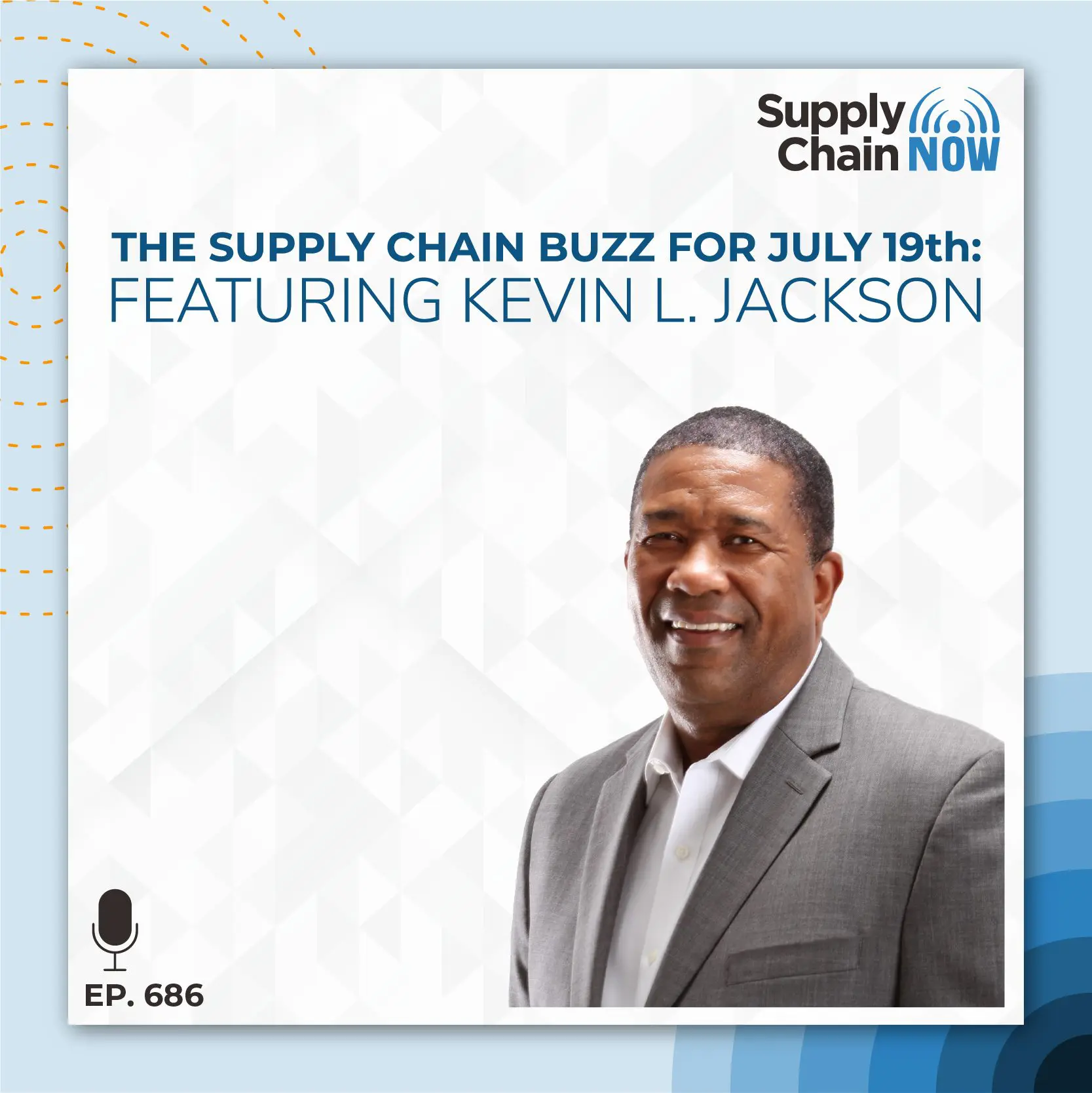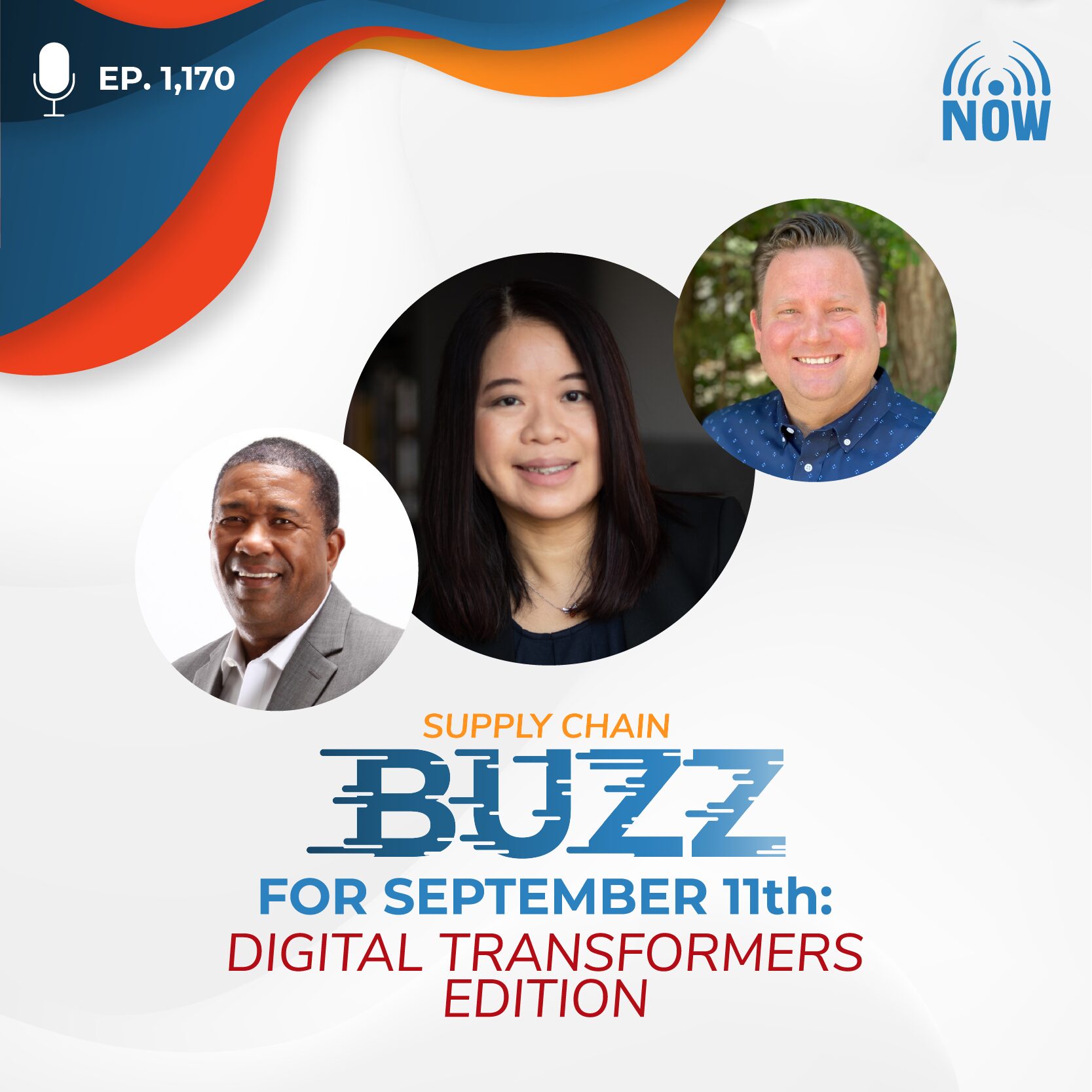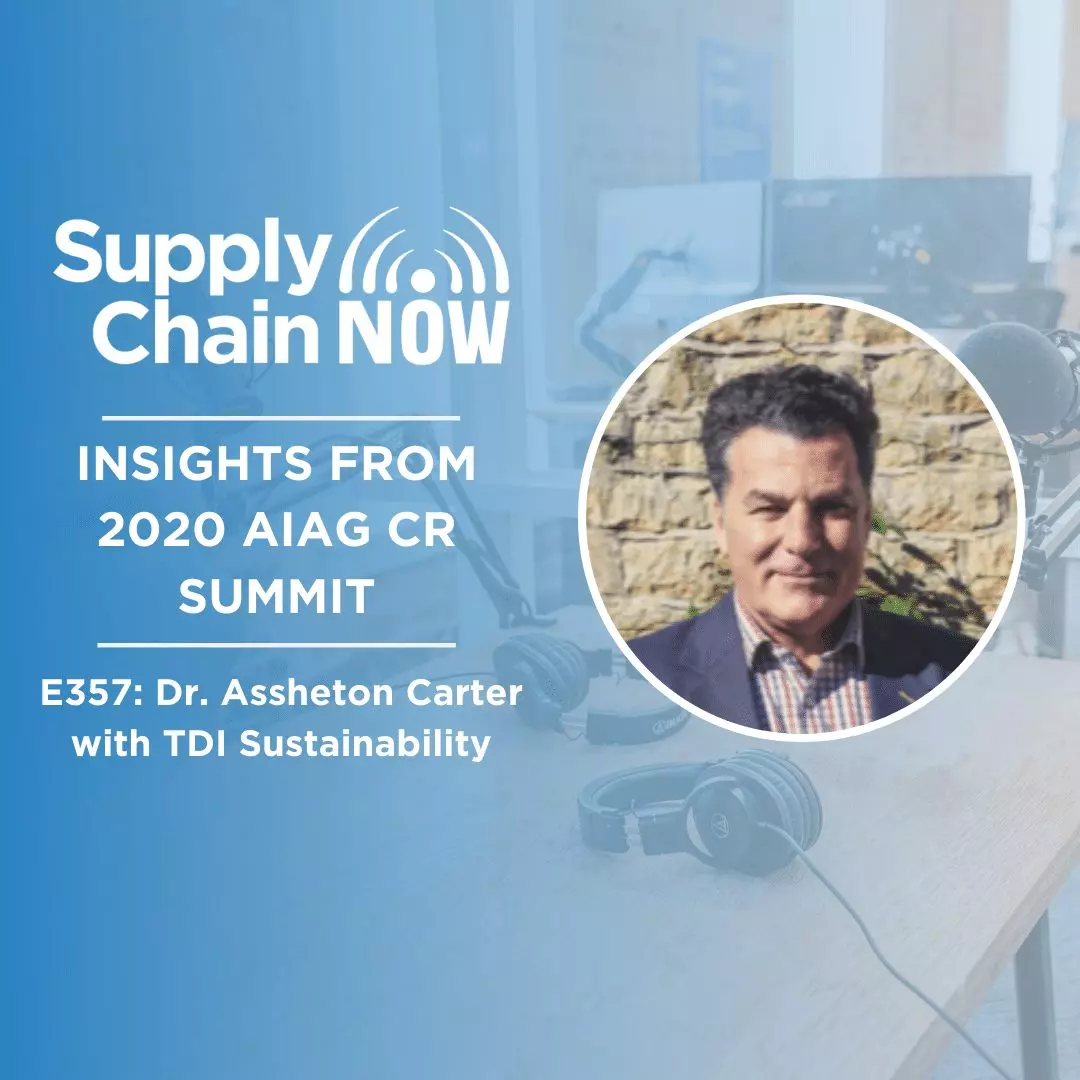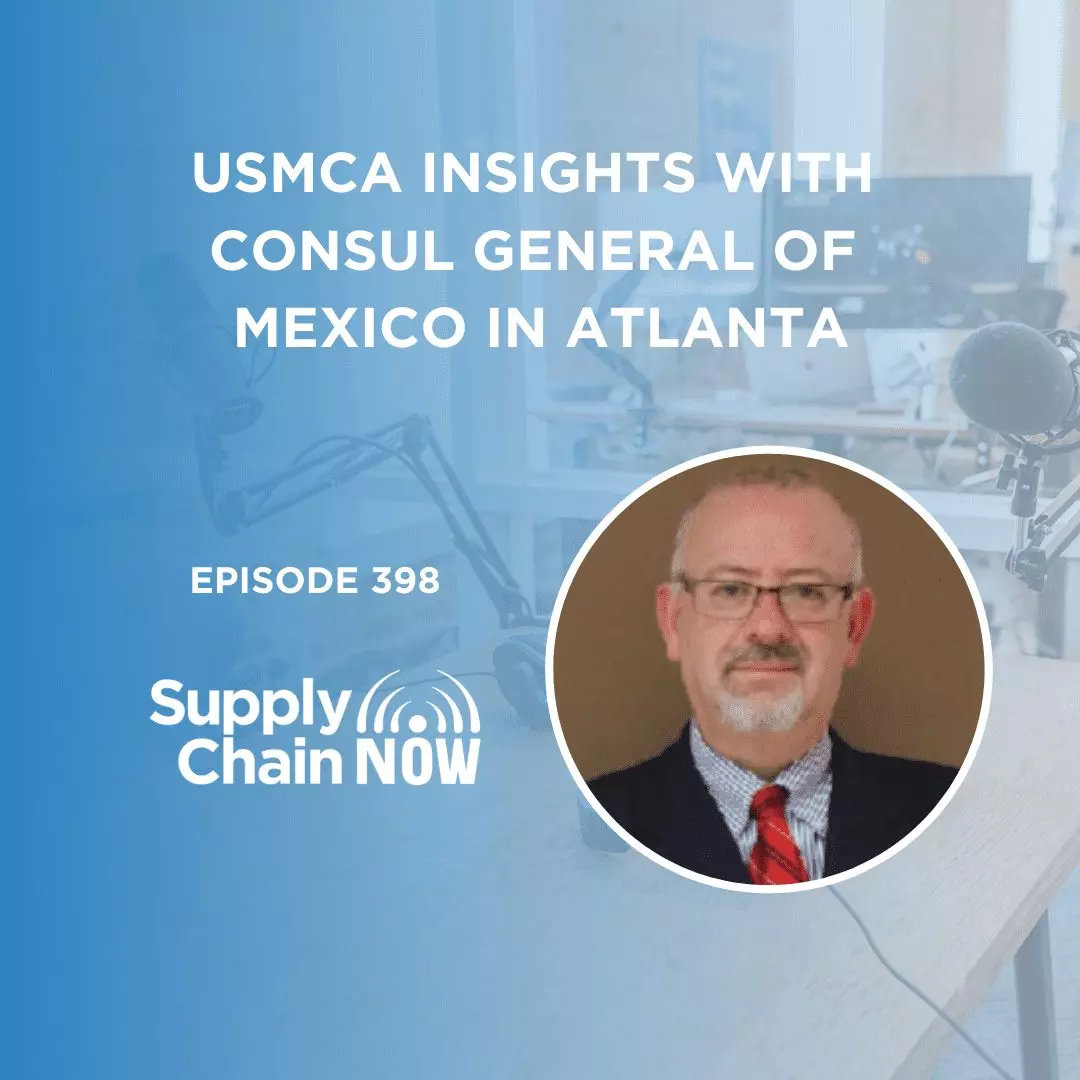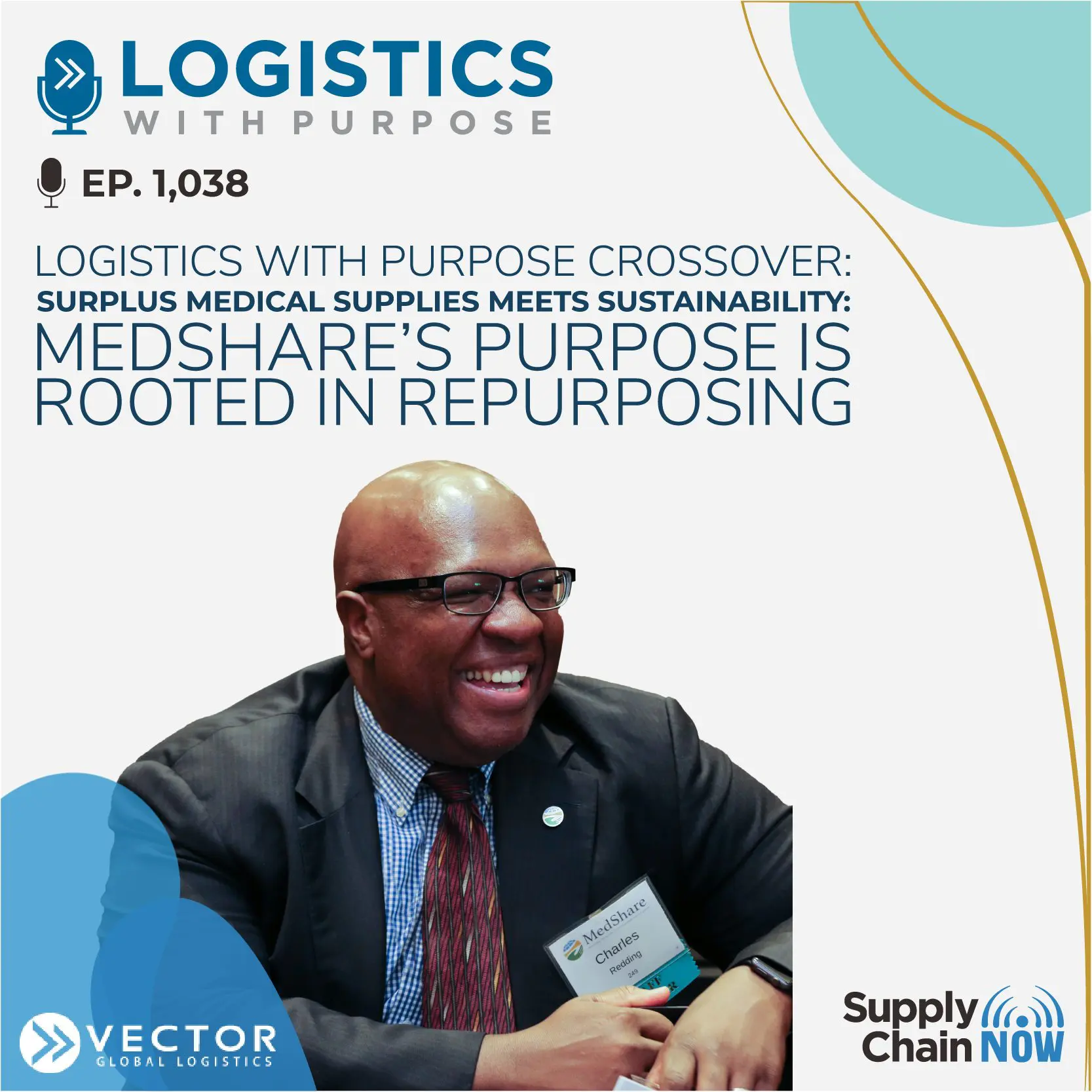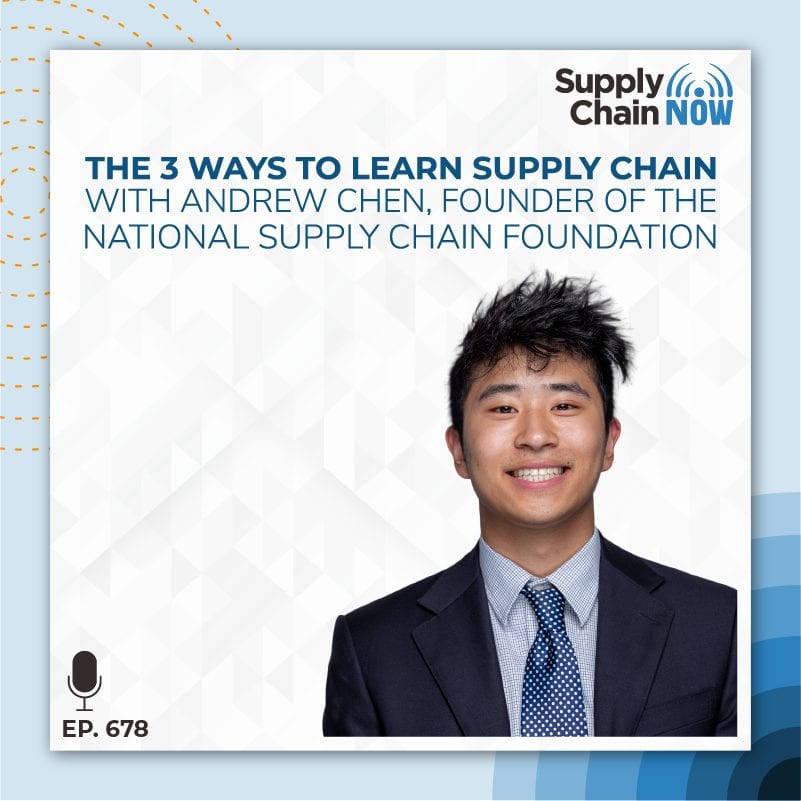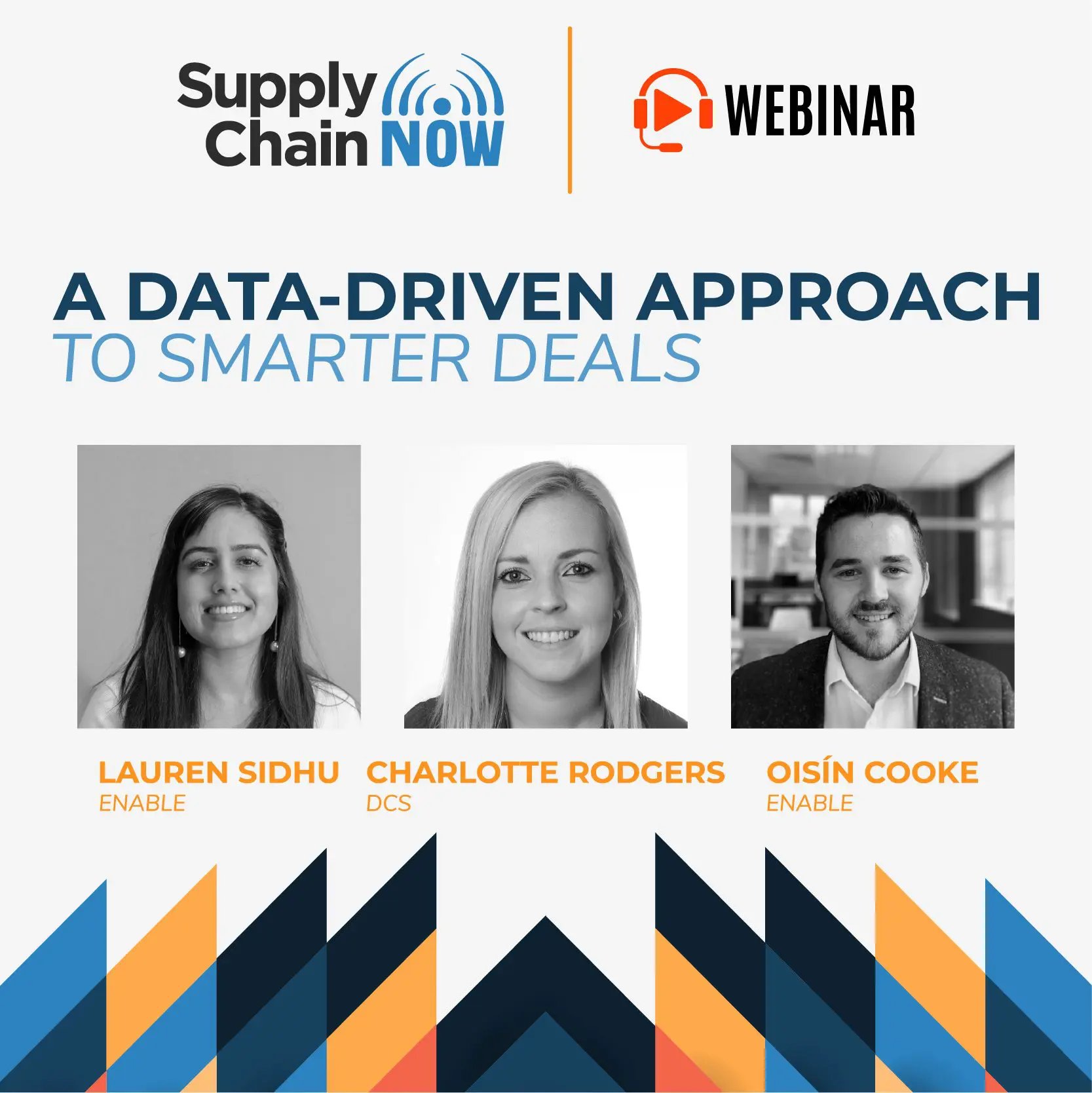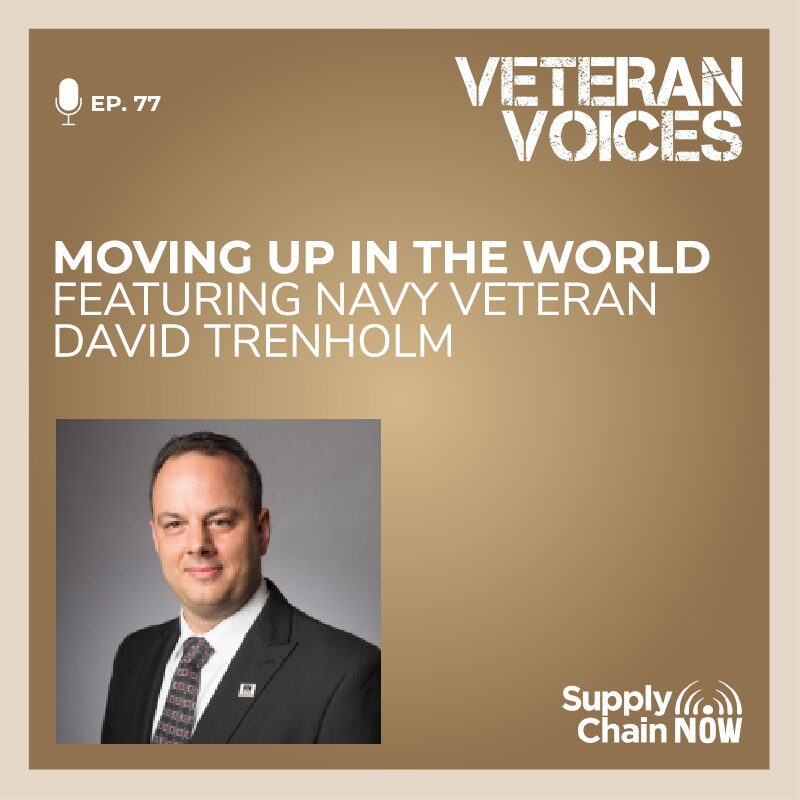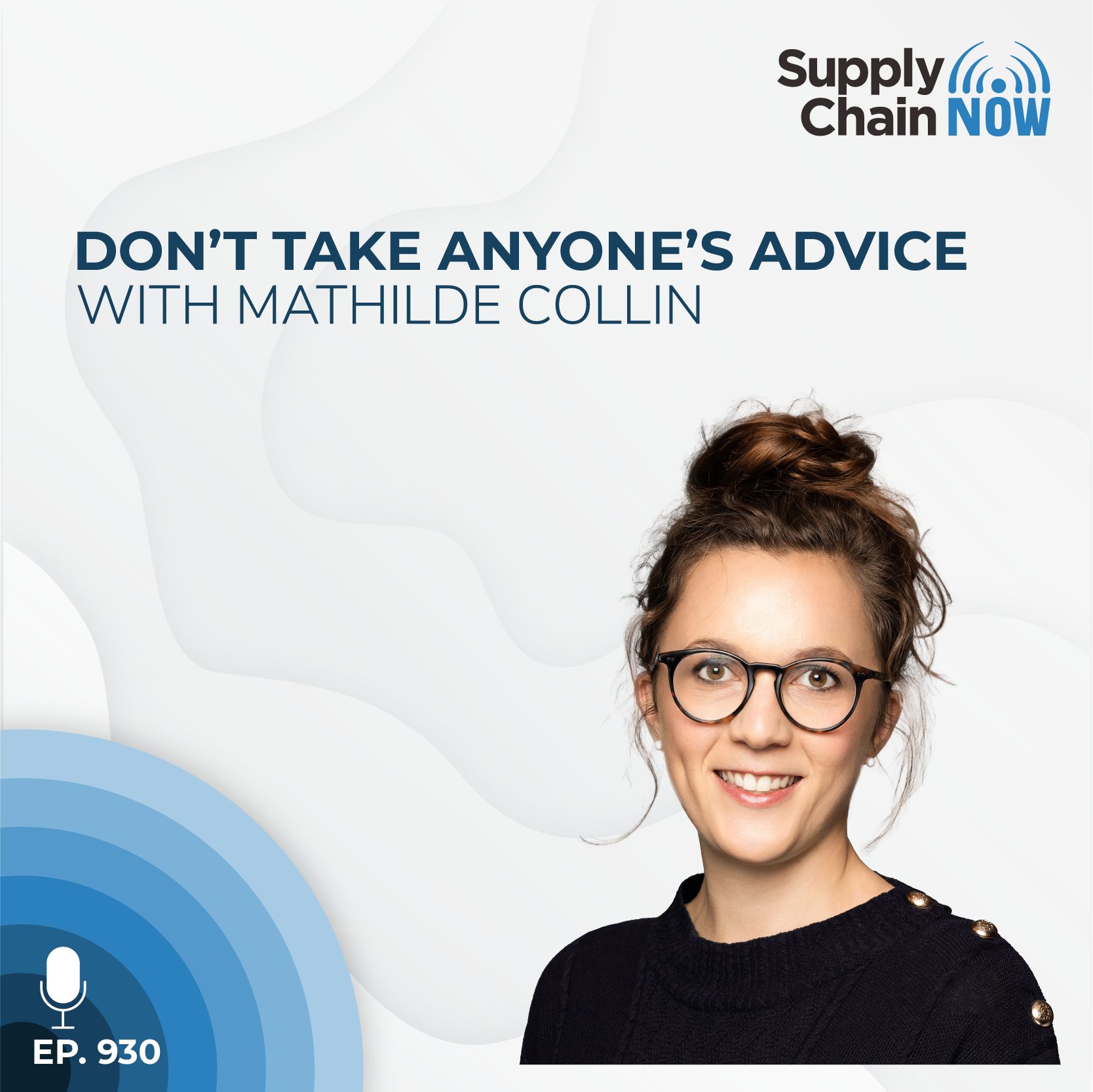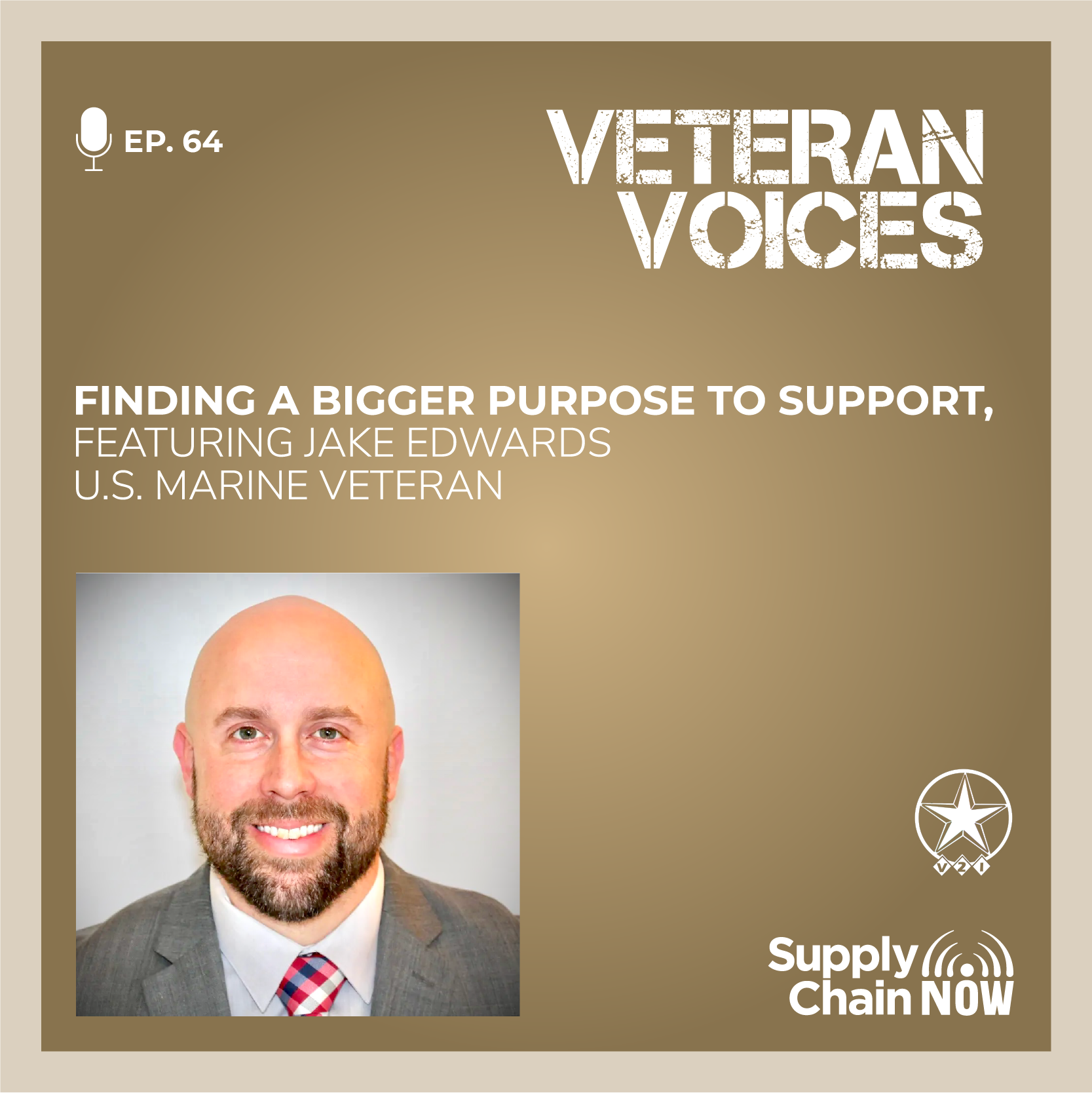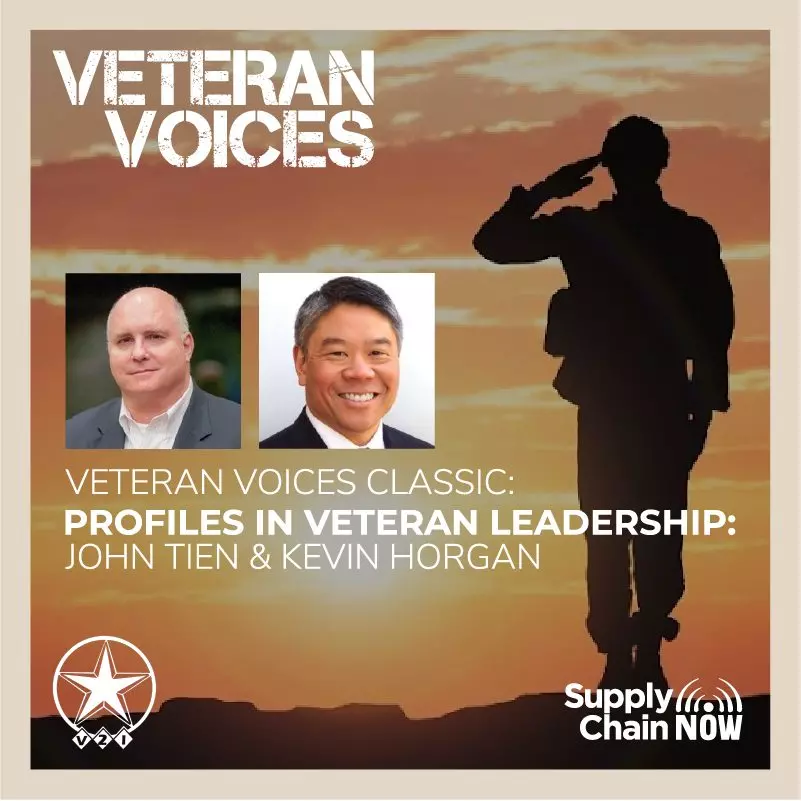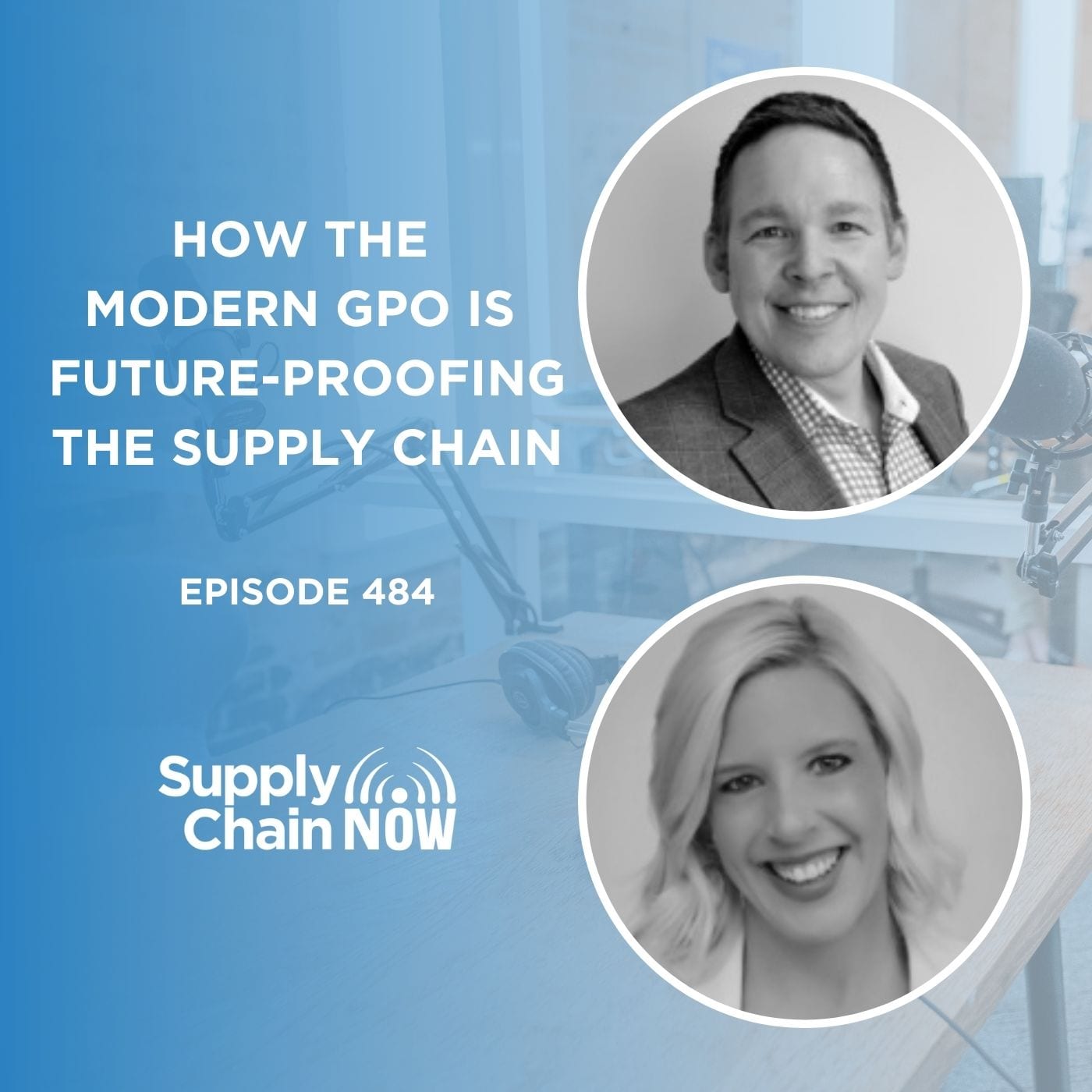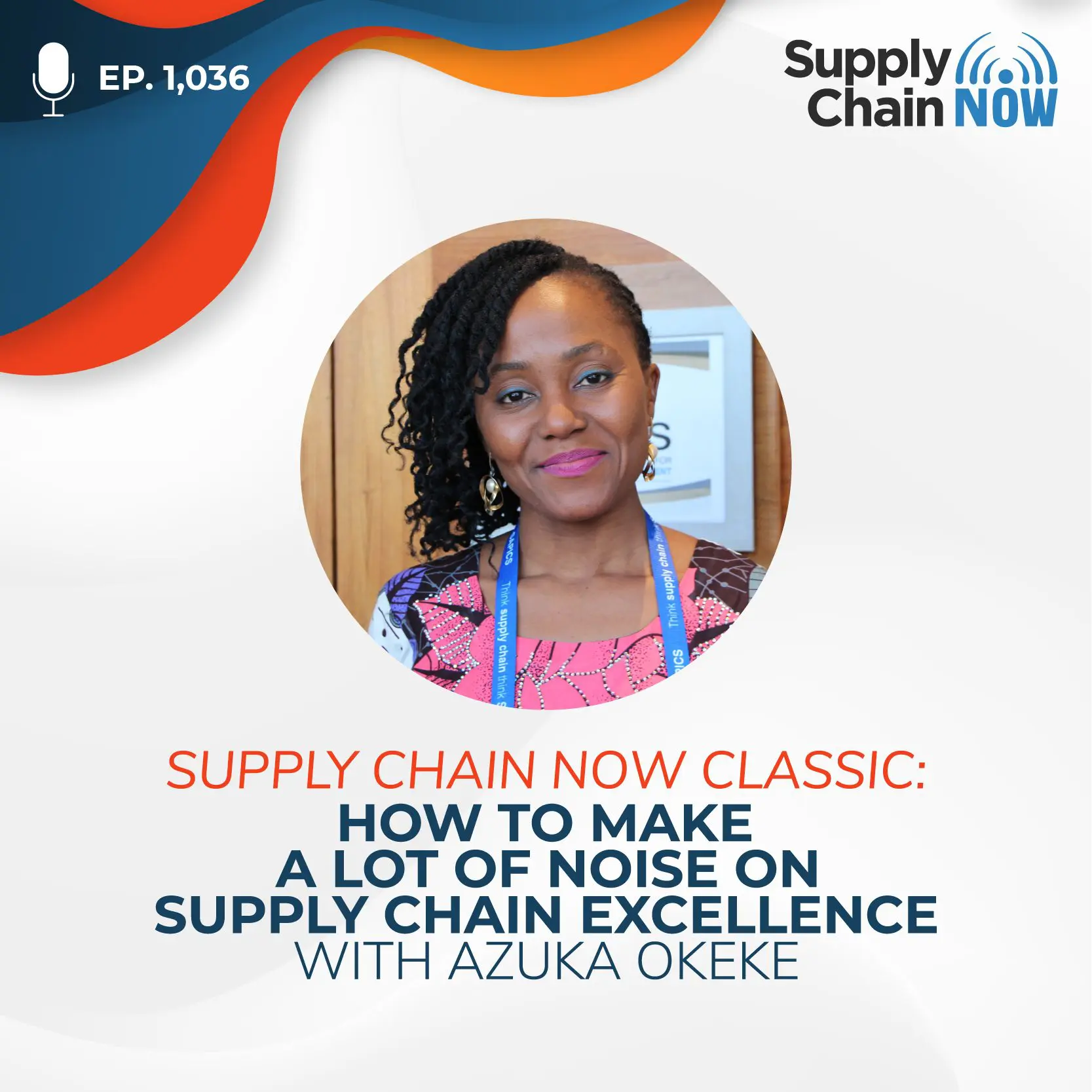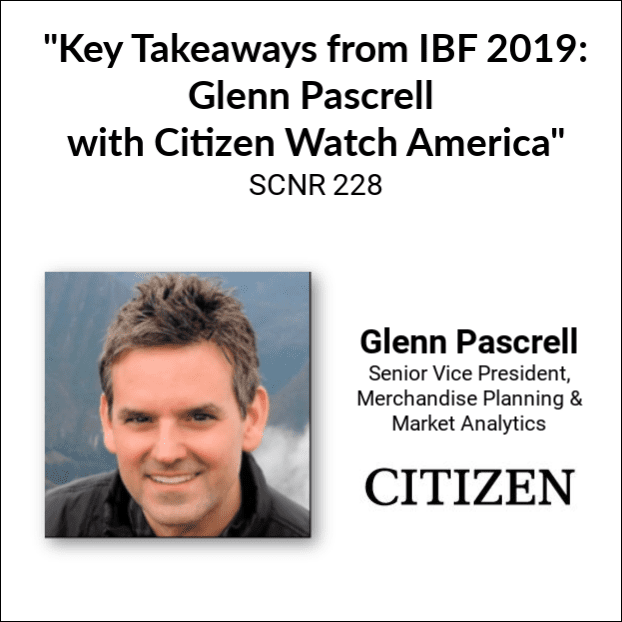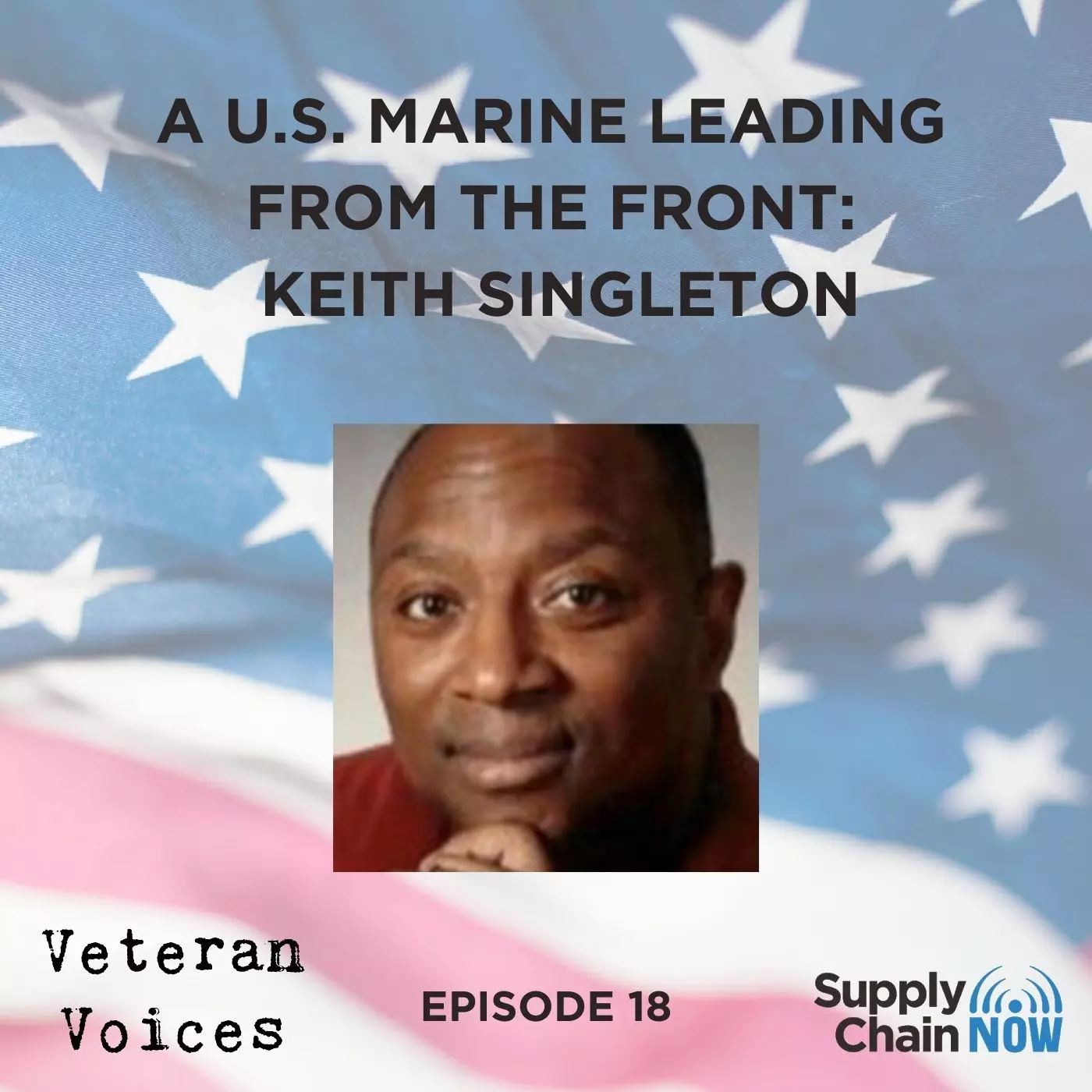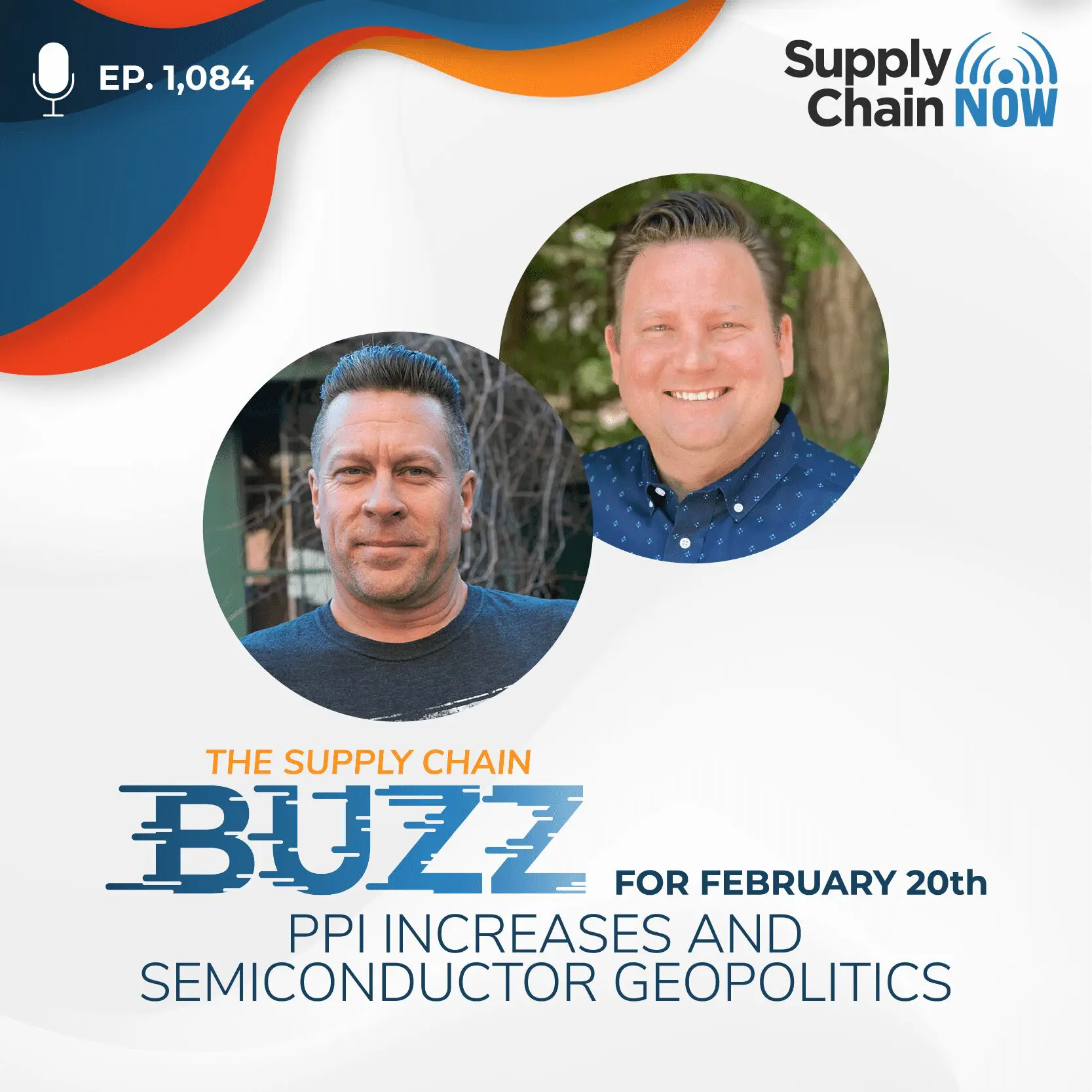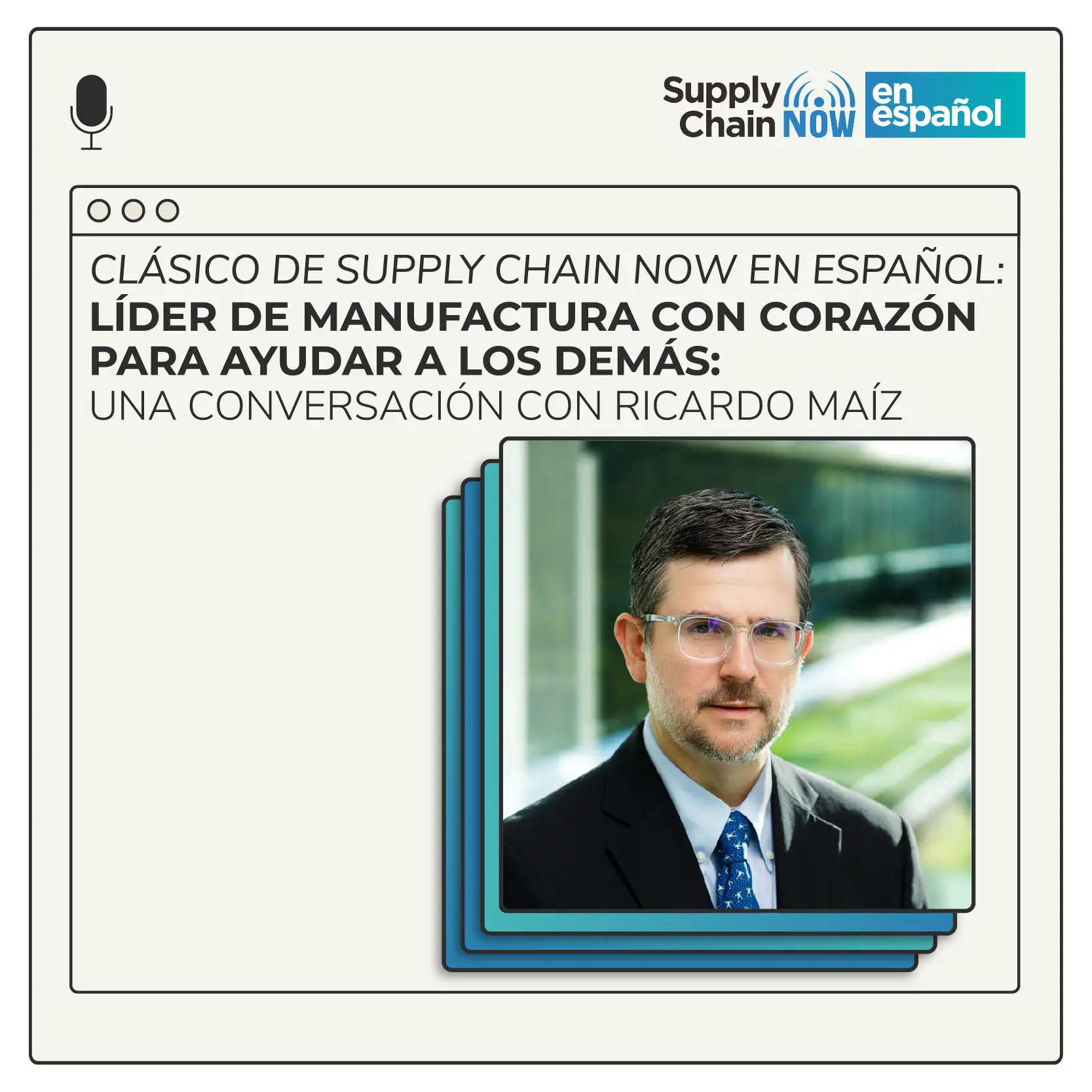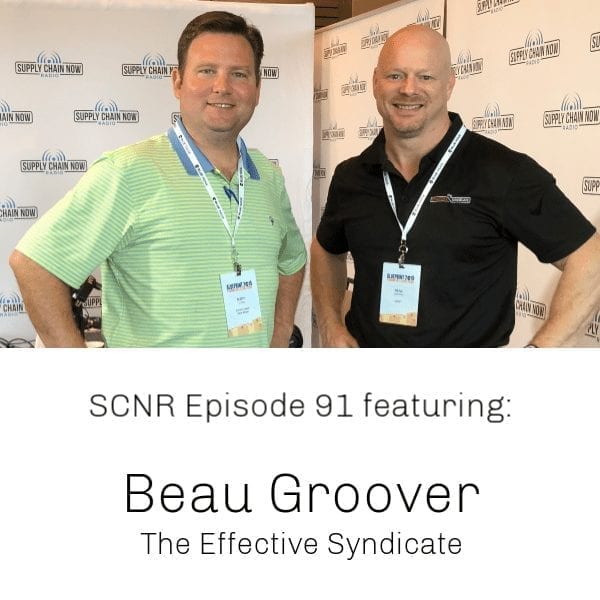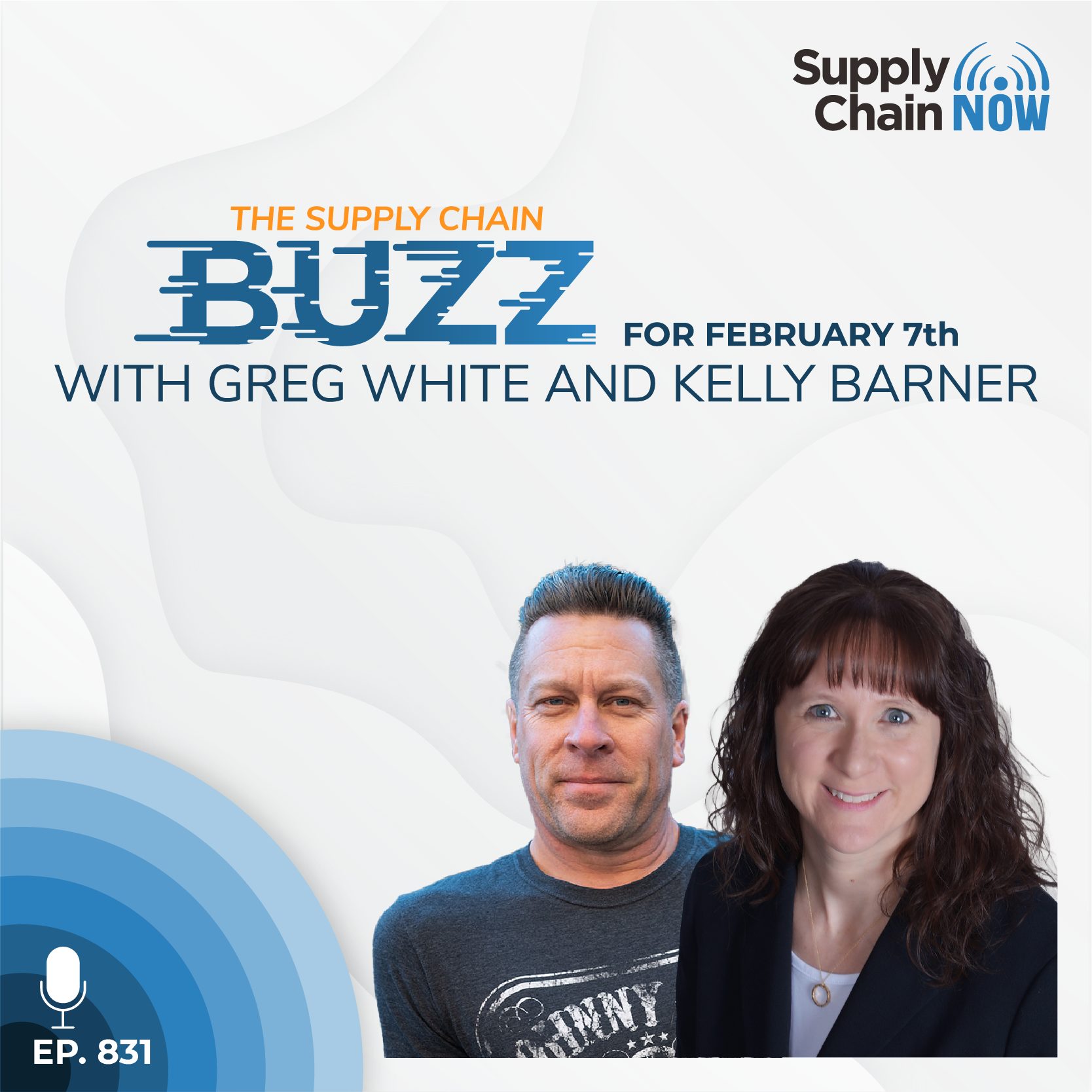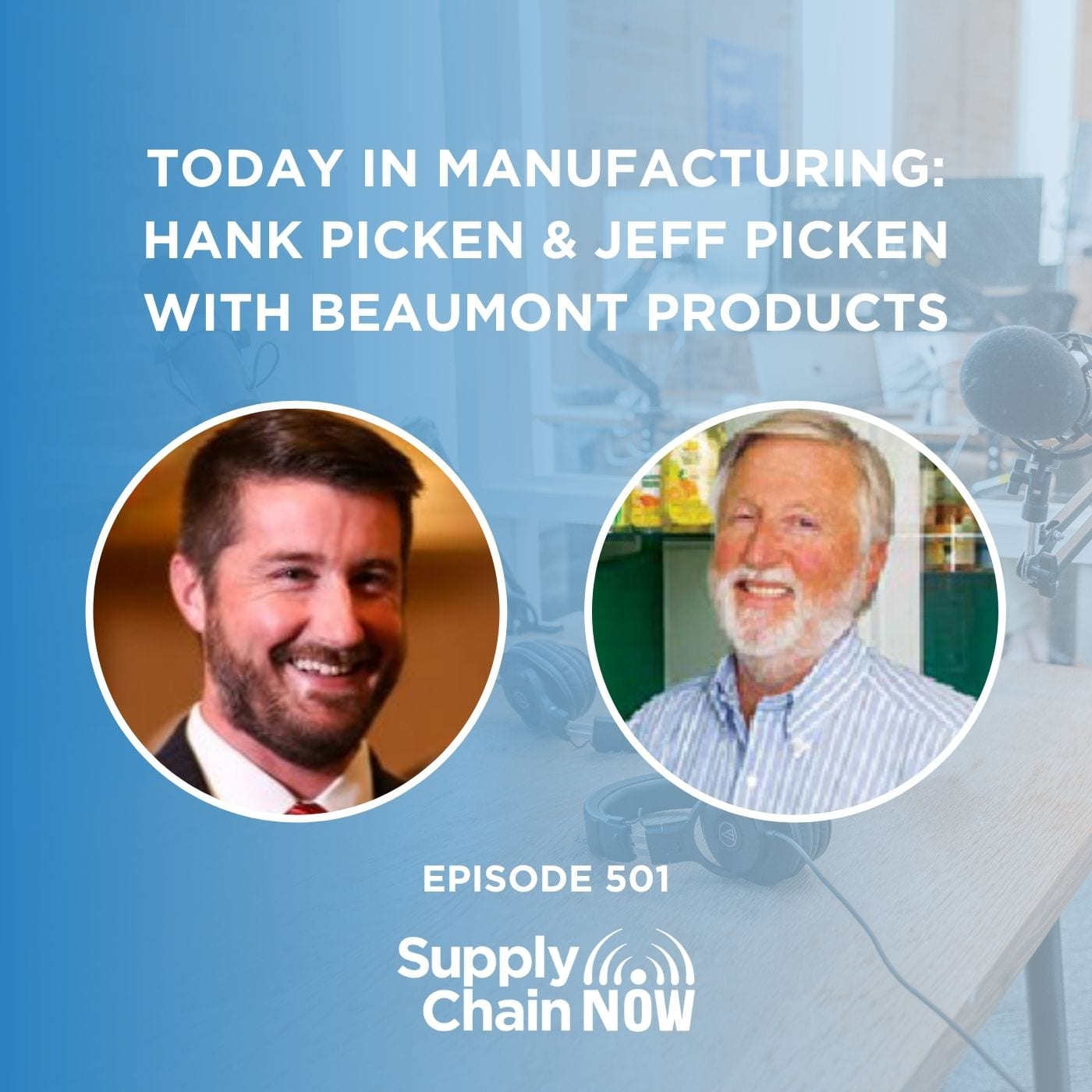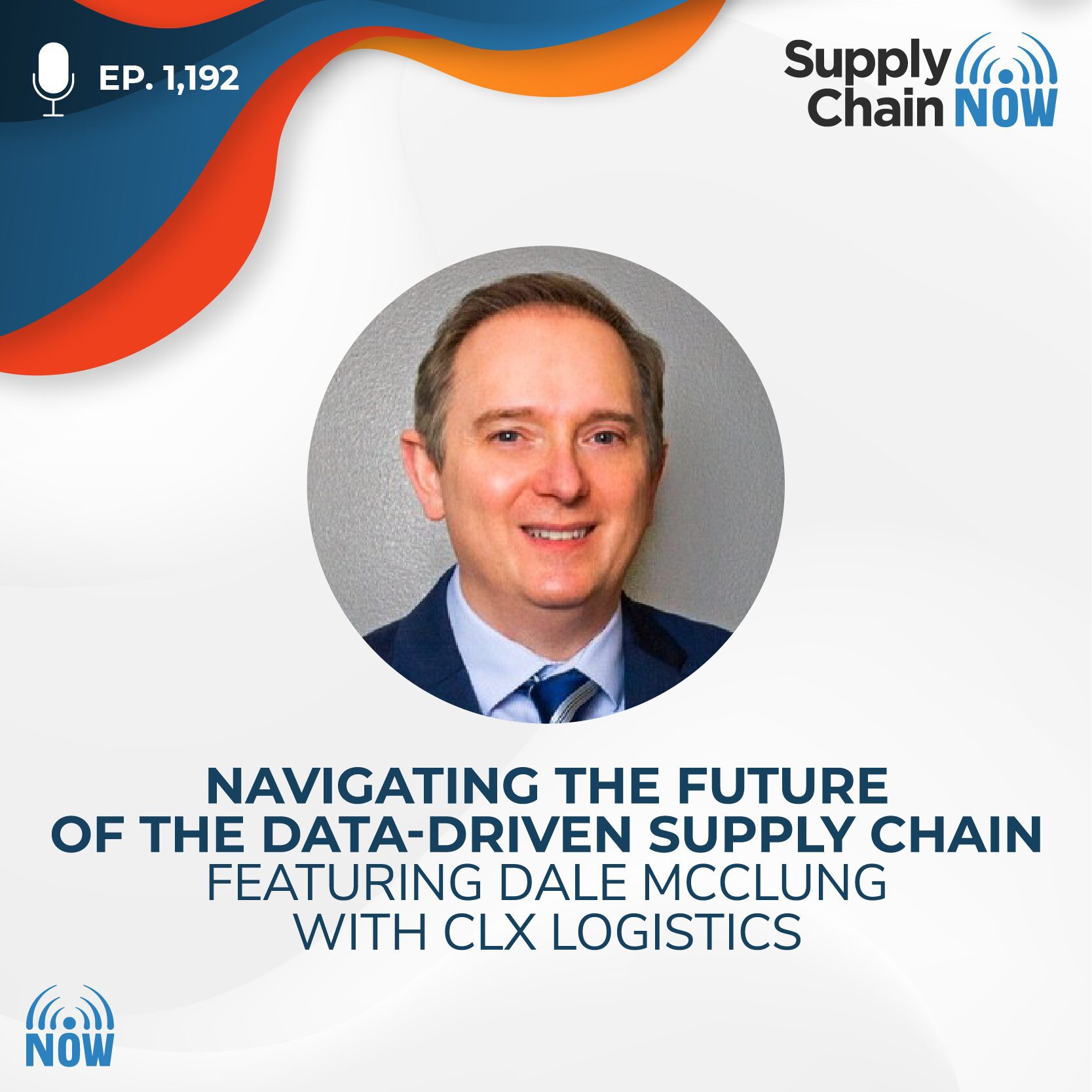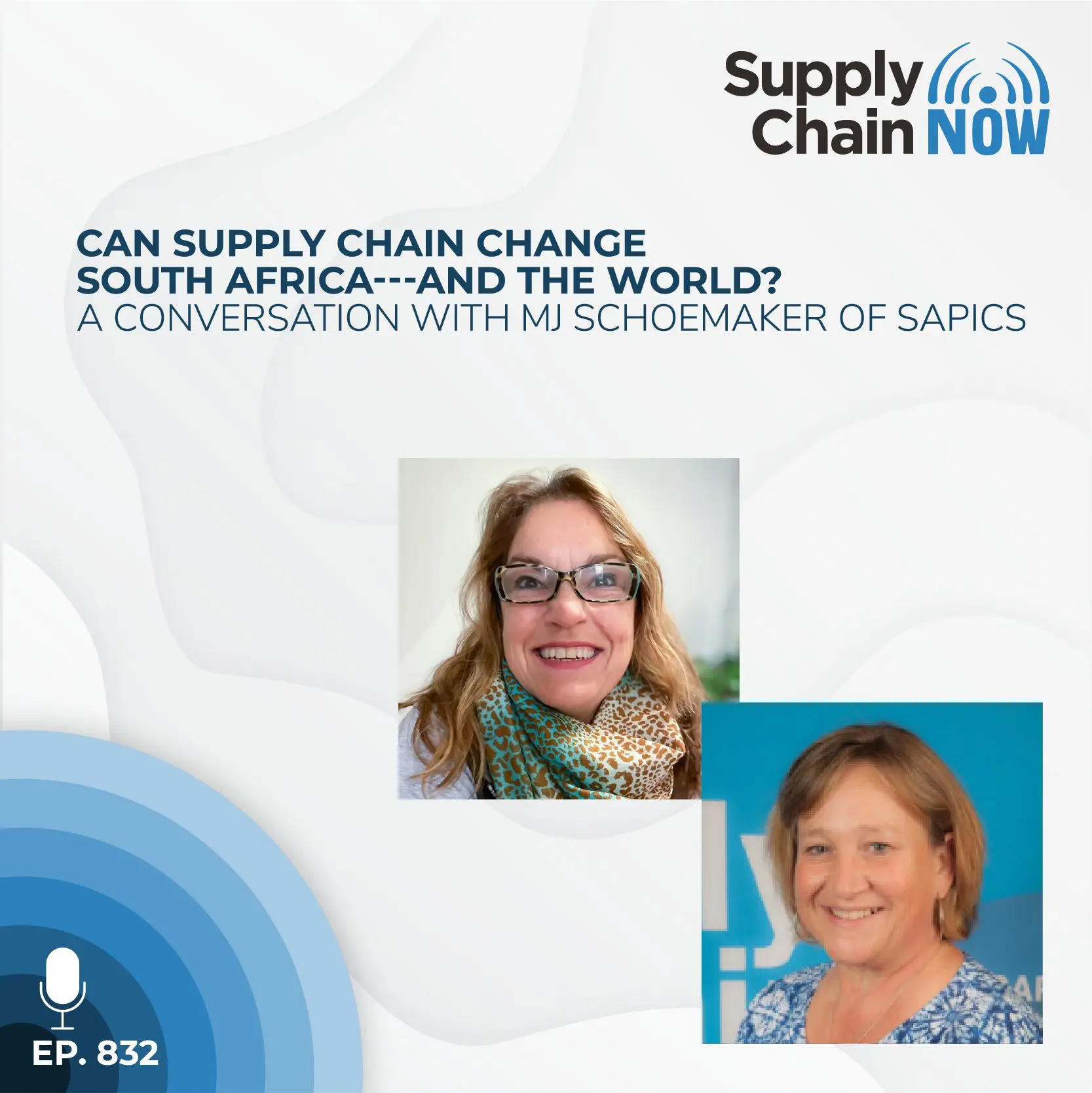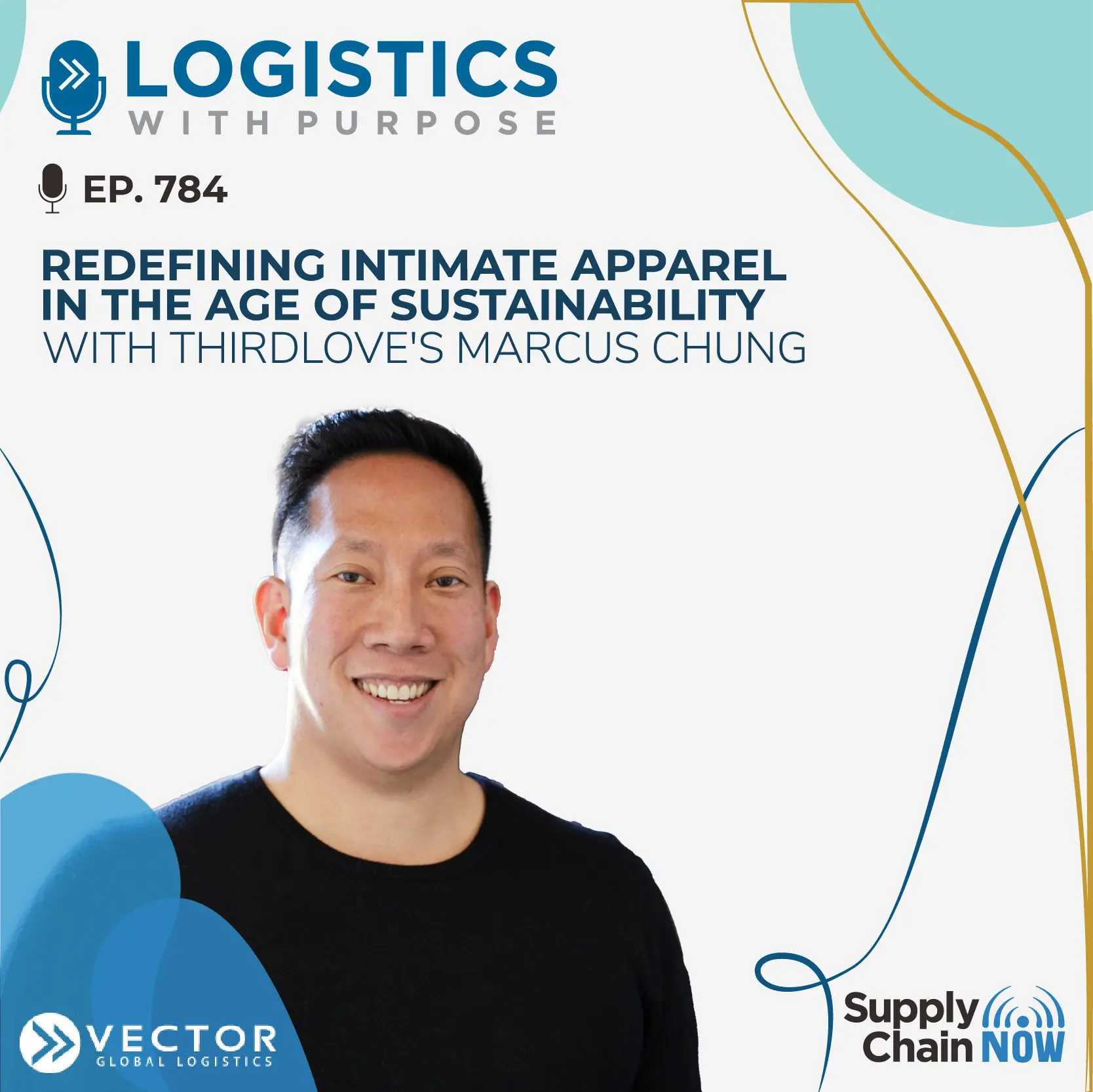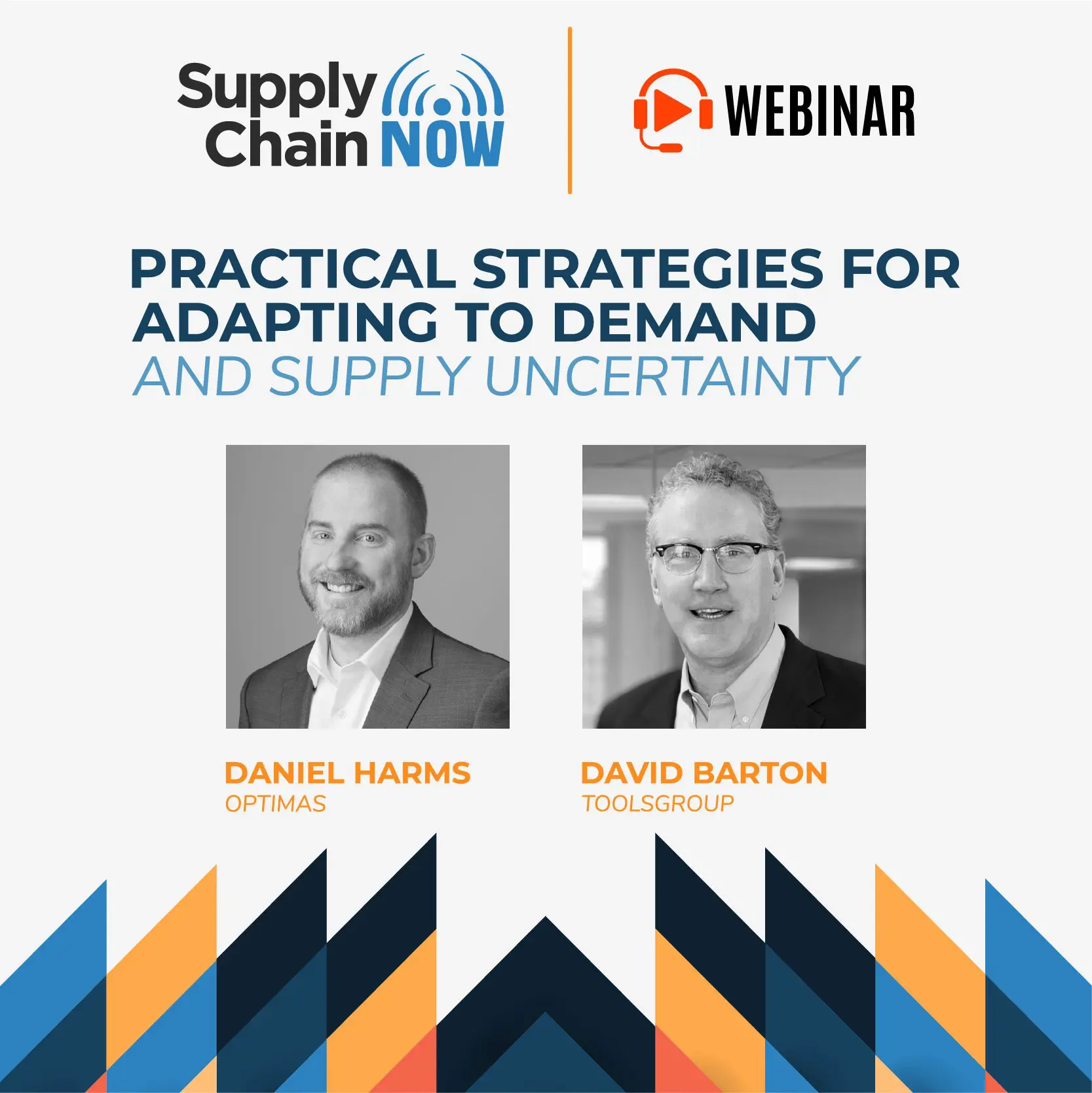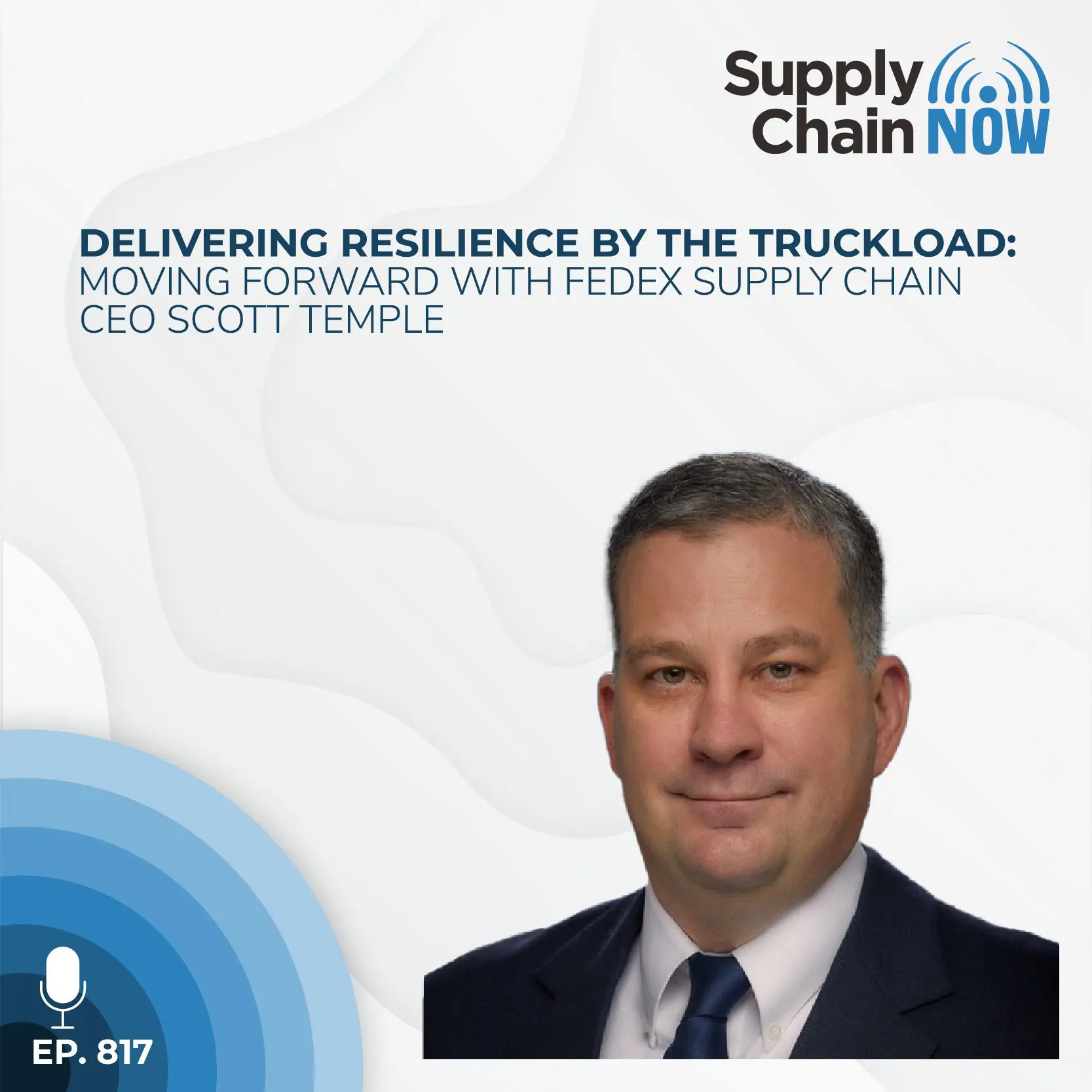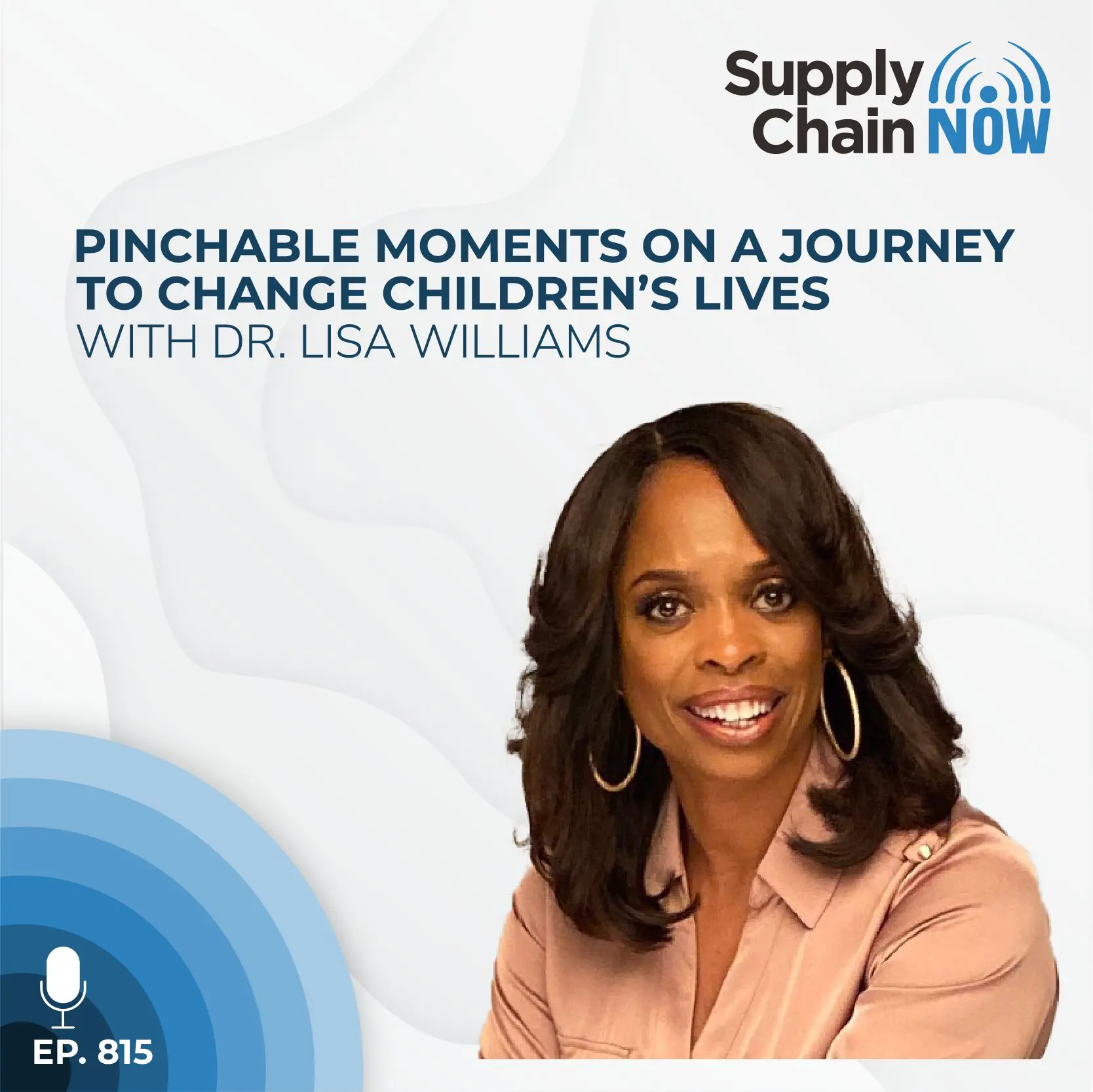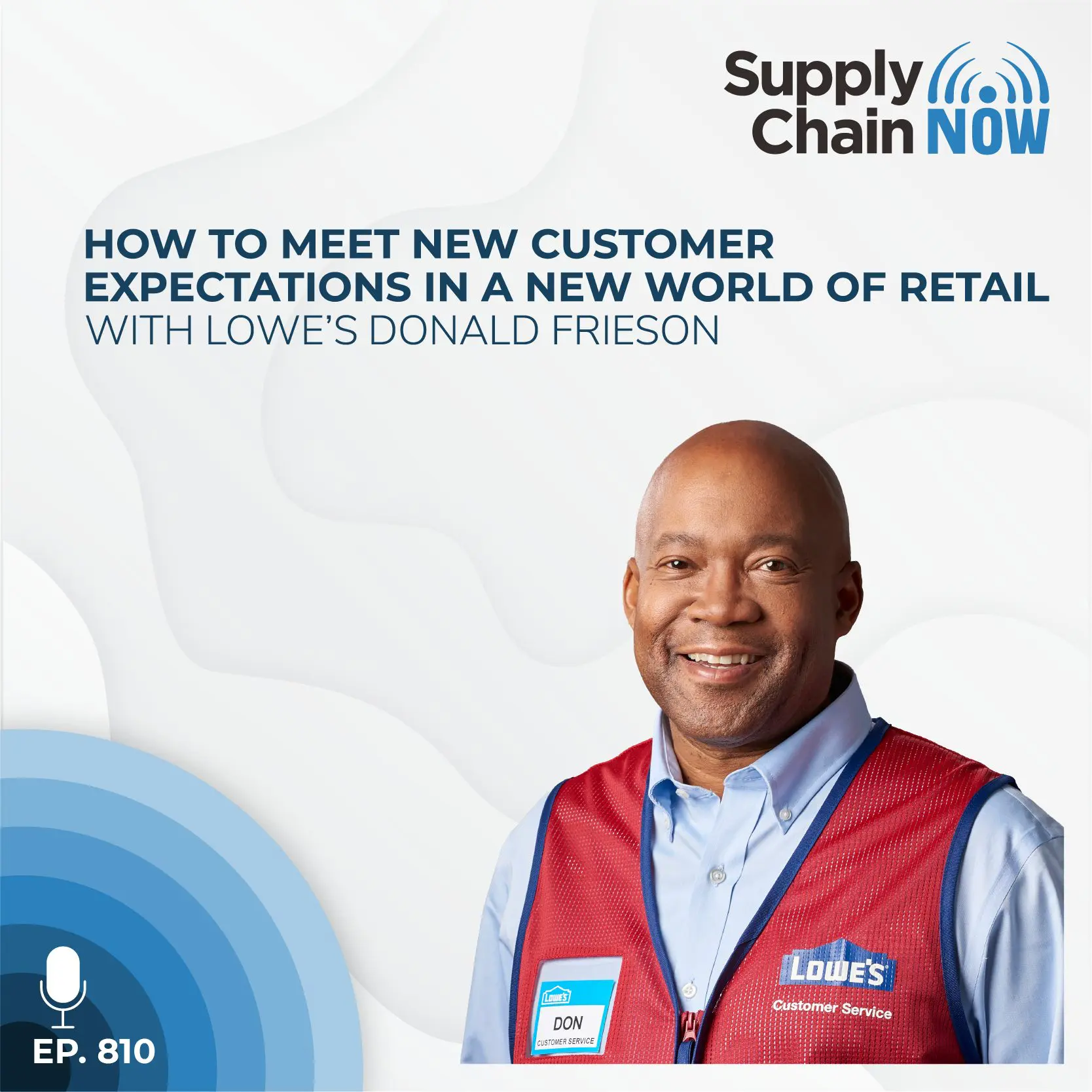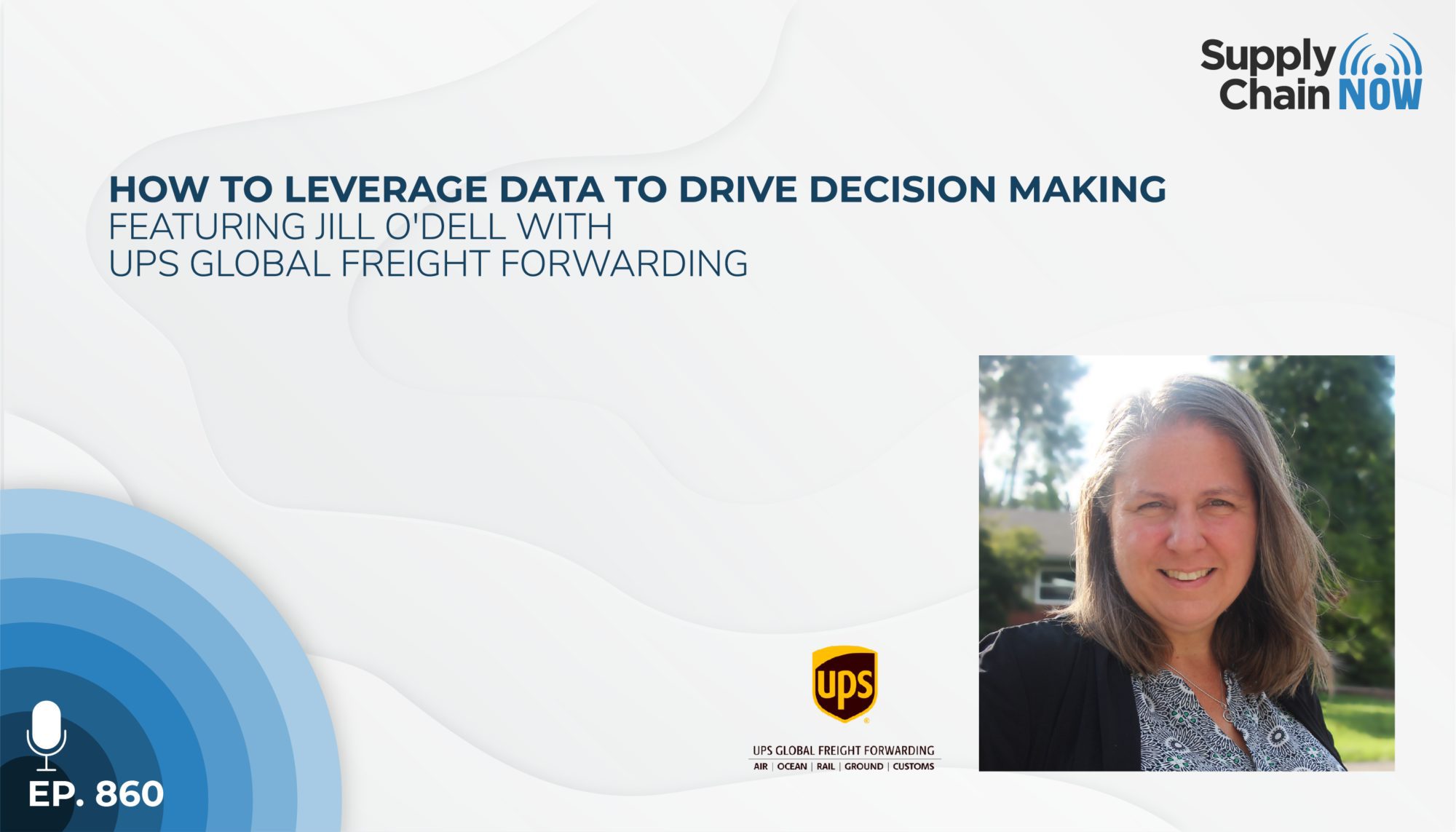
Data is a great leveler. You may think that one thing is this way or that way perceptually, but you know, really, when you look at the data you go, oh wait, it's over here. It's over there. It's smack in the middle where it should be. And it's not a problem after all.
-Jill O'Dell, UPS Global Freight Forwarding
Episode Summary
Having data is table stakes. But can you find it? Make it consumable? Use it as a predictive mechanism? In this episode, Scott and Greg sit down with UPS Vice President of Engineering and Strategy Jill O’Dell to discuss the three steps you can take to unlock the business value of your data. Tune in as Scott and Greg chat with Jill about how companies can leverage their data as a predictive mechanism while gaining sharper insights, better inventory controls, reduced costs and more.
Episode Transcript
Intro/Outro (00:00:03):
Welcome to Supply Chain Now, the voice of global supply chain. Supply Chain Now focuses on the best in the business for our worldwide audience, the people, the technologies, the best practices, and today’s critical issues, the challenges and opportunities. Stay tuned to hear from those making global business happen right here on Supply Chain Now.
Scott Luton (00:00:33):
Hey, good morning, Scott Luton and Greg White with you here on Supply Chain Now. Welcome to today’s livestream. Gregory, how we doing?
Greg White (00:00:40):
We’re doing quite well. How are we doing? You doing? The other week –
Scott Luton (00:00:46):
The other week. We’re doing great, man. It is a gorgeous day in Metro Atlanta. I’ve got 70 degrees and lots of sunshine and the birds are going crazy today. So, something that’s certainly in the air. It could be spring or it could be March Madness, not sure yet, but we’ll know. Join us at on the late news 11:00 PM and we’ll –
Greg White (00:01:02):
It could be green beer, also.
Scott Luton (00:01:03):
It could be. It could be the birds are partaking maybe. So, you know, that’s not all the good stuff we’ve got. We’ve got a great show teed up right here, Greg. Today, it’s all about big data. And once you get the right data, cleanse and all, spick and span, you know how it goes, what the heck do you do with it? Well, good news. We’ve got a wonderful supply chain pro from a world class company joining us here today to answer the question, how to become a data-driven supply chain super competitor. Greg, it’s going to be a good, good conversation, right?
Greg White (00:01:35):
It is, and appropriate for St. Patrick’s Day, which everyone will see in just a minute when we announce who our guest is. But, yeah, I’m really looking forward to this. Look, data has been the topic of, it seems like the decade, but now we’re, you know, it’s more than just big data. It’s more just than just having data. It’s wrangling that data into something useful and we’re finally – it feels like turning our focus to that primarily.
Scott Luton (00:02:01):
Agreed. These days, having the data’s tables stakes it seems, as 10 years ago it was all about finding a way to accumulate it. But, hey, we’re going to hear from our pro here today, our guest, and, Greg, I know this is a topic you’re passionate about as well. And we’re going to hear from all the folks in the cheap seats, in the sky box, which we’re going to say hello to in just a second. But really quick nominations are still open through April 1st for the 2022 Supply Chain and Procurement Awards. Join us. Get those nominations in. We’ve got eight or nine different categories. We’ve got Deeds Not Words Leadership Award. We’ve got Champion of Humanity Award for service to others. We’ve got world class logistics. We’ve got technology trailblazer, you name it. There’s something for everybody. Wherever your operations are, you’re eligible to nominate. So, venture over to supplychainprocurementawards.com and join us, April 1st, deadline. And then, Greg, not next week, the following week, you and Kevin L. Jackson, who hosts Digital Transformers here, is going to be up at the Global Upstate Conference on International Business and Foreign Affairs in a couple weeks. What’s going on there?
Greg White (00:03:07):
Oh, we’re bringing in – we’re not bringing in. We’re part of a panel that’s being brought in from around the world to talk about international affairs. Genius, right? Especially, based on their title. And in our case, and particularly, Kevin and I, we’re going to be talking about emerging tech 5G supply chain challenges around the world. I have a feeling we’ll do some sharing offline as well as in these panel sessions because a lot of these people are business persons from around the world. I know that we have generals from Denmark and business people from all over Europe and the rest of the world. Hey, first of all, how about that? People actually meeting with other people.
Scott Luton (00:03:50):
Man.
Greg White (00:03:51):
We’ve seen a big upturn in that and we’re looking forward to this because, look, we need to get back to getting global perspectives on these things.
Scott Luton (00:03:57):
Agreed. Love the tagline, exchanging horizons, finding solutions. Love that. We can drop link in the show notes. I think it might already be there. But join Greg and Kevin Jackson for that. Okay. All that brings us to all the wonderful folks that are tuned in via the cheap seats. We want to hear from you all throughout the conversation here today. We have Mani tuned in via LinkedIn. Great to see you here. Josh Goodey is back. Josh is becoming a staple to these livestreams here lately via LinkedIn, ain’t hee, Greg?
Greg White (00:04:27):
Yes, he is. And we’ll not be talking about football [inaudible] football today.
Scott Luton (00:04:35):
James Benton is tuned in from North Cackalacky. Great to see you, James. Barbara, tuned in from Greenville, South Carolina. Talking about the upstate.
Greg White (00:04:43):
Hey, there we go.
Scott Luton (00:04:45):
Great to see you, Barbara. Devine Sports and Mentorship’s tuned in via LinkedIn, from Texas. Great to have you here today. Kelly from Murray, Kentucky. I wonder how far our guest is from Murray, Kentucky. Srivishal. I think I got that right or close. If I got it wrong, let us know. We want to get everyone’s names right, for sure. But great to have you here tune in via LinkedIn. Delilah, good morning from Vero Beach, Florida. Greg, do you think that’s the same Delilah that hosts that very popular evening radio talk show every day? What are the chances?
Greg White (00:05:20):
I don’t know. I haven’t listened to the radio in like seven years. So, I have no idea what’s on the radio these days.
Scott Luton (00:05:25):
Well, Delilah, regardless, great to have you here from beautiful Florida. Jonathan’s tuned in from New Jersey. Speaking New Jersey, big shout out to our production team, Chantel who hails from New Jersey as well. Amanda, Catherine –
Greg White (00:05:38):
How about we had a Wollschleager spelled slightly different from Texas.
Scott Luton (00:05:42):
Really?
Greg White (00:05:43):
Remember that? I cannot remember his first name, but he was frequently on the show, too.
Scott Luton (00:05:50):
Interesting.
Greg White (00:05:50):
Probably related, but like many people misspelled [inaudible]. One of them was.
Scott Luton (00:05:57):
Okay. So, we got a little – you know, Murphy’s Law is love and well with anything live these days. We’re getting some feedback –
Greg White (00:06:03):
Especially on LinkedIn. Yep.
Scott Luton (00:06:06):
LinkedIn has not played really nice in the sandbox lately, but, hey, there’s a bunch of hard-working technologists that are getting – that are working and figured all out. So, James and Jerry, I think they can hear what we’re saying, but they can’t see us. So, we’re looking into StreamYard, reaching out to our providers there and we’ll get it fixed.
Greg White (00:06:24):
You could also take a look at the feed on YouTube, Twitter, or Periscope, Facebook or Twitch.
Scott Luton (00:06:30):
That is a great –
Greg White (00:06:31):
Try. Getting the feed elsewhere.
Scott Luton (00:06:33):
That’s a great call out. So, LinkedIn is just a great suggest. It’s just one of five places you can tune in. So LinkedIn, Facebook, Twitter, Facebook, Twitter, Twitch. Yeah. YouTube. That’s one I was missing. I
Greg White (00:06:45):
It’s always funny we remember Twitch because neither one of us are gamers.
Scott Luton (00:06:49):
Right. All right. But –
Greg White (00:06:51):
If you want to be gaming, like playing a game and watching us down in the lower corner, you could do that.
Scott Luton (00:06:57):
You could do that. And people multitask certainly in across global supply chain. But the folks that do that the best perhaps are folks that are data-driven supply chain super competitors. And that’s what the –
Greg White (00:07:12):
[Inaudible] segue, Scott.
Scott Luton (00:07:13):
That’s the name of the game today. And, yes, the replay will be available. So, we’ll get past any technical glitches we have. But, nevertheless, let’s bring in our guest here today, Jill O’Dell, Vice President of Strategy and Industrial Engineering at UPS Global Freight 40. Hello, Jill. Good afternoon.
Jill O’Dell (00:07:31):
Good afternoon. How are you?
Scott Luton (00:07:32):
Doing wonderful. Doing even better now that you’re with us.
Jill O’Dell (00:07:35):
Glad to be here.
Greg White (00:07:35):
Yeah. Welcome aboard.
Scott Luton (00:07:37):
So, we really enjoyed our pre-show conversations. You’re quite the dynamo when it comes to a variety of different aspects of supply chain and, Greg, we came connect to the dots and figured out that she right is great friends with one of our favorites here at Supply Chain Now, Tandreia Bellamy.
Greg White (00:07:52):
Yes. Tandreia Bellamy. Yeah.
Scott Luton (00:07:56):
So, Jill, great to have you here on Supply Chain Now. Greg, where are we starting with Jill O’Dell on today’s conversation?
Greg White (00:08:06):
Well, we should start with what an appropriate last name for St. Patrick’s Day visit. I don’t know if that –
Jill O’Dell (00:08:12):
Me and my 6’5” Irish husband. Yes.
Greg White (00:08:16):
Six-foot-five. Holy mackerel.
Jill O’Dell (00:08:18):
Yeah.
Scott Luton (00:08:20):
Goodness, gracious.
Jill O’Dell (0:08:20):
Red hair.
Greg White (00:08:20):
Well, as you’ve probably learned, like any good Irish family, there are a couple things that matter. I’m going to stick to the food side of it, but also we hear you’re quite the global traveler. So, tell us a little bit about maybe a couple of your favorite places to visit and any favorite places to dine or foods, any of their cultural foods that you love.
Jill O’Dell (00:08:47):
So, I’ve been very fortunate. I’ve been all over the place, about seven. I got five of the continents done. I got to get to Africa. That’s the next one on the list, hopefully. But as far as my place, I like to go to the places that are different, you know. I’ve been to Singapore, Dubai, you know, all of those major Metro places, but, you know, the place that really struck me was Indonesia. I was – [inaudible] Sarabia and conveniently we had a weekend to spend in Bali, which I’ll never complain in about. And, yeah, it’s gorgeous and it’s – the culture’s so different. The people are so different. It truly is a different world, you know. So, often you go to these places and, you know, after a while, they’re all very shiny and Dubai is very shiny and Singapore is very clean and all those great things.
Jill O’Dell (00:09:30):
But I like to really feel the culture when I’m traveling, and in Indonesia, there is no not feeling the culture. It’s everywhere you look. So, I love that. It’s – now, I will say I didn’t love the food in Indonesia. Some of it was okay. For food, I’m all about Latin America, Mexico street tacos, empanadas, arepas, you name it. I am all about the food in South America and Latin America. I lived in Columbia for a year when I was young. And so, that’s my homeland when it comes to food. Get me some Mexican street tacos every time.
Scott Luton (00:10:03):
Sounds delicious, Greg. Huh?
Greg White (00:10:05):
Yeah. I mean, it’s what Mexico is famous for. And it’s attempted all around the world, but nothing –
Jill O’Dell (00:10:11):
Not the same.
Greg White (00:10:12):
Is the same, especially as Mexico City street tacos.
Jill O’Dell (00:10:16):
Yeah. It’s great. I have a little place I go to almost every time and it’s just fantastic. Tiny little dive of a place, but I’ll take it.
Greg White (00:10:22):
Don’t tell people.
Jill O’Dell (00:10:23):
No.
Greg White (00:10:24):
[Inaudible].
Jill O’Dell (00:10:24):
I have to tell you [inaudible] if I had to. I’ve been driving down there. It’s a mess, but –
Scott Luton (00:10:29):
Those are the best places. Those are absolutely the best places. Well, quick update, folks. We’re talking with the folks from StreamYard. We’re still have enough few folks that aren’t able to connect. The good news is the full replay is going to be made available early next week. And, we’ll have Jill come back with us. You know, as Greg mentioned, there’s been some connectivity issues between our platform and LinkedIn, in particular. We’ll get it worked out. Greg, you’re going to say something?
Greg White (00:10:54):
Also, some corporate VPNs hate to let the stream through. We’ve had that problem with big corporate VPNs as well. So, not that I would ever suggest that you surf your VPN, but you might try a personal device.
Scott Luton (00:11:08):
Right. Hey, Donna says she is on the team quarterback, maybe for the team, team street tacos.
Jill O’Dell (00:11:15):
I’m with you, Donna.
Scott Luton (00:11:16):
I’m with you as well. Okay. Well, let’s get into the topic of today’s conversation, which is going to be all about how to become a data-driven supply chain super competitor. And, Jill, we have really enjoyed our warmup conversations as we’ve been kind of pulling expertise from your experience and your point of view. So, today let’s start with the early key steps. We’ve identified three, maybe four, kind of depending on how we categorize it. But where do we start, Jill?
Jill O’Dell (00:11:47):
You know, finding the data. I’ve talked to so many of our customers who are global organizations and probably the most consistent thing is I can’t get the data from my plants, my vendors, my main, you know, my suppliers, whomever it may be. And that’s – I think that the, you know, you invest in data, it’s an investment, right? And in my opinion, the payback is tremendous. And so, finding those data sources, I tell people all the time, give it to me in crayon. I don’t care. I’ll make it that way, you know, and I believe that, right. I can hire people to go code, you know, type in information that’s manual. If it gets me good data. And so, you know, one thing I hear a lot is everybody wants it to be all pre-made and ready. But unfortunately that’s the investment part. You know, it has to get there. And when you have so many disconnected data sources, which is just the name of the game today, between the number of vendors and the way the supply chains are organized these days, you know, it’s not unusual to have 20, 30 vendors in a situation where you got to get information from them. And, the magic comes when you can sync all that together.
Scott Luton (00:12:55):
So, that teases up for step two. But really quick, folks, I’ve been told if you refresh the screen, everything should be working now. So, take a minute and refresh and join us for the rest of the conversation here with Jill O’Dell. So, Greg, she said, I don’t care. Just get it to me. I don’t care if it’s in crayon, you name it, pastels, whatever, if you want to paint it on. I just need to see what we’re looking at here. Greg, your thoughts.
Greg White (00:13:23):
Well, it makes me harken back. So, I’m a retailer by trade, right? It makes me harken back to the days when we used to get the data by fax machine and then have people key it in.
Jill O’Dell (00:13:32):
Highlights, right?
Greg White (00:13:34):
Yeah. Right. Fax machine is today’s crayon, basically. If anyone still has any, at least they’re often more legible than crayons, but it’s true. Get the data in whatever form you can to your trading partners. And then, most especially companies with the means like UPS has, they can deal with it, figure out how to collate it and make it useful to them.
Jill O’Dell (00:13:56):
That’s right. And there’s technologies out there to help you optical character recognition. You know, I mean, there’s always the pound, the keyboard people, who are just sitting there typing. But, you know, I mean, that’s manageable if it’s, you know, for your smaller situations to get you a better dataset.
Scott Luton (00:14:10):
Excellent point. Excellent point.
Greg White (00:14:11):
Yeah. That’s really a good point because there are – even if you have to send it in a PDF, right, there are devices, there’s technology now that can just read that and figure it out.
Scott Luton (00:14:20):
It’s amazing. Amazing where we are. Hey, really quick. I’m going to share a couple comments here. James, you’re back on it. Thank you for your perseverance there. Great to have you here today. Ahmad tuned in from Calgary via LinkedIn. Great to have you here, Ahmad. Get this, Jill, Bo says great to be on your team, Jill.
Jill O’Dell (00:14:37):
Yeah. Hi, Bo.
Scott Luton (00:14:38):
Awesome. Great to have you here, Bo. Greg, Srinivas is back with us. Srinivas, great to see you here today. Thanks so much for joining. And then, one final one. Delano. I think I got that right. “This one works. I love you guys. Supply Chain Now talks.” Hey, thanks for that. Really appreciate it. Smart people like Jill and Greg make us all look smart, which is a good way to be. Okay.
Greg White (00:15:00):
Maybe, he makes us look smart, Jill.
Jill O’Dell (00:15:03):
That works. I’ll take it.
Scott Luton (00:15:05):
All right. So, we’ve established the first step. You got to find the data. You get it, get it into the right hands. But then, Jill, what do we do next?
Jill O’Dell (00:15:15):
And you got to harmonize it. Right? And, we were, you know, we were talking about that a little bit earlier. You know, some people may call it a customs entry. Some people may call it a filing. Some people may call it a dossier. Whatever that language is, and again, this is where the investment comes in, getting that harmonized language so that, you know, once – you know, if you think of it as an Excel spreadsheet, right, once you get those columns lined out and you know which data to map to what field then game on. Right? That’s the most important part. Like I said, that’s where the investment comes in, the conversations with the people providing the data. What does this mean to you? What does this provide to you? And being making sure you understand it. Making those assumptions can be a bit of a rabbit hole sometimes.
Scott Luton (00:15:58):
Agreed. Now, Greg, one of our favorite terms around here is harmonize, right? Harmonization and always, whenever –
Greg White (00:16:06):
What name do you think of when you hear that word?
Scott Luton (00:16:08):
Oh, it’s easy. It’s always the same one. It is Ebony and Ivory with Paul McCartney.
Greg White (00:16:15):
[Inaudible] Stevie.
Scott Luton (00:16:16):
And Stevie Wonder. Yes. Sorry. I didn’t have enough coffee this morning, but that’s where my brain always goes when talk about harmonize.
Greg White (00:16:25):
[Inaudible] mind goes.
Scott Luton (00:16:25):
What?
Greg White (00:16:27):
Donuts. Now, who do you think of?
Scott Luton (00:16:31):
Oh, our friends at Verusen, for sure.
Greg White (00:16:33):
Yeah, of course.
Scott Luton (00:16:33):
Daryl. Daryl.
Greg White (00:16:35):
Yeah. Daryl Lu.
Scott Luton (00:16:37):
So, Jill, Daryl Lu who Greg’s talking about has come up with a scientific methodology of evaluating donuts and its serious work, data-driven.
Jill O’Dell (00:16:46):
That’s awesome.
Greg White (00:16:47):
It is, very, and because data harmonization is what he does in his career, not to get us too far off track, but he’s a very, you know, very intensive, intense, and intensive analyst of data, so.
Scott Luton (00:17:02):
Well, now bringing that full circle, Jill, our heavy hidden research team gave us a little factoid that your son, I believe, is a musician. So, harmonization, what does your son play?
Jill O’Dell (00:17:14):
He plays the bass along with some other things, but primarily in his band, he plays the bass. They just hit their first song with a million listens on Spotify the other day.
Scott Luton (00:17:22):
Wow.
Greg White (00:17:22):
Wow.
Jill O’Dell (00:17:23):
Yeah. They’re good.
Greg White (00:17:25):
Do you want to share it? Why not?
Jill O’Dell (00:17:26):
[Inaudible]. Anna, could you help me out? She’ll have the link for, but, yeah, it’s a band called Refractions. You can reach them on Spotify. But, yes, I’m obviously a little partial, but apparently a million other people didn’t mind listening to it either.
Scott Luton (00:17:40):
Wonderful. Refractions.
Greg White (00:17:42):
That is really cool.
Scott Luton (00:17:45):
Well, let’s drop that link if we can. Anna –
Greg White (00:17:47):
Please.
Scott Luton (00:17:47):
Thanks for your help.
Greg White (00:17:48):
Anna, please drop that in there. So, I don’t leave the feed, go listen to.
Scott Luton (00:17:52):
Right, right. So, let’s keep going down this path ‘cause really, step two, right? Harmonizing, synergizing the data. Tell us more about that, Jill.
Jill O’Dell (00:18:02):
So, you know, once you understand what that data is, I remember I worked on a project down in Mexico several years ago and that’s exactly what we were doing. And those mapping conversations were invaluable. They took a lot of time, but now we have really good solid data. We know exactly what’s what, and now it’s very repeatable. And now it’s just automatic. Once you spend that investment up front, you get that repeatable model and then you’re able to make decisions, right? And that’s the most important part of data, right? Data for data sake doesn’t matter. Data for decision making is where it matters. And so, you know, as much as physically possible, getting that end-to-end data from the time the product is created through post sales, so returns and, you know, what are the customer feedback and all of those things, getting that true end-to-end helps your marketing teams. It helps your cash flows. It helps your inventory management, everything along the way.
Jill O’Dell (00:18:57):
So, you know, for me, that’s really where the – like I said, that’s where the magic happens once you can get all that data into it. And there’s a lot of companies. You know, some people again think it has to be, you know, very, a huge financial investment. There are companies out there that will take care of your data. You can send them 17 data sources and they can get it synced up into a dashboard type of format that we use. The big phrase we’re using these days is democratize. We want to democratize that data so everybody’s able to go get it in the way that they need it without IT intervention, without, you know, having to manage all kinds of different login accesses and all those things. And so, for me, that’s really where the future is, being able to put information on somebody’s cell phone or on somebody’s desktop right there in front of them that they’re very easy to move around and manage so that they can do that. And there’s, like I said, there’s several companies out there that provide that.
Scott Luton (00:19:50):
Greg, first of several teacherisms here. Data for data’s sake doesn’t matter. Data for decision making is what matters. I love that. Greg, your follow-up thoughts.
Greg White (00:20:01):
So, we’re hearing a lot of that lately. And I think that’s really important is the people recognize that the decision doesn’t come from the data. It comes from determining the outcome that you desire and then utilizing data as the tool to give you that outcome or that information or that decision making guidance, or even some so much technology today, as Jill’s talked about, can even guide or offer that decision based on the data analysis that is done, so.
Scott Luton (00:20:29):
Right, right.
Greg White (00:20:30):
We can get a long way with data if we use it the right way.
Scott Luton (00:20:34):
So, I’m going to take a couple quick comments and we’ve got a couple comments already suggesting our step three, which is great. We got a very smart, brilliant audience, always have. TSquared says, “Great and timely topic. Data is always a business’ Soup the Day.” How about that? TSquared, I love that. Katie, great to see you here. Tuned in via LinkedIn. Let us know where you’re tuned in from. Harish is pursuing supply chain management post graduation. So, I hope you do find this conversation insightful. Great to have you here today with us. James, two important things: data and communication, especially in these fast-changing times we live in right now. Ikemefuna, great to have you back with us here today via LinkedIn. Remind us where you’re tuned in from. And then, finally TSquared is on – actually got two more. Memory, great, to have you back. Memory says, “Data outputs depend on the quality of the inputs.”
Jill O’Dell (00:21:27):
That’s right. That investment upfront, making sure you know what you’re getting and what it means. That’s the key.
Scott Luton (00:21:33):
I love it. Man, Memory, you’ve been on fire lately. Great to have you. Anna is on the spot with Refraction. So, y’all check that out. A million listens. Holy cow, they must be talented. And then, finally here’s our little segue, TSquared on the money. “But then, you got to clean it up and get it to its needed users in a timely manner. Otherwise, the data it’s useless and valueless.” So, that takes us right into step three. Jill, tell us more.
Jill O’Dell (00:21:58):
Yeah. So, you know, once you get that information and exactly like the comment said, you know, you know it’s clean, you know what it reflects, then you’re able to start getting it into it. Something that you can use. You know, distributing it whenever mechanism works. Again, there’s a lot of tools out on the market for that. And so, you know, then at that point you’re able to start enabling decision making and, you know, the one gentleman mentioned that, you know, it’s communication and data. You know, data is a great leveler. You know, you may think that one thing is, you know, this way or that way perceptually, but, you know, really when you look at the data, you go, “Oh, oh wait. It’s over here. It’s over there. It’s smack in the middle where it should be. And it’s not a problem after all.” And so, you know, being able to leverage that data and then put a logic to it. Like you said, Greg, you know, you got to put a logic to it afterwards, talk to people about the information. Make sure it’s, you know, everybody understands what it’s saying and it’s reflective of the real situation. ‘Cause if you don’t do that, that sinks afterwards, you know, then again, you could go down a path you don’t intend to. And –
Scott Luton (00:23:01):
But really quick, and those paths can be extremely costly. It can burn your team out. You could waste a ton of resources and lose a lot of time where the organization should be, you know the path they should be on. Right?
Jill O’Dell (00:23:13):
That’s right. So, from my side, you know, once you have that, then you can start driving things. And, the thing that, you know, I find really interesting from a manufacturer or a seller perspective is your inventory. You know, right now in the supply chain and market, we have, which, you know, for any of us, who’ve been in here any length of time, it’s crazier than it’s ever been. I’ve been doing this 25, almost 30 years. And, this is insanity, right? But by being able to have better data all the way upfront, from the time you’re issuing the purchase order, the time you’re creating the product, to have those forecasts and have that information so that you can tell me as a forwarder, “Hey, six months from now, I’m going to have a thousand containers.” We can start working in all – you know, we can start working with you to start planning those things out, make sure you have that space on those vessels, the space on the flips, and that being able to then manage your inventory, make sure it shows up at your plant when it needs to, not too early, not too late, and make sure that, you know, everything downstream happens on time and the way you need it to, and in a cost-efficient way.
Scott Luton (00:24:19):
Love that. It sounds simple. And a lot of folks in our audience will know it, but a handful of folks may not appreciate. Things getting there early can be just as bad as things get in there late. Right?
Jill O’Dell (00:24:29):
Yeah. The cost of inventory is going to be tremendous.
Scott Luton (00:24:31):
Yeah. Excellent point, Jill. All right. So, Greg, I know you’re itching to getting here. We talk about how we’re using clean data, step three. What else would you add, Greg?
Greg White (00:24:42):
Well, you know what, this is maybe a little bit different angle on this topic, but it makes me harken back to the days. And since, Jill, you’re a OG in supply chain, you’ve probably experienced this back to the days when all analytics and reporting and data was used for was to determine how you had hurt the company today. How did you fail the company yesterday? Right? And, I think that all of what, Jill, you’re talking about allows us to get in front of all that. Data can be useful as a predictive mechanism or in predictive mechanisms to help us avoid conflagration and conflict. And, you know, the more that we think about it from that perspective, how do we use data, cleanse data, harmonize it, even find it, to allow us to use it as a predictive mechanism, that is more and more the outcome that people need to be thinking about data’s most useful value not as a, quote-unquote, report. Our reports usually look into the past, right, and those looks into the past. I can tell you, I’ve been on both ends of those. They’re never pleasant.
Scott Luton (00:25:54):
TPS reports.
Greg White (00:24:55):
That’s right. Yeah.
Scott Luton (00:25:59):
I’m going to need you to come in on Saturday, Jill and Greg.
Jill O’Dell (00:26:01):
That’s right. Yeah, exactly.
Scott Luton (00:26:03):
All right. So, I’ll take a couple quick comments here. So, Ikemefuna is tuned in from Ottawa. I knew that, but thank you for reminding me. Great to have you here. James is adding, “Data is a symptom, a symptom of the system you designed. In regards decision-making, it is a check on your design, getting it to the right people so people can make the right decision at echelon and spacetime. Bad design or inputs will have issues.” Excellent point.
Jill O’Dell (00:26:30):
That’s right. Hundred percent.
Greg White (00:26:31):
I like the word consequence over symptom, but I know what he’s trying to communicate here. It’s the result of however you design your processes right and how you measure them. So, you have to be really careful with that.
Scott Luton (00:26:47):
Yes.
Greg White (00:26:47):
But even data from a bad design will give you data that proves it’s a bad design.
Scott Luton (00:26:54):
Which is helpful, right?
Greg White (00:26:55):
Or it won’t give you the data that you need to prove that it’s a good design.
Scott Luton (00:27:00):
So, I’m going to add Memory’s thing here. But you know –
Jill O’Dell (00:27:02):
That’s what I was just going to say too. Go ahead, Scott.
Scott Luton (00:27:05):
Speaking of words, we like harken. I haven’t heard the word harken in quite some time, Greg.
Greg White (00:27:11):
Did I say that?
Scott Luton (00:27:12):
You did. It’s like little William Shakespeare working a day.
Greg White (00:27:14):
Wow.
Scott Luton (00:27:15):
All right. So, Memory, again, right on the money here. And she’ll speak to this, but she says, “Correct me if I’m wrong, but simplifying data makes it accessible and practical to users at all levels of the company.” Jill?
Jill O’Dell (00:27:29):
You know, you’re absolutely right. We talk about this all the time. You know, you almost have to [inaudible] all the way down [inaudible], right. And especially as you go up in the organization or up in a supply chain, you know, it’s more and more important that you really key in on those key factors that are in a derivative change you’re looking to drive. And, Memory, you’re exactly right. It has to be consumable. And if you don’t have the right tool, you know, to do that, it’s going to be a challenge. Throwing mountains of data at anybody is not going to be consumed.
Scott Luton (00:28:01):
So, Jill, we’re losing you a little bit. It could be, you know, I think March Madness tipped off a little while ago and I bet everybody and their sister and brother is streaming right now that may be kind of halfway it and halfway not, that could be impacting us. But, Jill, I’m going to give you a chance. I think we got you back clear now. We caught the tail end to that, Jill, where you said Memory’s absolutely right. But could you give us – can you just share your answer one more time to that?
Jill O’Dell (00:28:24):
Sure. That’s the part she likes. But, yeah, she’s right. If memorization isn’t consumable, then, you know, it it’s useless. Again, it’s kind of what we’ve been saying this throughout. Right? So, you have to boil down into those key elements that really drive decisions, whatever they may be. So, making sure that, you know, you have those core factors that help you make the best decisions and some of that’s trial and error. Some of that’s talking to the stakeholders and understanding what pieces help them drive a decision. But, you know, you’re absolutely right. You have to simplify that data, but it really is boiling the ocean ‘cause it’s taking a lot of information and figuring out how to make it consumable.
Scott Luton (00:29:04):
Yep. You know, really quick aside, and we’re going to get a couple more comments, including one that says, “Greg nailed it.” Greg, that’s always good to hear. But, you know, when I was in Air Force, we would, you know, all these maintenance actions that were taking that take place on our aircraft, well, all, every single thing, even if you’re cleaning the windshield gets documented and put into this massive database and our team would run tons and tons of reports bring all that data down, but pick and choose, ensure data integrity, but then pick and choose what we share with the maintenance team. So, we don’t overwhelm them with tidal wave of data, but the right data that they need to act on or be prepared, you know, get out and ahead of certain maintenance issues and whatnot. But that’s – you know, it’s so easy these days, especially with what’s at our fingertips to just overwhelm folks with a lot of information or data that don’t even need – it’s almost irrelevant. And it takes attention away from what is important and those signals, right?
Scott Luton (00:30:01):
Okay. So, let’s share a couple comments and then we’re going to kind of ask Jill, what does all this get us? She’s kind of spoken to that a little bit. We’re going to expound a little more on that. Eric, great to see you here today via LinkedIn. He says, “Measuring the metrics of the data quality is a big issue. Getting coordinators to put the right data and is actually more important than the amount of time that they take to put the data in.”
Jill O’Dell (00:30:26):
Absolutely.
Scott Luton (00:30:26):
Excellent point there. James says, “Greg nailed it. Reports and data are from the past.” So, time travel is a thing, evidently. I’m not sure who this user is, but let us know if we could, Amanda and team. “Data is a precious thing and will last longer the systems themselves.” That was Tim Berners-Lee that said that.
Greg White (00:30:46):
Really true. And I think it – I mean, that does go to the point that you don’t use data just once. You can go back and learn from data again and again and again. If it is as Jill has said, if it you’ve found it, you’ve synchronized it and you’ve made it usable, then you can continue to go back to it and learn what it’s telling you with the augmentation of new data or different processes.
Jill O’Dell (00:31:13):
Well, history does repeat itself, right? I’m a huge history buff and history does repeat itself. So, if you have the information of what happened when we, maybe, tried this before, you can leverage that to then say, okay, what do we change this time to make it better?
Scott Luton (00:31:25):
Excellent point. But, Greg, going back to what you said, data is a gift that keeps on giving. It’s kind of like the Jelly of the Month Club is what I’m hearing, both y’all speak to. And, I believe this was Noam Eppel. Noam Eppel with Morpheus Network, I think, is who this shared. So, Noam, great to have you here and congrats ‘cause your company is one of our nominees for our Supply Chain and Procurement Awards. And then, finally Amrit is tuned in from Toronto. Great to have you here via LinkedIn. Quick question from James, Jill, if I can get -we’re going to – if you could address this one, I’ll read it off and then we’ll move into what’s all this get us. So, James says, “I’d love to hear Jill’s thoughts on how to synchronize data between organizations.” Jill?
Jill O’Dell (00:32:05):
So, my – I don’t know if my answer’s going to surprise you or not. For me, it starts with a contract, right? Whatever the contract is, as much as possible, I work to put my data requirements in there. So, there’s a legal, hard obligation for the vendors that we work with ‘cause you can imagine we work with vendors all over the world, every mode of transport. And, you know, as much as physically possible, we put that requirement out there up front. You must feed us data this way. You must allow us to access data in whatever way. And, as much as you can starting these relationships to get that data together, it obviously helps, right? It saves you time downstream. It’s not always possible. Of course, it depends on the situation, but as much as you can put it in the contract. That’s always my big thing ‘cause I work with a lot of contracts and, you know, the very first thing is metrics. My team honestly gets a little tired of hearing me, but I’m all about the metrics. You know, what is it that we’re expecting from them and what is the KPI to that? And then, you know, that helps downstream as much as we can get that upfront.
Scott Luton (00:33:09):
I love that. Those upfront contracts, formal and otherwise, are so critically important. Greg, your quick comment, and then we’re going to keep driving.
Greg White (00:33:18):
It is a surprise I’m sure to a big part of our audience to think, even know that you could include that in a contract, but you absolutely should and particularly in the areas of the marketplace that Jill works in because if it ain’t in the contract, that don’t happen.
Jill O’Dell (00:33:36):
That exists. Yeah.
Greg White (00:33:36):
That’s right. I mean, that’s something I’ve worked and that’s a quote a friend who owns a transportation company in Kansas City. And, as Jill knows as well sometimes even if it is in the contract, they don’t happen.
Jill O’Dell (00:33:48):
Right. But your odds are better.
Greg White (00:33:49):
But data is not – data has not been one of those things. It’s usually timely delivery. But in any case, I think that’s a really valuable thing to think about it and should be a revelation. And I’m sure is a revelation for a lot of companies to include it in your agreements with your trading partners to say this is what we must have to provide that. I’ve worked with a number of companies who have contracted that. And I, even I did not think of that as the key, but it is, absolutely the key, make it a legal obligation, just like paying the POS.
Scott Luton (00:34:23):
Yes. And then, of course, and we won’t dive in this, but who owns the data, right? These days there’s lots of conversations to go around that.
Greg White (00:34:31):
Yeah. Let’s – really quick. Katie says, “Like the old adage, ‘Knowledge is power.’ A well sourced data set is worth its weight in gold. Thank you for all your thoughts and expertise this morning.” Great to see you here, Katie. All right. So, Jill, we’ve got to – there’s so much I knew –
Greg White (00:34:46):
But we knew Katie’s in the – Katie is in the central time zone at the farthest east, right, ‘cause she said good morning.
Scott Luton (00:34:54):
Yeah. So, Jill, don’t scoot over –
Greg White (00:34:56):
Jill’s 10 minutes from this.
Jill O’Dell (00:34:58):
I’m like right away. Yeah. Right from the line.
Scott Luton (00:35:00):
So, Jill, I knew it, you know, I think all three of us are very passionate about this topic in data and kind of it’s fascinating to kind of see how organizations and just industry where we are today when it comes to data and the right data and taking actionable data. But what is all this? So, if you follow those three steps and we follow Jill O’Dell’s advice on how to become a data-driven supply chain super competitor. What does all that get us?
Jill O’Dell (00:35:24):
It gets you everything, right? It gets you better inventory controls, right? Cost of inventory is so high, especially with some of the transits we’re seeing, particularly in the ocean world right now. You know, that that cost of inventory, everybody needs to keep that low. And so, you know, that’s, for me, you know, an area that I know our customers are constantly focused on. How can I manage it? So, it’s there in time, not early, not late. It’s a constant conversation with us and our customers. And, you know, again, that forecasting, it all comes down to forecasting, right? That data feeds your forecast, you’re your inventory, feeds your receivables at the end of the day, right? Because if you forecast it well and everything moves on time, you’re going to get paid faster. And so, you know, to me, that’s where all that gets you. If you can do that right, you get better market insights, you get better for, you know, project, product development, then the forecasting then the inventory then the cash.
Scott Luton (00:36:17):
Wonderful. And we’re going to – I think you’ve got some kind of some use cases, some experiences we’re going to dive into in just a second. But, hey, Memory says, “The way Scott keeps driving, we’ll make it to the moon.” Hey, that’s the plan. We can talk about space, supply chain. But Memory, I tell you, Greg, if you recall, one of the teacherisms she’s brought in, and Jill’s brought a bunch, a truckload of teacherisms. Memory said to the other day, an informed consumer makes informed decisions. And that is so apropo to what we’re talking about here today, right? Because back to what Katie talked about, the old adage, knowledge is power. Okay, Greg, your quick commentary, and then we’re going to keep – we’re going to get some stories from Jill’s journey.
Greg White (00:36:56):
I think, you know, the most important thing I’ve heard here consistently is the way that we accumulate data with whom we share it, the obligations that we put on our trading partners to share it, and knowing the outcomes that we want for this data, those are the critical keys. Frankly, I love that we’re getting a three-step process. Right? Of course, there are a lot of interim steps and a lot of little nuances here, but this three-step process is simple. It’s easy to follow and it’s a great, at least, starting point for a process for how to actually capitalize on data, whether it’s internal or enterprise.
Scott Luton (00:37:38):
Yeah. That excellent point.
Jill O’Dell (00:37:40):
Find it. Organize it. Use it.
Scott Luton (00:37:41):
Yes. Yes. And get it and do that as much as you can on your own because I bet Jill’s consulting fees aren’t very competitive. So –
Greg White (00:37:52):
Well, I think also, you know, the ability to accept it via crayon becomes really, really important. I mean –
Scott Luton (00:38:01):
Agreed.
Greg White (00:38:02):
Virtual crayon, whatever that is in your world.
Jill O’Dell (00:38:05):
Hand, I mean, [inaudible] Asia, you know, a lot of those countries still are handwriting. You know, we get waybills that are handwritten every day.
Scott Luton (00:38:13):
Yes. It makes me think, you know, we’re talking about Refractions and your son’s band, you know, come as you are. I think that Nirvana’s saying that and that’s kind of what I’m hearing here. Send me – whatever the current state is, just send it to me. We’ll work through it.
Jill O’Dell (00:38:27):
That’s right.
Scott Luton (00:38:28):
Okay. So, Jill, back to kind of story time. So, plot change, story time. Tell us about some examples you’ve seen that folks follow these best practices and some of the things we’re talking about.
Jill O’Dell (00:38:38):
The first time that this really hit my radar and I really felt like, ah, they got it, was a customer I worked with a handful of years ago and what they did was they pulled that end-to-end data from beginning to end, and they had a very good tool. And what they were able to realize through that data is, they were shipping goods from China to the US. They realized through their information that they were getting a tax break in Dominican Republic. So, they used – they -out of all this information, they were realized that if they sold the materials to Dominican Republic, they got a huge tax break and then they still drop shipped it. The shipment itself didn’t change how the transit moved, but they were able to get this tax advantage by shipping it, selling it to Dominican Republic and then turning around and selling it to the US, all very legal and obviously I’m not a tax person. But they, you know, they were really able to save a tremendous amount of money by doing that.
Jill O’Dell (00:39:34):
Again, I don’t know all the tax rules, but again they had all the right players, they had all the right information and they were able to really redesign their supply chain. One thing this company did that was very good was before they decided where they were going to source a good, they looked at the custom taxes on export. They looked at the custom taxes on import. How are they going to flow all of that? It’s not just about transportation. It’s about, you know, how is your source going to work? What tax incentives can you get by routing something one way or another? You know, that’s one example of a company that I think did an excellent, excellent job in how you manage that.
Scott Luton (00:40:11):
So, let’s get – Greg, I’m gone get your take really quick ‘cause, you know, if it’s in your blindside, right, and the data, some of the data is in the blindside as well, the opportunities to drive savings, to drive gains and efficiencies. I mean, they’re invisible. But speak to what Jill just shared there, Greg.
Greg White (00:40:31):
I think that goes to including your entire organization into how you manage your data. You know, what it made me think of immediately is the now defunct double Irish Dutch sandwich. The way that a lot of technology companies structured their company to optimize their tax obligations by having an entity in Ireland, in the Netherlands, and in Bermuda when most of their operations are in the United and that help them optimize their tax obligations. And, I think, and, you know, they use incredible amounts of resources to do that, lawyers and accountants and whoever else. And I think it probably, you know, it definitely identifies that with that data, you can benefit not just your supply chain operations, but your finance and probably of legal operations as well. And, of course, your trading partners. And, anytime you can offer a benefit to your trading partners with more data, the better off that you are.
Greg White (00:41:30):
I think back to when we would demand certain things of our suppliers, [inaudible] who made press stone when I was in the auto parts industry, we would make demands of them on first pass fulfillment and all these things. And it was very hard for them, particularly when the mysterious plant shutdown from an explosion happened every year.
Scott Luton (00:41:50):
Wow.
Greg White (00:41:51):
But we identified that they could make an extra $2 million and we could make an extra million dollars if they adhered to that by using data. So, if you can motivate people with that data, it’s incredibly valuable.
Scott Luton (00:42:07):
So, motivating your suppliers and customers, but also, Jill, what I’m hearing when you both speak to is how you can build trust with sharing, you know, the right data and the transparency that comes with and defining the mutual finding of opportunities. But, Jill, respond to that or tell us – I know you you’ve got no shortage of stories and experiences. What else would you like to share?
Jill O’Dell (00:42:29):
Well, like you said, transparency is key, you know, as much information as you share. You know, we’re working with customers right now on what are they go, you know, it’s March. I’m amazed this year, probably more than any other at how much I’m already talking about 2023. And we’re sitting down with customers and talking about what are they going to do in 2023 so that we know where we want to go get space. We know what, and, you know, they’re being very transparent with us because I think probably more than ever because of the situation. And they understand that the more they tell us, like you said, the more we can help them. And, I think transparency is really important. Like I said, we sat down with one of our customers recently and we’re going through their three-to-five-year projections, even, so that, you know, UPS being an airline, if we need to go buy a plane for a certain, you know, we can look at that and understand that and understanding where our customers are looking to grow, what lanes should we look at. It helps us support them down the street.
Scott Luton (00:43:27):
Love that. Okay.
Greg White (00:43:29):
Probably talking about 2023 now because of the length of lead times right now.
Jill O’Dell (00:43:33):
That’s right. Exactly.
Greg White (00:43:34):
If we want to get it in 2023, they’re going to have to order it right.
Jill O’Dell (00:43:37):
That’s – well, you know, I say that all the time ‘cuase you guys, we were talking about this earlier. I have buildings and facilities responsibility. And we’re only working on 2023 leases because it’s taking so long to get things.
Scott Luton (00:43:49):
Wow. You know, our dear friend, Allison, Greg, that does some co-hosting with us, a couple years ago, she was Facebook – she had like this Facebook story building updates of her, I think it was a couch or a dining room table. And it was really interesting. I mean, she put a humor spin on it, but it was really interesting. The updates she would get, she’d kind of share. It was quite an adventure. Okay. So, Jill, I wish we had a couple more hours with you here today. There’s so much you bring to this table that we want to share, but I want to add a little bonus question. We’ve got a couple of resources that we’re going to share with folks here in just a minute and make sure folks also know how to connect with you after today. But you’re also passionate beyond traveling, food and music and data. You’re also really passionate about engaging our team members, right, wherever they are. So, have you seen – is there like a go-to employee engagement, technique, you’ve seen that’s really worked really well?
Jill O’Dell (00:44:46):
You know, I had a little bit of an advantage when the coronavirus hit because I have been managing virtual teams for quite a while and so, many, many years. And the thing – I think there’s two big things. One, you have to personally care, right? If your employees understand or your team understands how much you personally care about their situation, about their workload, about whatever, that, to me drives engagement. And as we’ve moved to a permanent, you know, a more permanent work-from-home or long-term work-from-home scenario or some sort of hybrid thereof, you know, spending that time, the thing you lose, in my opinion, in a work-from-home is that coffee-hour time, right? The water cooler time where you don’t sit down and talk about the kids or talk, you know, whatever, you know, the garage sale you went to last week or whatever.
Jill O’Dell (00:45:36):
And so, you know, spending that time, I meet with my team. I have a team all over the world. I meet with them every week, every two weeks, depending on the situation. And, I spend probably 15, 20 minutes just talking, just chitchatting, and how are you? How’s things going? How’s your family? Because it helps them feel more connected and helps me feel connected to them. And then it makes it easier to care, which makes it easier to engage. And then, there’s this hopefully domino effect that it is in a good place.
Scott Luton (00:46:06):
And it is fueled by what I’m picking up with you just in today’s conversation, some the pre-show conversations that authenticity comes from a very genuine place. And, I think that’s a big part of it. ‘Cause folks, you know, folks are smart. They can see through any, any, you know, shallow efforts. Greg, I know this resonates with you as a leader of a variety of organizations. What’s important for folks to take away here?
Greg White (00:46:32):
I think that the important thing is it has to be genuine. You can’t fake caring about your people and, you know, to that point, by the way, I mean, so I was the person – I was that annoying person even when I was CEO who walked in and went to everyone’s desk every single day just to say something, not for any other reason that I just wanted. I just felt compelled to speak to them and maybe was curious about what was going on or, you know, we may have even had an initiative or not, but, and I agree. I think we miss a lot of that. Not only do we miss a lot of human contact and a lot of engagement, but you can get an idea that could change the company from a discussion about, you know, the carwash this weekend or the garage sale that you went to. Those are epiphanal moments that only happen in person. And, I think that’s so very powerful, but the genuine nature of that is critical. So, if it’s not you as a person, it should be someone else in your organization as a delicate to, you know, to make sure that there is someone that is that empathic and engaged to work with the folks within your organization. And there’s no shame if it’s not you, but it has to be someone.
Jill O’Dell (00:47:47):
Yeah.
Scott Luton (00:47:48):
Such that’s a great point. Both of y’all. I really appreciate we took the time to throw this bonus question in. I am going to share –
Greg White (00:47:54):
We get points for it ‘cause I think –
Scott Luton (00:47:56):
We’re going to do street tacos. We all talk about, after street tacos, after the livestream.
Jill O’Dell (00:48:01):
I’m in.
Scott Luton (00:48:01):
I’m going to share a couple of – really quick, before I share a couple comments and then we’re going to get to some of these resources that Jill, you and your team offered up. Slack. Don’t laugh just yet. But Slack, when I first started using Slack, I’m like, man, this is like one more application, you know. But really to your point about those, the coffee, chat moments, the way that Slack has offered that electronically and not just burden people with more text or emails has just got a different vibe. That’s been really cool. And it’s really offered up some of those non-work moments. And, since the humor, you know, jokes and stuff that you can miss via even texts and emails. So, y’all, if you’re not using Slack, check that out. It’s a great, great tool. Okay.
Greg White (00:48:43):
You know, they’re trying to do that with the Metaverse.
Scott Luton (00:48:45):
Really?
Greg White (00:48:46):
They’re trying to introduce that to companies, to allow them to have those virtual coffee talks.
Scott Luton (00:48:51):
I love that.
Greg White (00:48:52):
Yeah. I’m a little bit creeped out by the Metaverse, frankly.
Jill O’Dell (00:48:55):
I actually attended my first Metaverse meeting two weeks ago.
Scott Luton (00:48:58):
Really?
Greg White (00:48:58):
What did you think?
Jill O’Dell (00:48:59):
It was very bizarre. Like, honestly, I felt like I was in a video game and I’m not a video game person. I don’t have my head around it. I’ll be honest. But, yeah, it was surreal. Let’s just say that.
Scott Luton (00:49:11):
So, I wonder –
Greg White (00:49:12):
Well, there you go.
Scott Luton (00:49:14):
I wonder –
Greg White (00:49:14):
So, they’re accomplishing what they were after, right?
Scott Luton (00:49:16):
Yeah. I wonder if we’re going to look back at this conversation 30 years from now, kind of like what we look at now there’s a today show clip from the early ‘90s and they were talking to the producers about what is email and they were kind of all just hadn’t figured it out. I wonder if folks are going to be laughing at us and what we think of the Metaverse here today. Who knows?
Greg White (00:49:37):
Well, in 30 years I won’t give a damn ‘cause I’ll either be dead or too old to care.
Scott Luton (00:49:42):
Okay. All right. Let’s share a couple quick comments. Let’s see here. So, Chedli, great to see you here today. You’ve been with us on previous livestreams. He says, “Trust, partnership, cooperation, coordination, mutual goals, buyer-supplier relationship, transparency, knowledge transfer, and information sharing, all provide a huge opportunity for any supply chain to be at the top level.” Man, I don’t think he missed too much there.
Greg White (00:50:08):
And all started with just three steps. I mean, that’s a lot.
Scott Luton (00:50:12):
Yes.
Jill O’Dell (00:50:12):
Yeah.
Greg White (00:50:12):
That’s a lot of value offered with just three steps.
Scott Luton (00:50:15):
Excellent point.
Greg White (00:50:16):
I think that’s an important thing. It’s easier than you think it is.
Jill O’Dell (00:50:21):
Yeah.
Scott Luton (00:50:21):
Yes. James Benton. “You also can’t fake caring about customers either.” Excellent point. “And caring about their supplier, or caring about suppliers.”
Greg White (00:50:30):
Or people.
Scott Luton (00:50:31):
Right.
Jill O’Dell (00:50:31):
Right.
Greg White (00:50:32):
We call them – we have all these names for them. We should just call them the people who supply us. But that’s a lot of words.
Scott Luton (00:50:37):
Yes.
Greg White (00:50:37):
Or the people that we sell to, right? Because it’s true. They’re all just people you have to care about all of them.
Scott Luton (00:50:42):
That’s right. Kelly says, “Or fake till to you make it.” That’s a phrase that a lot of folks –
Greg White (00:50:46):
[Inaudible] people do that and it can be effective as long as you’re not a sociopath.
Jill O’Dell (00:50:51):
And hi, Kelly. ‘Cause I know Kelly from way back.
Scott Luton (00:50:53):
Oh, do you? Josh says, “Slack was a game changer for us as well. It helped COVID navigation during work-from-home sections.” That’s a great point, Josh. And that’s exactly what I was thinking in my mind, too. Memory says, “Too old to care.” She’d like that comment from you earlier, Greg.
Scott Luton (00:51:10):
Okay. So, let’s get into, we like offering resources and your team here has got a couple different resources I want to share. I want to start with, we just missed, some of the folks may have attended, but if you didn’t, you just missed The 3rd Supply Chain Virtual Connect that was on March 9th. Ron Jordan of UPS joined us to talk about that a week or so ago. It sounded like ball accounts as a home run opportunity. It was also – love how UPS invested in that and made it free for the market to connect and learn, you know, and network and all that good stuff. Jill, I think you spoke at this event.
Jill O’Dell (00:51:45):
Yeah.
Scott Luton (00:51:45):
And the cool thing, and I want to get your favorite your experience from it. But, folks, you can use the link we’re about to drop in the chat to get access to all the replays of accounted at least 10, if not 15 sessions. So, if our team could drop that into chat, and then while they do that, Jill, what was your favorite aspect about The 3rd Supply Chain Virtual Connect?
Jill O’Dell (00:52:06):
So, you just mentioned about Slack. You know, this tool that we use for these connect is my favorite part because you can virtually walk in and out of rooms. So, if you’re – you can go into a room and you can kind of take a look and see who’s there and connect in with people that you need to, or want to, for whatever reason. And I like the mobility of the tool. It very much mirrors an actual conference and, for me, that was my favorite part. I can go in and meet with customers or talk to people just completely on the fly. Very natural.
Scott Luton (00:52:37):
I love that. Love that. And our ecosystem loves you, Jill. Memory says, “Awesome stuff as always. Please have Jill over again.” We certainly will.
Greg White (00:52:46):
I love the way she says have Jill over. Actually, maybe we will actually have you in person at some point.
Scott Luton (00:52:50):
Right. Agreed.
Greg White (00:52:52):
You could have a reason to get to Atlanta where UPS [inaudible].
Jill O’Dell (00:52:54):
I’m in Atlanta like every other week. So, that’s no problem.
Greg White (00:52:58):
And let me add to your motivation, Jill, one of the top five taquerias in America is in Kennesaw, Georgia, strangely, just north of Atlanta, so.
Jill O’Dell (00:53:10):
[Inaudible] Tuesday. Let’s go.
Greg White (00:53:11):
We’ll get you there.
Scott Luton (00:53:12):
Let’s do it. That’s it. All right. It’s got to happen. All right. So, really quick, we’re going to go back. We got one more resource to drop with folks and, again, y’all can check out the sessions from The 3rd Supply Chain Virtual Connect. Big thanks to UPS for investing and making that happen. Delilah missed the frontend. We had that, you know, the connectivity network had an issue. So, the three steps, Jill, and correct me if I’m wrong, how to find data, how to harmonize and synergize the data, and then how to use the clean data. Is that right, Jill?
Jill O’Dell (00:53:39):
That’s exactly right. Find it, harmonize it, use it.
Scott Luton (00:53:42):
Wonderful. Wonderful. All right. So, let’s then let’s shift gears over to – there’s an email sign up that the great team has over at UPS Supply Chain Solutions. I’m going to drop that in here as well so you can sign up for this. We’ve got a link for that. You get weekly market intel, events, you name it, ideas, best practices in these ever-changing times. Jill, that seems to be a great resource that UPS puts out as well.
Jill O’Dell (00:54:10):
It is. And the thing I like about this is it’s up to date. You know, the situation right now this week, as of Monday in Hong Kong, we’re already reporting on with the COVID shutdowns that are happening. And several, many, many, many manufacturers are down. So, being able to understand what does that mean to you is critical.
Scott Luton (00:54:27):
Wonderful. I got to share a couple before we let you go, before we make sure folks know how to connect with you, Jill. I’m going to find this comment here, “Without Slack,” I think this is Catherine. “Without Slack, how would I share cookie recipes with Amanda Luton?” I love that. And Barbara used to live in Kennesaw. Great town. We agree, Barbara.
Scott Luton (00:54:48):
Okay. So, Jill, really enjoyed – you know, Greg, I love Jill’s approach. I knew when we had our prep conversation, I went this is going to be a lot of fun. It’s going to be very practical. Folks are going to have lots of action or takeaways. And, Jill, you surpassed those expectations. Jill blew it out of the water. How can folks connect with Jill O’Dell?
Jill O’Dell (00:55:08):
LinkedIn. You know, LinkedIn has kind of changed our business world, hasn’t it? But, yeah, you guys have been great. I really appreciate letting me come, and, yeah, I’d love to hear from anybody on LinkedIn. That’s the best way to get ahold of me.
Scott Luton (00:55:18):
Wonderful. And we got those links in the show notes. Greg, before we let Jill go, did you have as much fun with Jill O’Dell as I did?
Greg White (00:55:26):
You know, what I love about her approach is it’s not an approach. It’s her. It’s very genuine. I really appreciate that, Jill. And, I have another question for you. Do business cards not seem redundant now that –
Jill O’Dell (00:55:38):
Oh, my gosh.
Greg White (00:55:38):
We have LinkedIn and I think that it’ll –
Jill O’Dell (00:55:39):
I haven’t ordered a business card, like, in the last five jobs. At one point, probably five or six years ago, I finally ordered a pack and I’ve just wrote on there, manager. Like, I didn’t put anything else ‘cause, A, my job changed a lot. And, B, I’m like, who even cares, you know?
Greg White (00:55:56):
Right. I feel silly. Now they have that little code on LinkedIn where people can just scan it and you’re connected connected.
Scott Luton (00:56:04):
Yeah. You know, I had this handy. This wasn’t planned, but this dot card blue thing is a single business card where folks can scan it with their phone and they get all the information and they ever want about you. And I felt so much better using that than printing more business cards, you know, to your point, Jill and Greg. But nevertheless, lots and lots of solutions. Jill, a pleasure to have you with us here today.
Jill O’Dell (00:56:28):
Thank you, guys. It was wonderful.
Greg White (00:56:28):
Thank you very much.
Scott Luton (00:56:29):
Really appreciate your time. Folks, make sure you connect with Jill O’Dell, plug in with the UPS team. Wonderful resources. I want to thank again, Jill O’Dell, Vice President of Strategy and Industrial Engineering at UPS Global Freight 40. Thank you, Jill.
Jill O’Dell (00:56:43):
Thanks, guys.
Scott Luton (00:56:44):
Well, Gregory, I’ll tell you, you never know what Murphy’s Law has in store. We navigated some treacherous waves on the frontend, but everything worked out. I still think, I’m going to do some research. I still think that March Madness kicked in. The whole country starts, you know, all the game zone, while still knocking at work. I could just see one of those cartoon moments where the, you know, the power stations kind of brrr, you know, and then someone flips a switch, brings something [inaudible].
Greg White (00:57:14):
Yeah. We will have to go back to the timestamp and figure out when that all started and if it coincided with game starting, but I bet it did.
Scott Luton (00:57:21):
Yes. I agree. Well, how about Jill?
Greg White (00:57:23):
Down here, in Hilton Head, it is the entire state of Indiana’s spring break and it feels like the entire state of Indiana is here. So, you can just imagine. There go all of the TV streaming in every, or, you know, or, you know, people can do it in now on the beach.
Scott Luton (00:57:46):
Right. [Inaudible] for days, for sure. Okay. But how about Jill O’Dell? I mean, this is, as Memory put it, a dynamo. Let’s have her back. What was your favorite thing Jill shared here today?
Greg White (00:58:00):
I can’t help but make this comparison, but, you know, Tandreia Bellamy is such a leader, right? Such a thoughtful person, big into mentorship and big into staff engagement. I see a lot of that in Jill. I’m sure she developed it herself. But, you know, we had the discussion about Tandreia and it just harkened back to that. And it makes me feel good that, you know, that sort of caring and transparency and obviously her gifts around industrial engineering and data and, of course, human leadership, all of those gifts continue at UPS with Jill being there. So, you know, I don’t want to talk too much about Tandreia, but she knows Jill knows that that’s high praise from our standpoint.
Scott Luton (00:58:45):
Well said.
Greg White (00:58:46):
And I think also that there was, you know, we don’t always get this. We got three steps, actionable steps in this session. And we got some really good answers on how to conduct those steps. So, this is almost a to-do episode for people. It’s not just philosophical. It is this is how you can accomplish it. So, this is one I would put in the archives and refer back to as if I’m, you know, leading a company as I’m trying to develop a data strategy. This is one I would definitely keep in the archives.
Scott Luton (00:59:20):
Excellent point there, Greg. And we got a lot about the why. You know, I love how she spoke a lot about the why and what you get. If you put in the time, you put in the elbow grease to become this data-driven supply chain super competitor, and what it means, what it means for you, your customers, your suppliers, your team. Those are important questions to ask. And we, to your point, she’s real. You know, Jill is the same person here as she was in the pre-show, prep show. So, we’re going to –
Greg White (00:59:48):
That’s so true.
Scott Luton (00:59:49 ):
We got a fan club. We got a new fan club. We lead a bunch of Atlanta area fan clubs. We got to start new one. But, folks, as Greg mentioned, make sure you catalog this episode, refer back. We covered a lot of ground here today with Greg and Jill O’Dell with UPS. I want to – be sure to check out the Supply Chain and Procurement Awards. Get those – let’s celebrate your team while calling attention to some big issues of our day. And, especially the incredible mission that the nonprofit Hope For Justice team is setting out to complete. But, folks, whatever you do, Scott Lutton and Greg White signing off for now, challenging you to do good, to give forward and to be the change that’s needed. And on that note, we’ll see you next timeright back here on supply chain Now. Thanks, everybody.
Intro/Outro (01:00:35):
Thanks for being a part of our Supply Chain Now Community. Check out all of our programming at supplychainnow.com and make sure you subscribe to Supply Chain Now anywhere you listen to podcasts, and follow us on Facebook, LinkedIn, Twitter, and Instagram. See you next time on Supply Chain Now.
Featured Guests

Jill O’Dell has over 25 years experience in the international transportation and logistics industry starting in the Air Export Forwarding, eventually leading to UPS via the Fritz acquisition in 2001. Jill has worked in all facets of the supply chain including air & ocean forwarding, contract logistics, foreign trade zone management (FTZ), Customs brokerage, small package, and vendor management. She has managed direct operations as well as engineering, solutions and special project groups in many areas. Most recently, Jill was instrumental in deploying a global technology portfolio into our brokerage operations. Her path has taken her around the world working with customers and on projects in Asia, Latin America, Canada, Europe and the Middle East. Jill holds a Business degree from the University of Illinois, and resides in Louisville, KY. Connect with Jill on LinkedIn.
